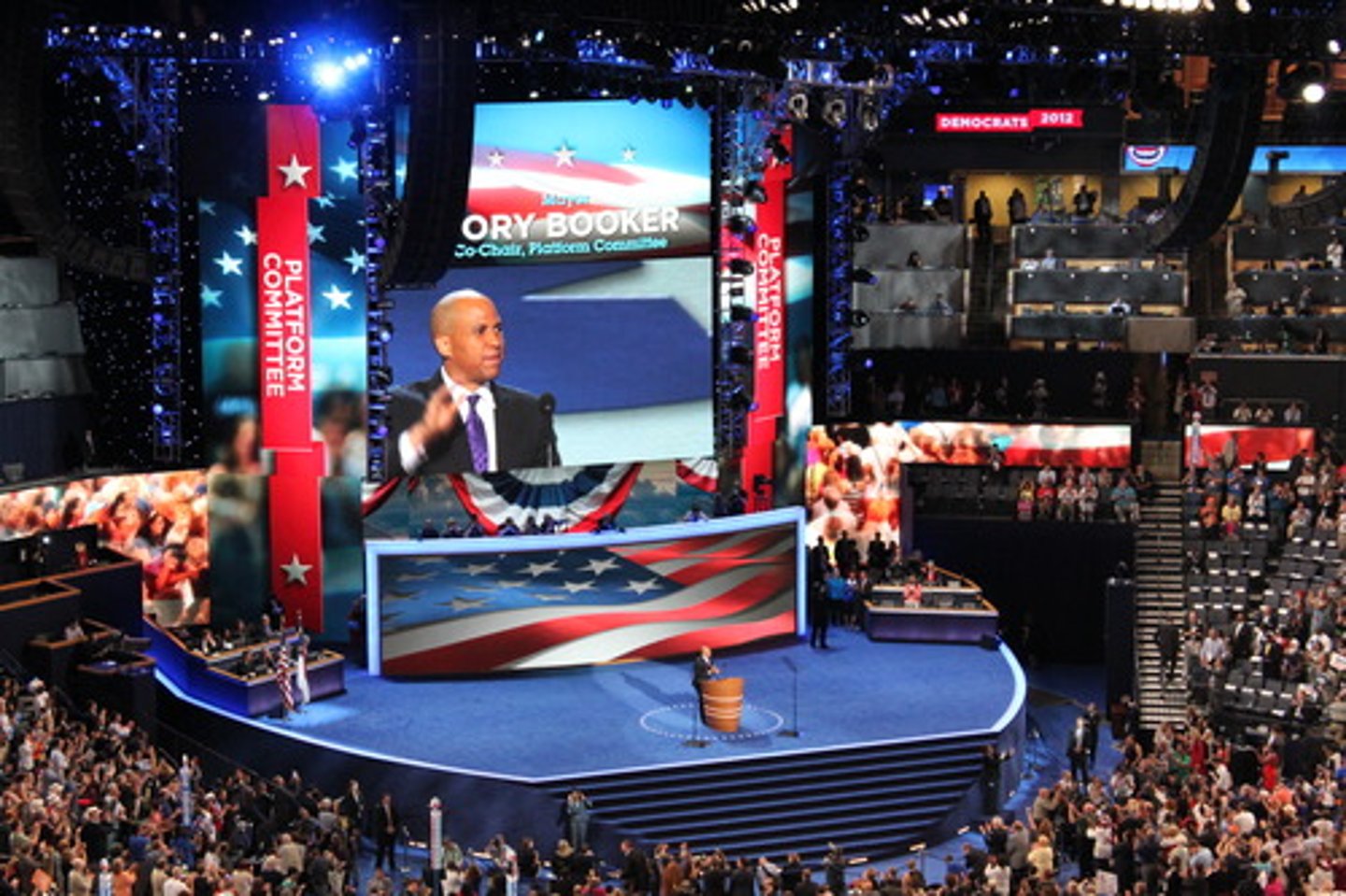UIL Social Studies 2024-2025: Key Terms
1/148
There's no tags or description
Looks like no tags are added yet.
Name | Mastery | Learn | Test | Matching | Spaced |
|---|
No study sessions yet.
149 Terms
1842 Apportionment Act
A piece of legislation that updated how members of Congress are selected from their respective districts.
It reduced the size of the House of Representatives and required single-member districts.
Whigs supported it for the most part with Democrats against becuase of it eliminating the states themselves to decide at-large districts and representation.
"dark horse"
A previously lesser-known person, team, or thing that emerges to prominence in a competition or election involving multiple rivals, that is unlikely to succeed but has a fighting chance, unlike the "underdog" who is expected to lose.
In America, this label was first applied to James K. Polk, former governor of Tennessee and Andrew Jackson protege, at the 1844 Democratic National Convention.
Polk would win the nomination on the 9th ballot over more popular Democrats such as Martin Van Buren, Lewis Cass, Richard Mentor Johnson, and James Buchanan.
Other famous presidential examples include Franklin Pierce, Abraham Lincoln, Rutherford B. Hayes, James Garfield, Warren G. Harding, Harry S. Truman, and Jimmy Carter.

"hard cider campaign"
The nickname for the for William Henry Harrison's campaign in the Election of 1840.
Harrison was the first presdient to acitvely campaign for office. He did so with the slogan "Tippecanoe and Tyler too," in reference to his military victory in 1811 against the Shawnee.
Making fun of his age, a Democratic newspaper stated he should be given a barrel of this drink. The Whig Party took the joke and used it as a way to make Harrison look like a man of the common people and his Democratic opponent Martin Van Buren was a rich, out-of-touch New Yorker.
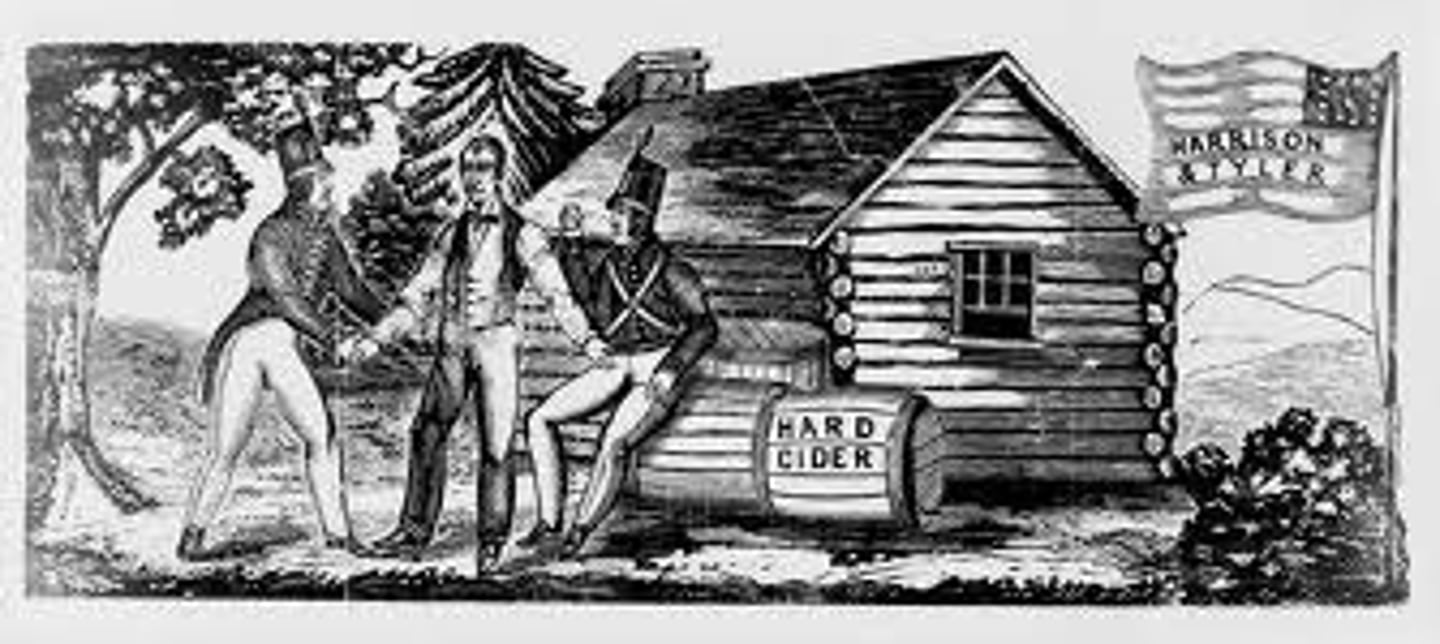
"kitchen cabinet"
A nickname for a group of unofficial or private advisers to a poltiical leader.
Originated from opponents of President Andrew Jackson describing his collection of unoffical advisors he consulted in parallel to his official Cabinet following his purge of his first cabinet following the end of the Petticoat/Eaton Affair and Jackson's break with his VP John C. Calhoun.
Members included:
- Martin Van Buren
- Francis Preston Blair
- Amos Kendall
- William B. Lewis
- Andrew Jackson Donelson
- John Overton
- Isaac Hill
- Roger B. Taney
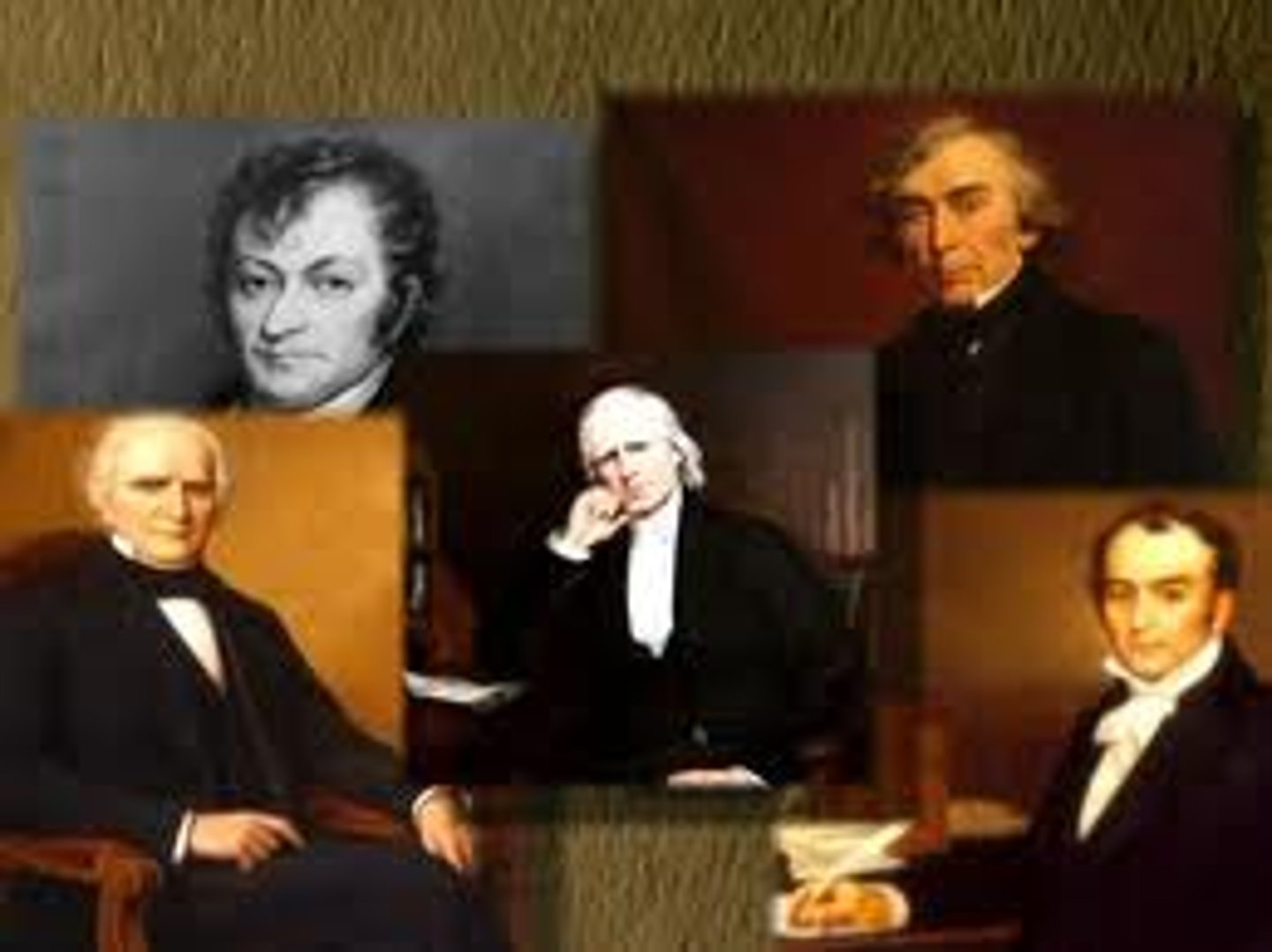
"Our Federal Union, it must be preserved."
The toast given by President Andrew Jackson in April 1830 at a dinner honoring Thomas Jefferson's birthday in the presence of multiple supporters of nullification including VP John C. Calhoun.
It was the first sign that Jackson would not go with the other members of the Democratic Party in support of this states' rights measure of nullifying the Tariff of Abominations.
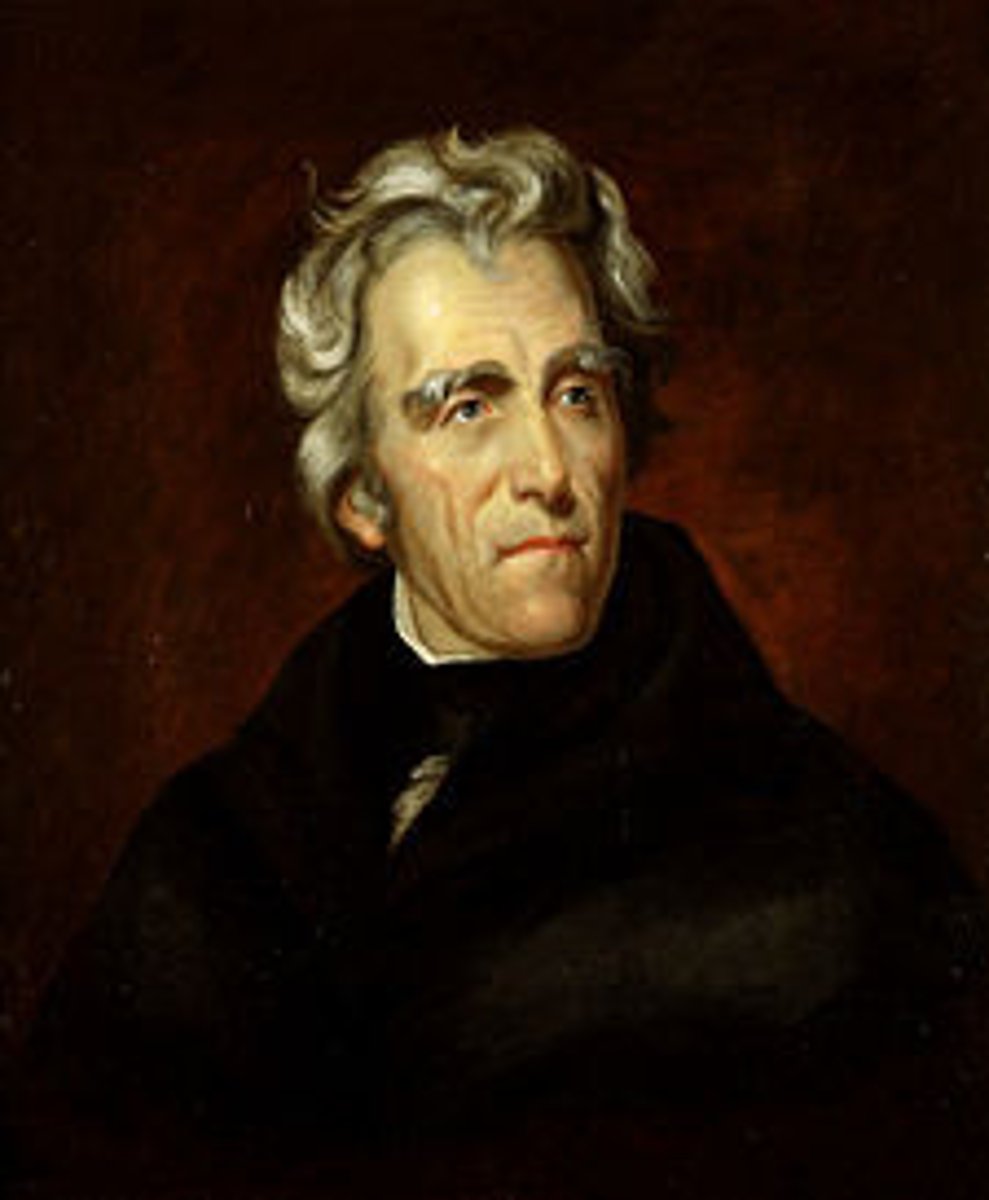
"Rather be right than president"
The line given in a speech on the U.S. Senate floor by Henry Clay on February 7, 1839, as he is speaking against petitions to abolish slavery.
The line would mark the end of his possible presidential ambitions in the Election of 1840 by alienating almost the entire North from voting for him.
Instead, William Henry Harrison would be chosen as the Whig Party candidate.
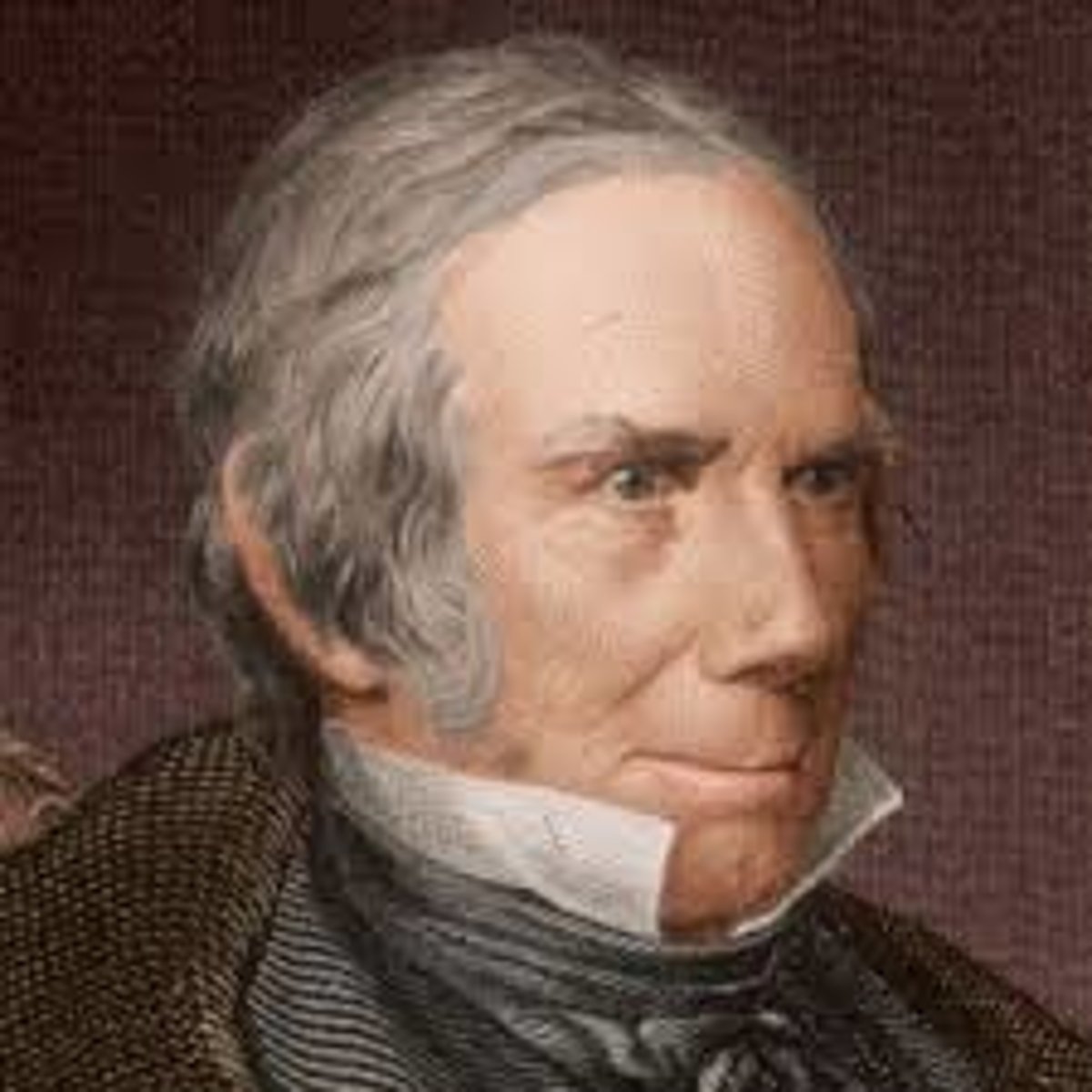
"7th of March Speech"
"I wish to speak today; not as a Massachusetts man - nor a Northern man - but as an American, & a member of the Senate of the United States."
This speech was given by Whig Senator Daniel Webster to urge sectional compromise after acquiring the Mexican Cession after the Mexican-American War.
Given in support of the Compromise of 1850, Webster's recommendation would allow the bill to pass after 8 months of debate with California admitted as a free state, slavery in the Utah and New Mexico territories would be decided by popular sovereignty, abolished the slave trade in Washington, D.C., and strengthened the Fugitive Slave Act.
Webster's support of the Compromise of 1850 would lose him all his poltiical support in Massachusetts and New England as a whole.
"tyranny of the majority"
This phrase corresponds with the Founding Father's fears of America's government being a complete democracy or expanding universal white male suffrage.
It stands for the inherent weakness to majority rule when most of the electorate pursue policies at the expense of a designated minority group.
Would become famous and well-known during Andrew Jackson's presidency and the advent of Jacksonian Democracy.
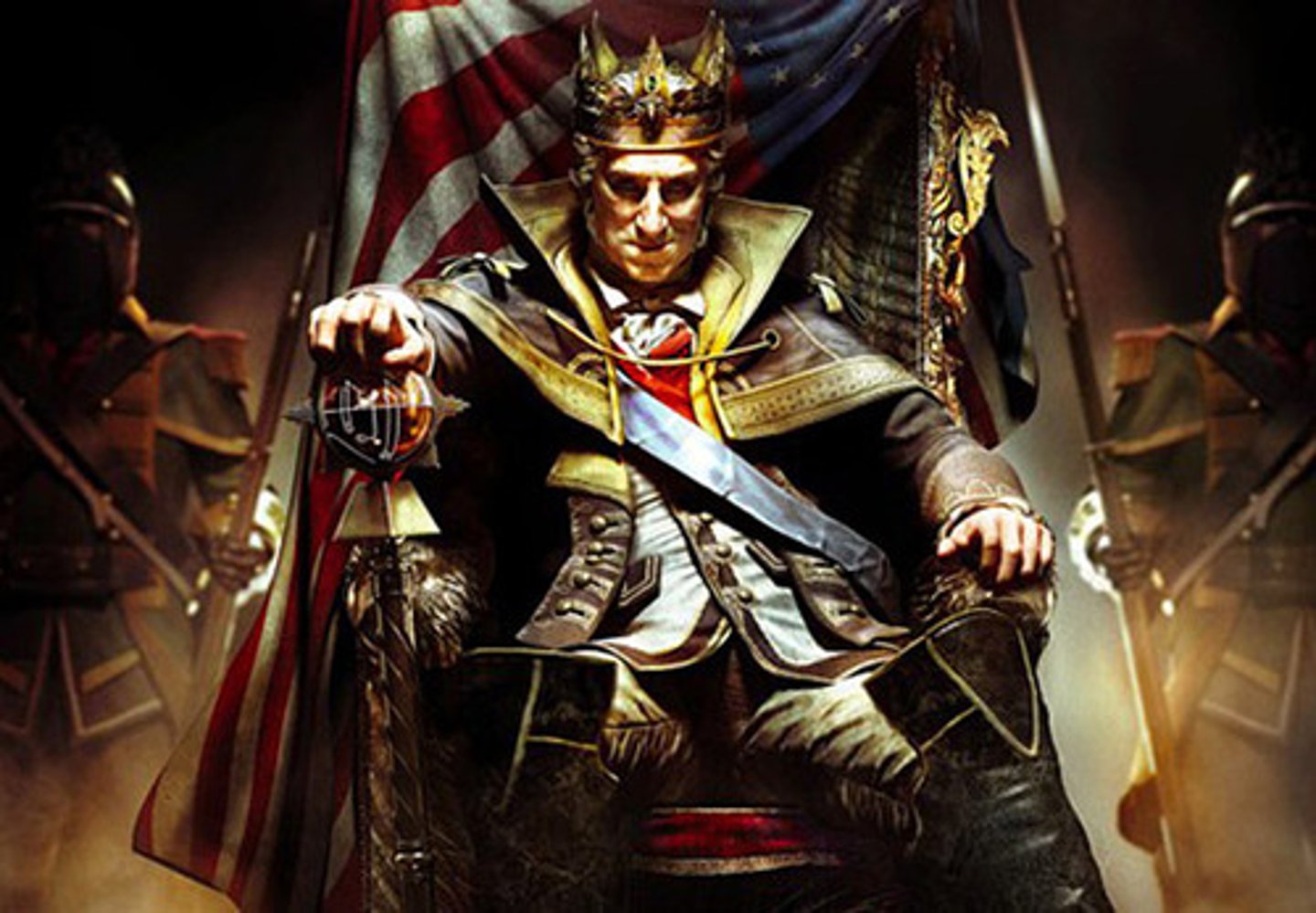
"A Definition of Parties" by John Taylor of Carolina
This 1794 pamphlet would be the first written acknowledgement of America's burgeoning poltiical party culture and the eventual two-party system that emerged between the big-government Federalist Party and the small-government Democratic-Republicans.
Written at the time by a close supporter of Thomas Jefferson, it would criticize Alexander Hamilton's federal financial policies including the assumption of states' debt and the creation of the 1st Bank of the United States.
All of this the author feared would prop up a powerful minority over the working-class majority thus distingusihing the Federalists from the agrarian, small-government D-Rs.
A.B. Plot
In 1823-1824, a political animosity towards William Crawford developed as several politicians, led by John C. Calhoun, accused him of making poor financial decisions while leading the Treasury Department that caused financial losses for the government while attempting to further his career.
Letter were published signed with these initials, which openly attacked Crawford for his relationship with the banks. He was eventually called to testify before a committee which absolved him of any crime and tarnished his accuser's reputation before the Election fo 1824.
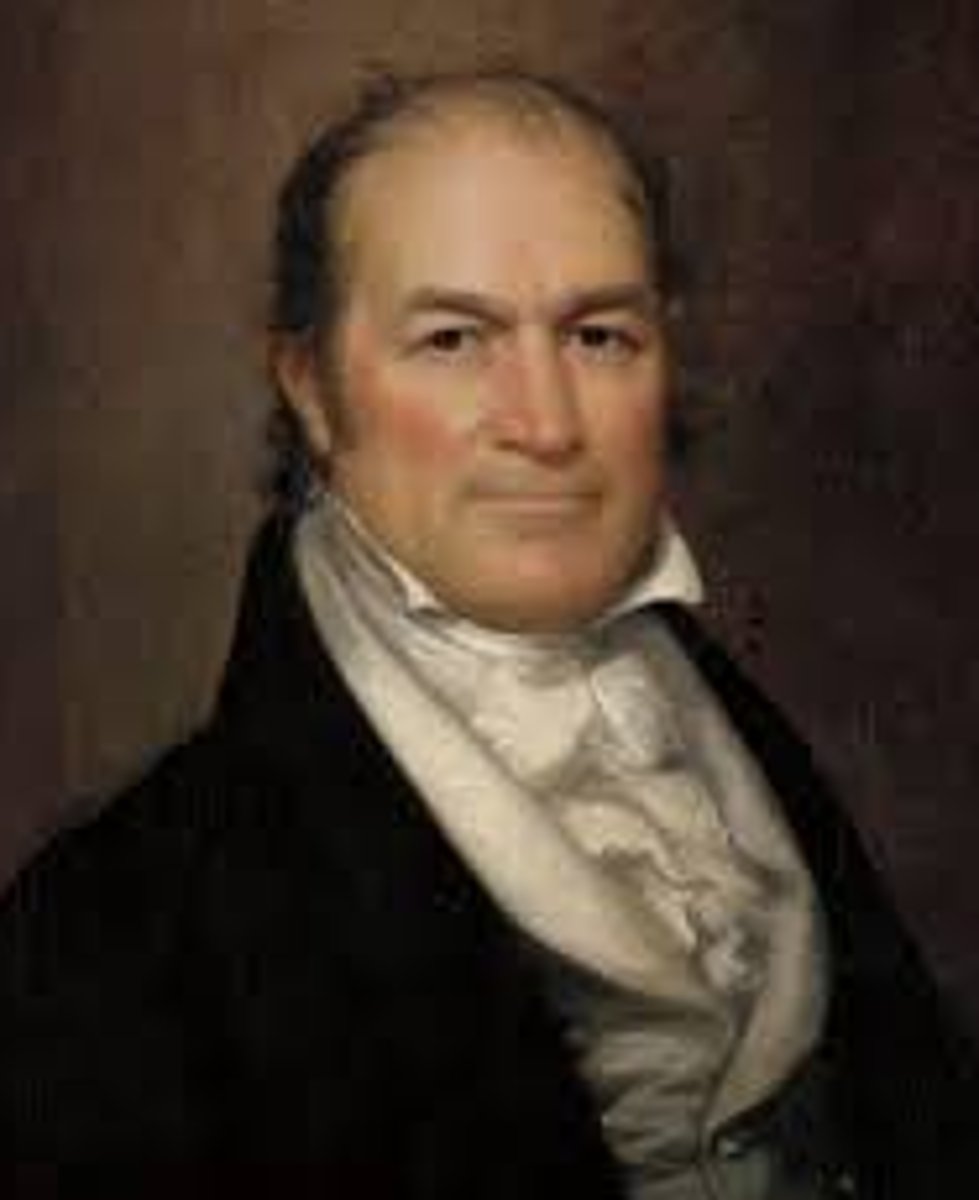
abolition movement
The movement that sought to end slavery in the United States.
It was active from the colonial era (starting in Quaker Pennsylvania colony) until the American Civil War, the end of which brought about the end of slavery with the passage of the XIII Amendment in 1865.
Beginning with the 1688 Germantown Quaker Petition Against Slavery, famous members of the movement include William Lloyd Garrison, Frederick Douglass, Harriet Tubman, John Brown, Angelina and Sarah Grimke, Lucretia Mott, Sojourner Truth, and Harriet Beecher Stowe.
In addition to public rallies, speeches, newspapers, books, and pamphlets, members of the movement also helped slaves runaway to freedom via the Underground Railroad.
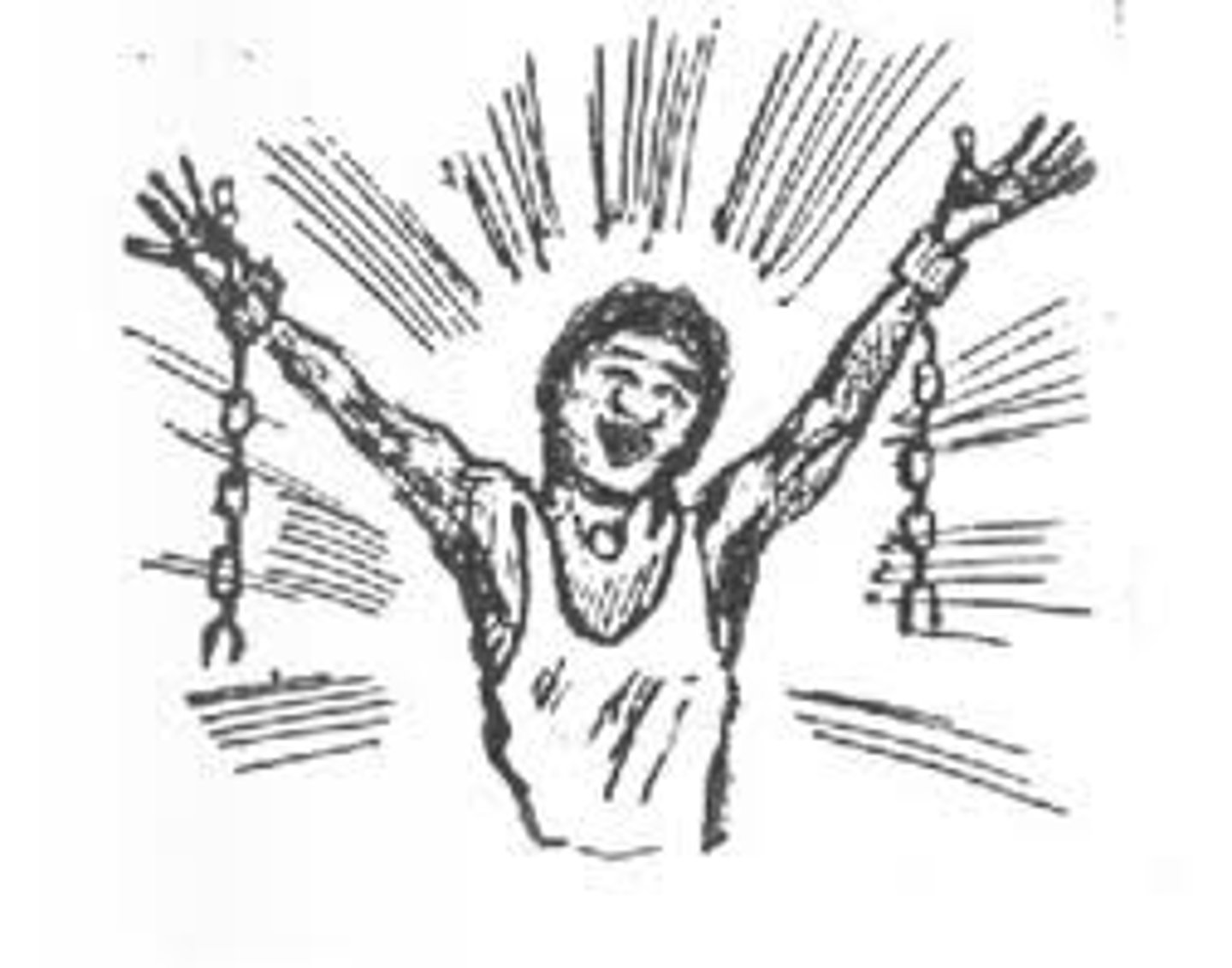
Adams cabinet purge
When President John Adams in May of 1800 became the first president to dismiss a cabinet official when he had Secretary of War James McHnery, Secretary of State Timothy Pickering, and Treasury Secretary Oliver Wolcott, Jr. resign or be dismissed.
The three men had been behind-the-scenes collaborators and friends with Federalist Party insider Alexander Hamilton, who was not a part of the Adams administration.
When Adams learned that the three were undermining his policiies and ideas to support Hamilton's ideas, Adams (no fan of Hamiltons at this point) had them fired and replaced.

Address of Southern Delegates to Constituents
Published in the "Charleston Courier" on February 1, 1849, in the immediate aftermath of the Mexican-American War.
Written and drafted by slavery's biggest defender (John C. Calhoun) and signed by 48 other Southern politicians (including future Confederate president Jefferson Davis).
It was an attempt to organize the South with a single pro-slavery voice against any limits on the spread of slavery in the new Mexican Cession.
The rest of the 121 southern congressman refused to sign it, especially Southern Whigs who thought incoming southern Whig President Zachary Taylor would be on their side.
Age of Reason by Thomas Paine
A work published between 1794-1807 by an English and American political activist arguing for the philosophical position of deism.
It would challenge instiutionalized religion and the legitimacy of the Bible.
Most of the arguments in the book had been available to the educated elite, but made deism popular and accessible to the masses.
Short-term, it caused a deism revival in the United States, but it would be repressed and rejected with the onset of the Second Great Awakening, which attempted to squash anything anti-religion.
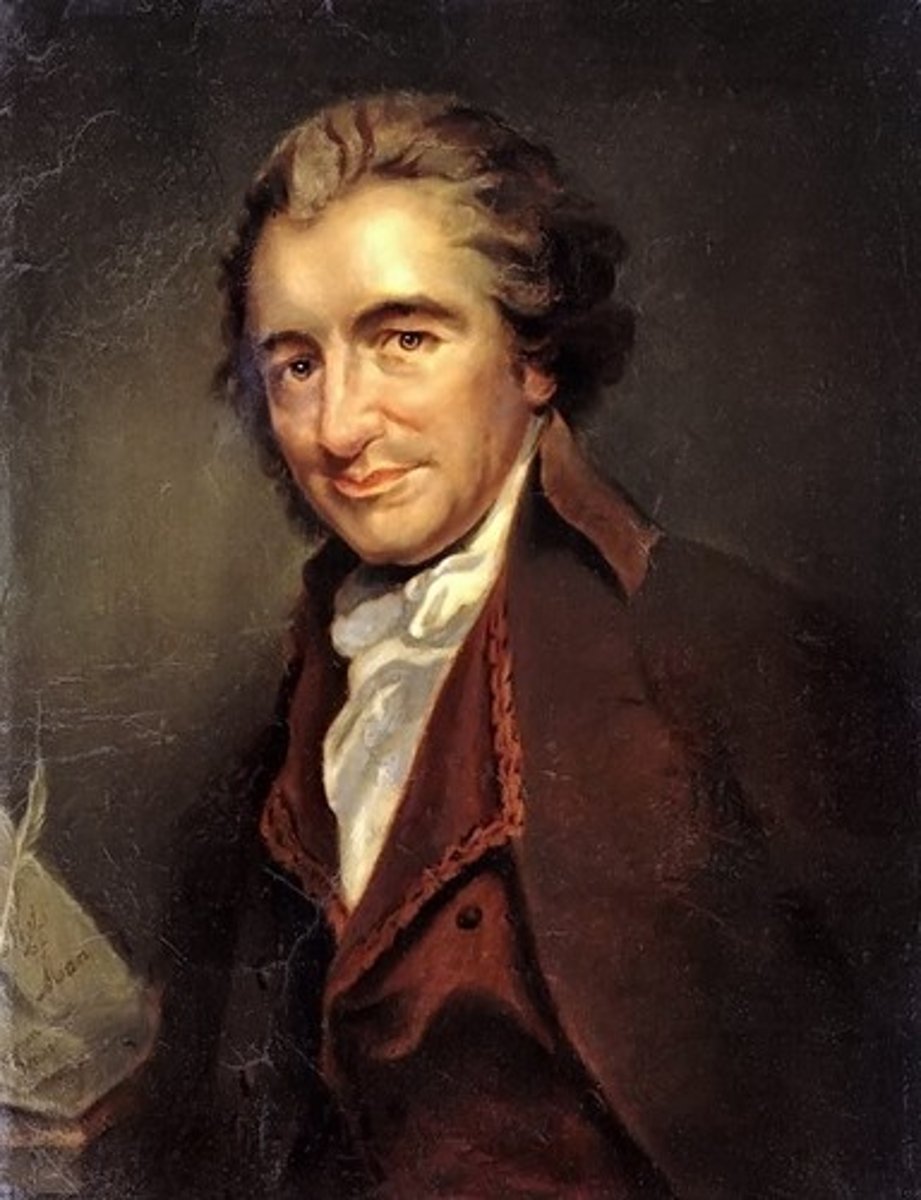
Albany Argus
The upstate New York newspaper that was the official mouthpiece for the Democratic Albany Regency political cohort.
Founded in 1813 by Jesse Buel, it would be edited by Edwin Croswell from 1824 to 1854.
Albany Regency
A group of politicians who controlled the New York state government from 1822 to 1838.
Instituted by Martin Van Buren, he would be its dominating spirit for many years.
It was among the first American political machines and would develop the patronage "spoils system" to stay in power.
Other members include Benjamin F. Butler, Samuel A. Talcott, Silas Wright, William L. Marcy, and Azariah C Flagg.
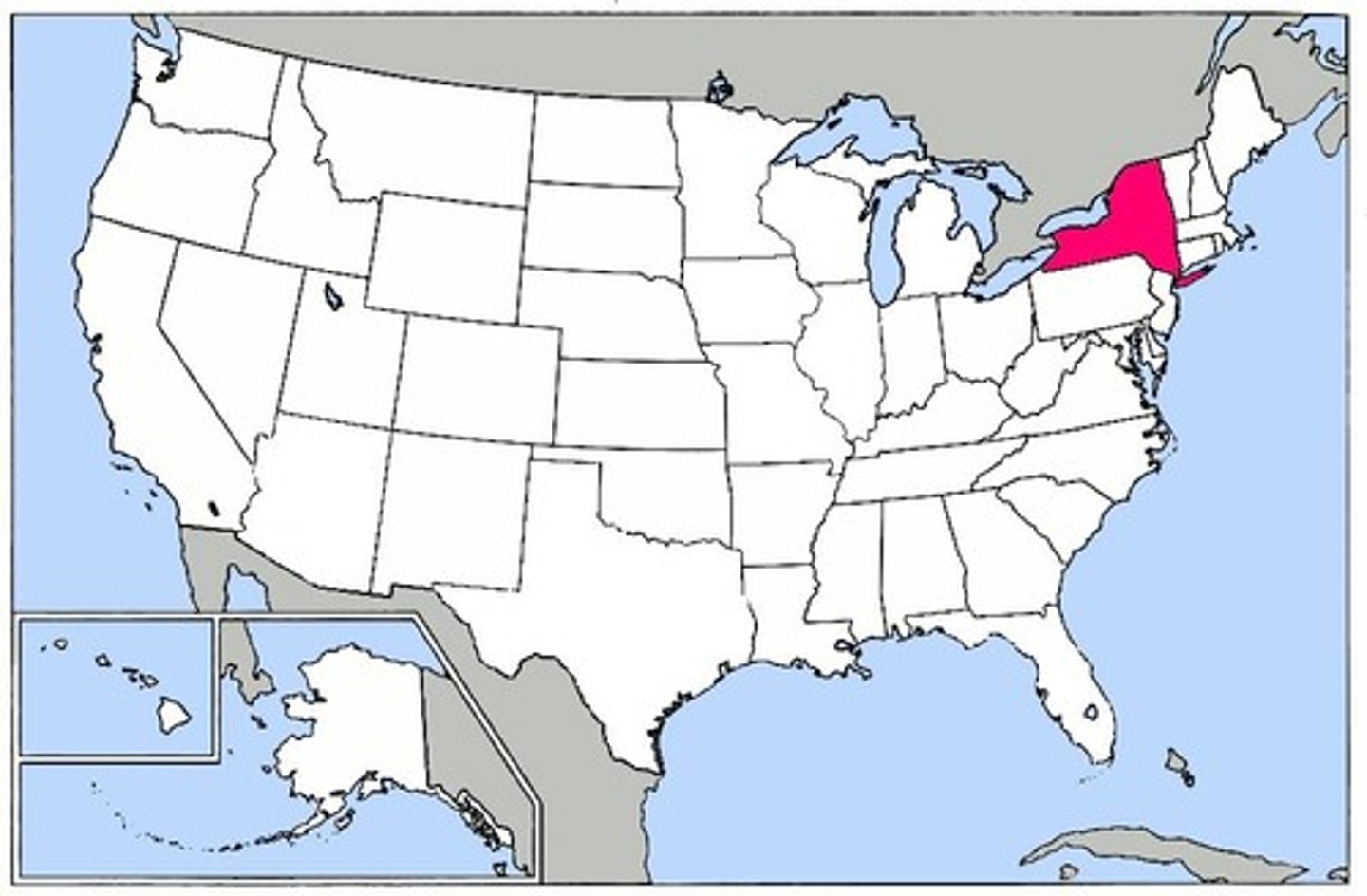
Alien and Sedition Acts
A set of four laws enacted in 1798 by President John Adams and a Federalist majority Congress following the XYZ Affair and opens the Quasi-War with France during the Adams administration.
Supported by the Federalist Party, it was denounced by the Democratic-Republican Party as suppression of voters and violation of the First Amendment.
Laws included:
- Increased the required time to become a citizen (5 to 14 years)
- Allowed the president to imprison and deport non-citizen at will
- Allowed the president to detain non-citizens during times of war at will.
- Criminalized false and malicious statements about the federal government.
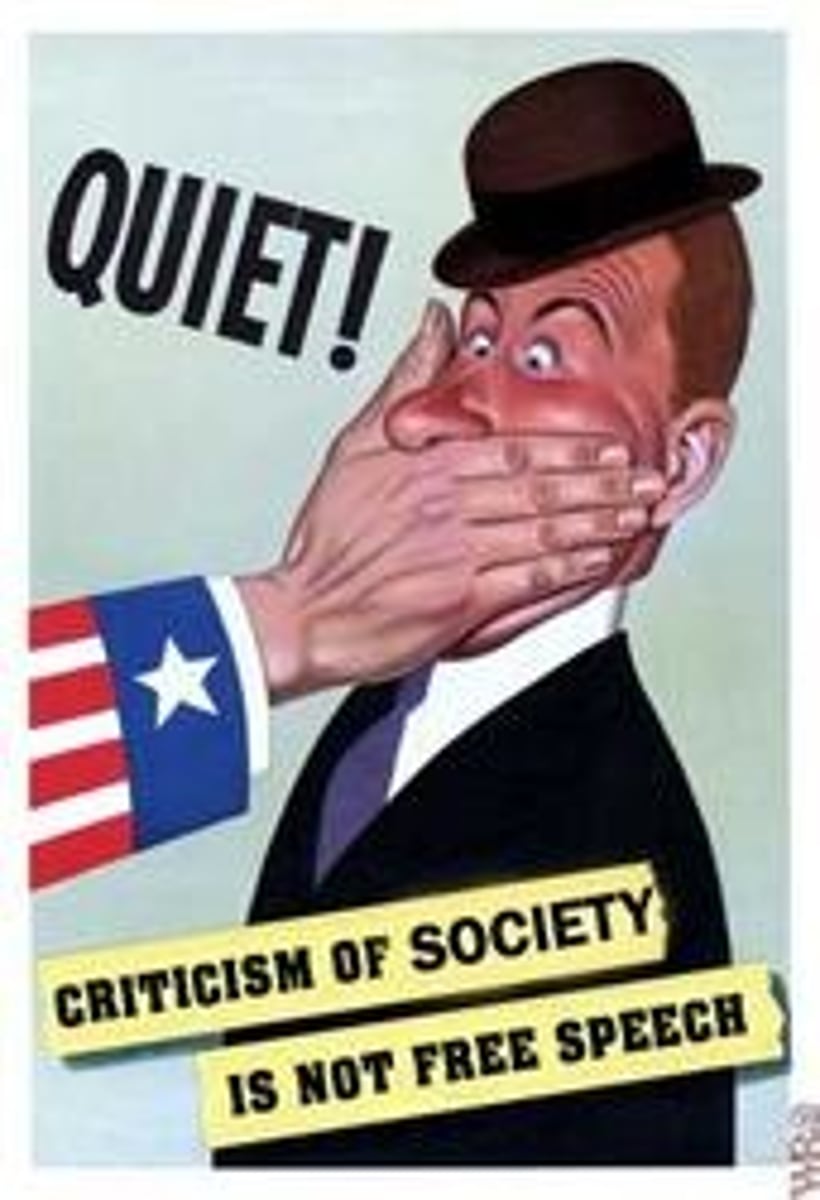
American Anti-Slavery Society
An abolitionist society founded by William Lloyd Garrison and Arthur Tappan in Philadelphia in 1833.
The group would be viewed as a controversial and dangerous organization throughout its history by pro-slavery supporters and their newspapers, rallies, and meetings were often met with violence and riots.
Well known members include: Frederick Douglass, Susan B. Anthony, Elizabeth Cady Stanton, Theodore Dwight Weld, Lewis Tappan, James G. Birney, Henry Highland Garnet, Lucretia Mott, and Wendell Phillips.
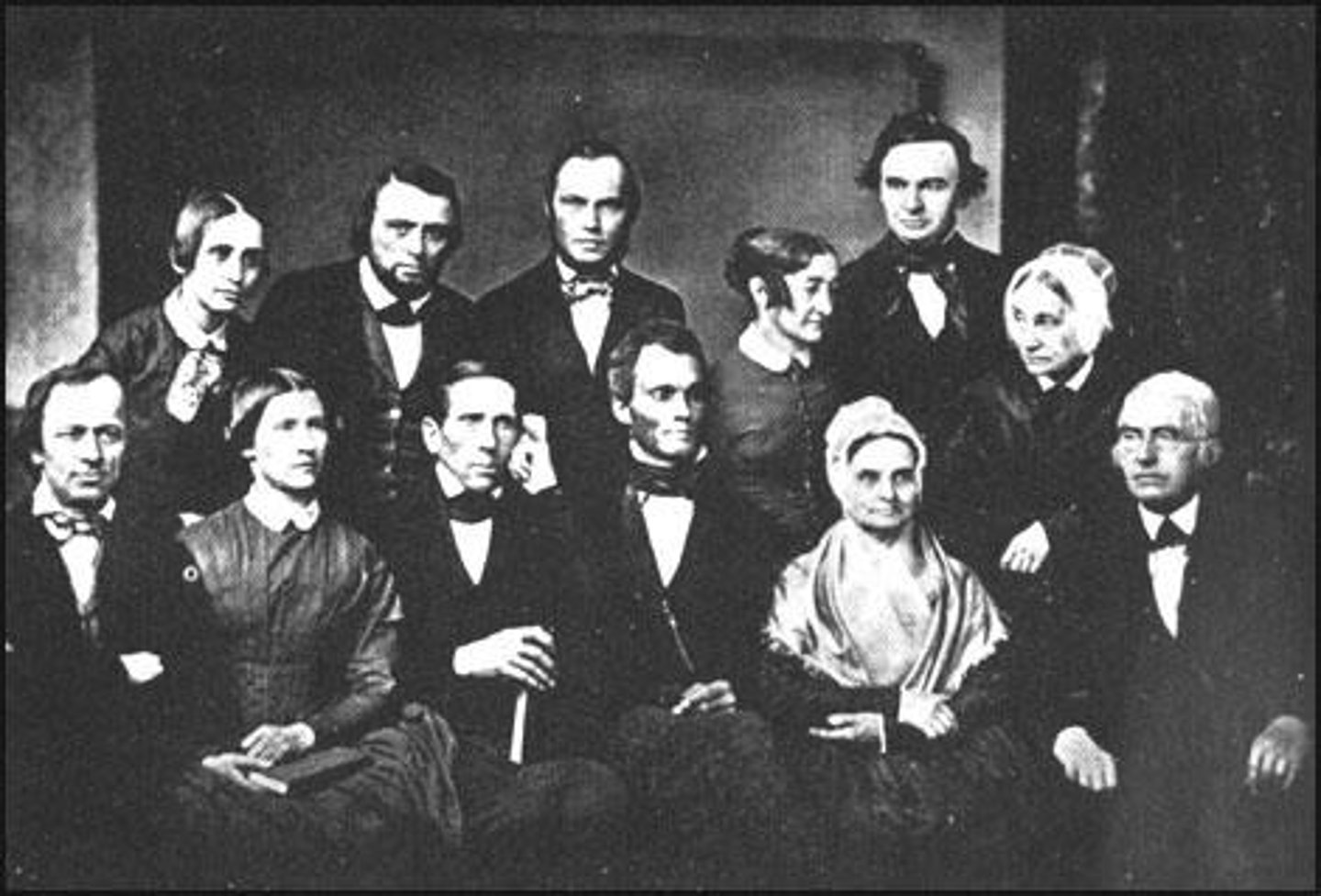
American Colonization Society
An American organization founded in 1816 by Robert Finley to encourage and support the repatriation of freeborn and emancipated Black slaves from the U.S. to Africa to the nation of Liberia.
Slaveowners feared that the rising population of free Black people might help or inspire slaves to escape or rebel.
Most Black people and abolitionists opposed the project because by this point most African-American families had been living in the U.S. for several generations.
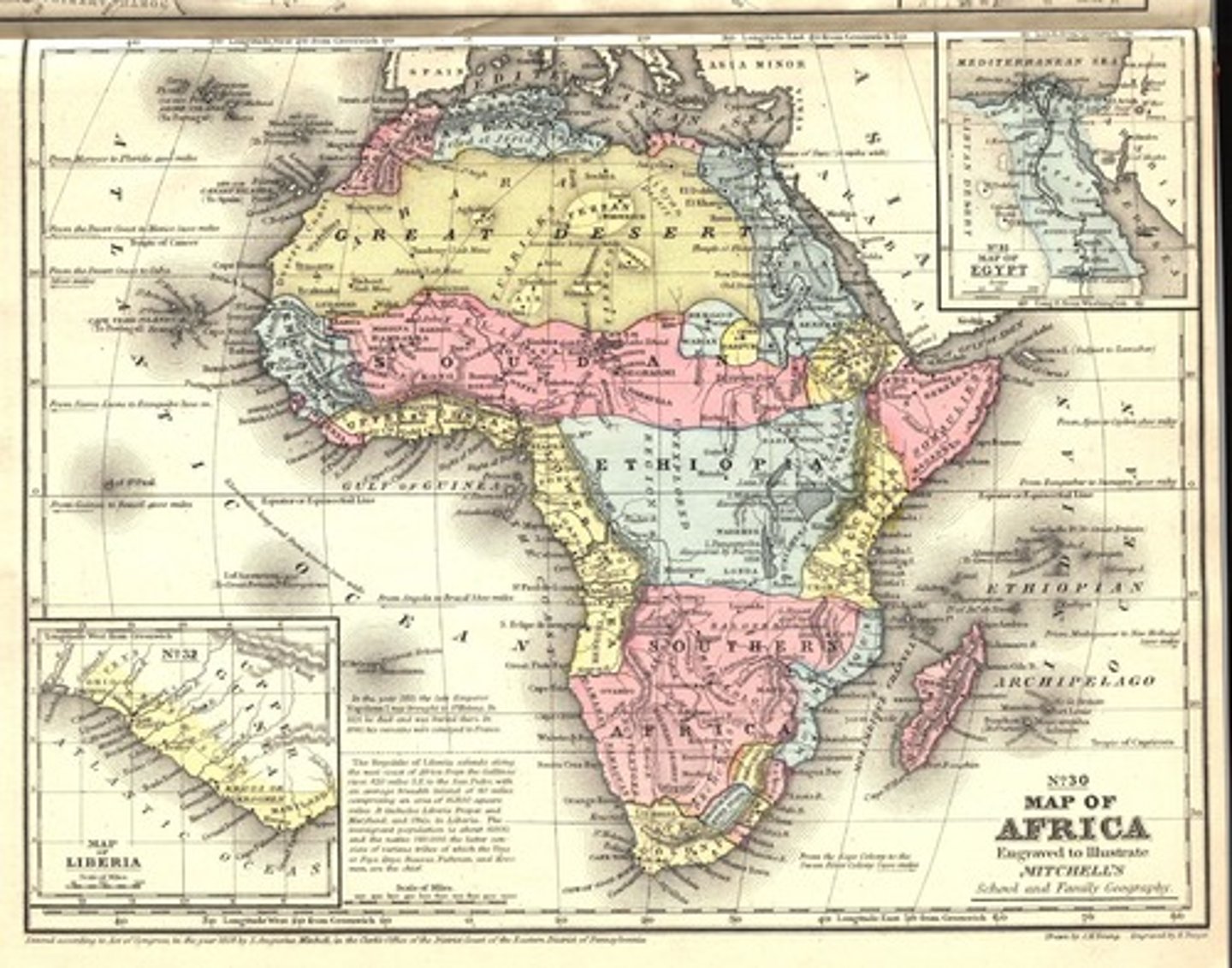
American System
An economic plan in the early 19th century rooted in the economic model created by Alexander Hamilton.
A plan to strengthen and unify the nation, the plan was advanced by leading members of the Whig Party like Henry Clay and John Quincy Adams.
It would include:
- Support for a high tariff to protect American industries.
- Maintain high public land prices to generate federal revenue
- Preserve the Bank of the United States to stabilize national currency and control risky state and local banks.
- Development of internal improvements and infrastructure to tie the nation together economically.
Southerners and Democrats generally opposed the plan.
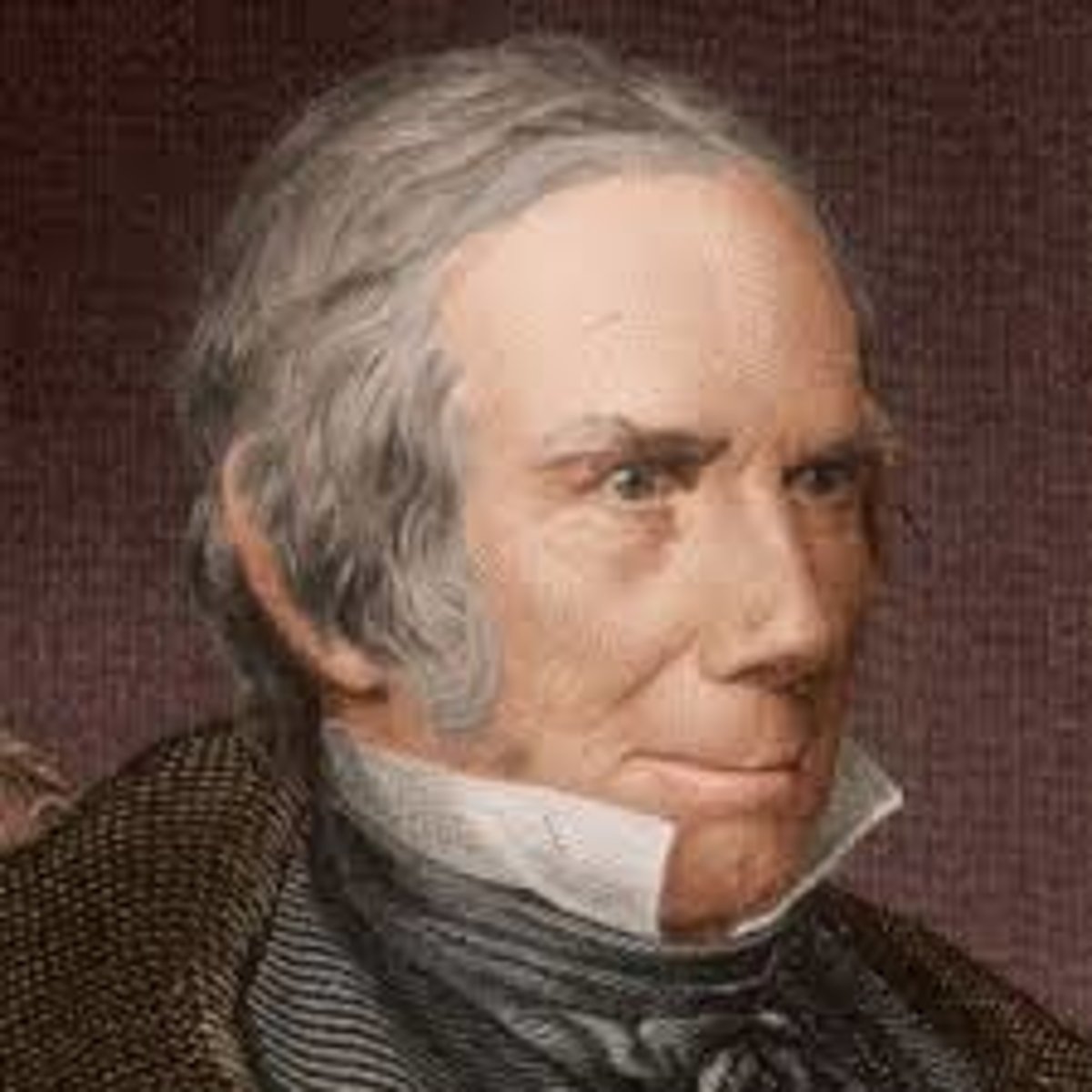
American Temperance Society
A society established on February 13, 1826, in Boston, Massachusetts. Within 10 years there were 8,000 local chapters with 1.25 million members who had taken a pledge to abstain from drinking hard liquor (not wine and beer).
The society benefited from the rise in reform movements correlating with the Second Great Awakening which also promoted aboliton of slavery and women's rights.
It would be the first U.S. social movement organization to mobilize massive and national support for a specific cause.
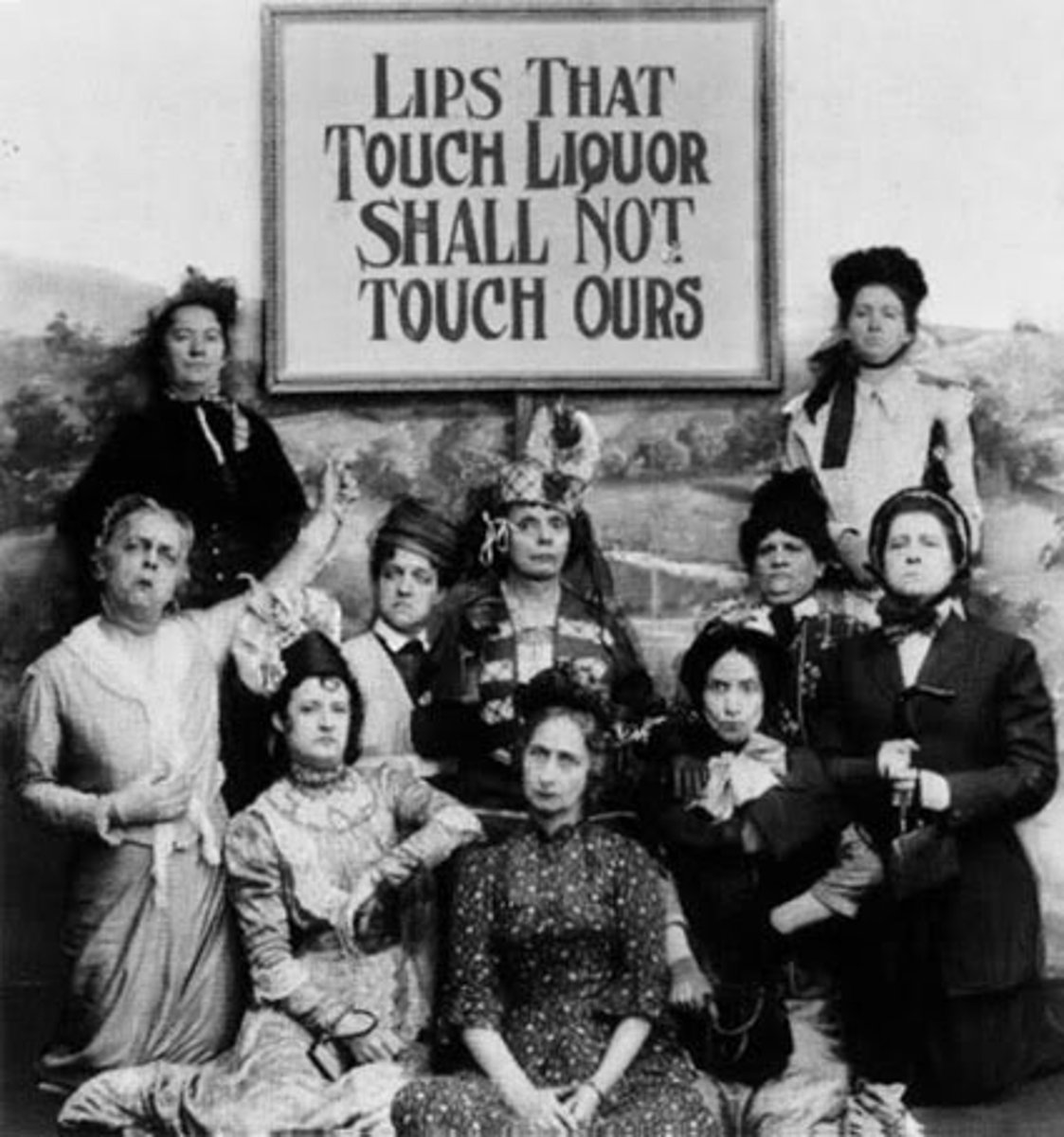
American Toleration and Reform Ticket
A political party that dominted Connecticut state politics from 1817 to 1827.
It was formed by conservative Episcopalians who were being discriminated by Congregationalists (Puritans) who mostly aligned with the Federalist Party.
It swept the elections in 1817 by aligning with the Democratic-Republican Party. The party, while in power, would increase the electorate to all white men and disestablish the Congregational Church as the official government-sanctioned religion (separation of church and state).
They would eventual merge with the Connecticut Democratic Party.
Amistad Affair
An incident in July 1839 when 53 Mende Africans led a slave revolt on board this Spanish-owned ship.
Illegally transported by Portuguese traders from Africa to Cuba, the slaves revolted when the cook jokingly told them that they were to be "killed, salted, and cooked."
The Spanish sailors left alive sailed up the east coast hoping for American assistance and were forced to dock off Long Island, New York.
The subsequent Supreme Court case and the slaves eventual freedom would galvanize the abolition movement in the U.S.
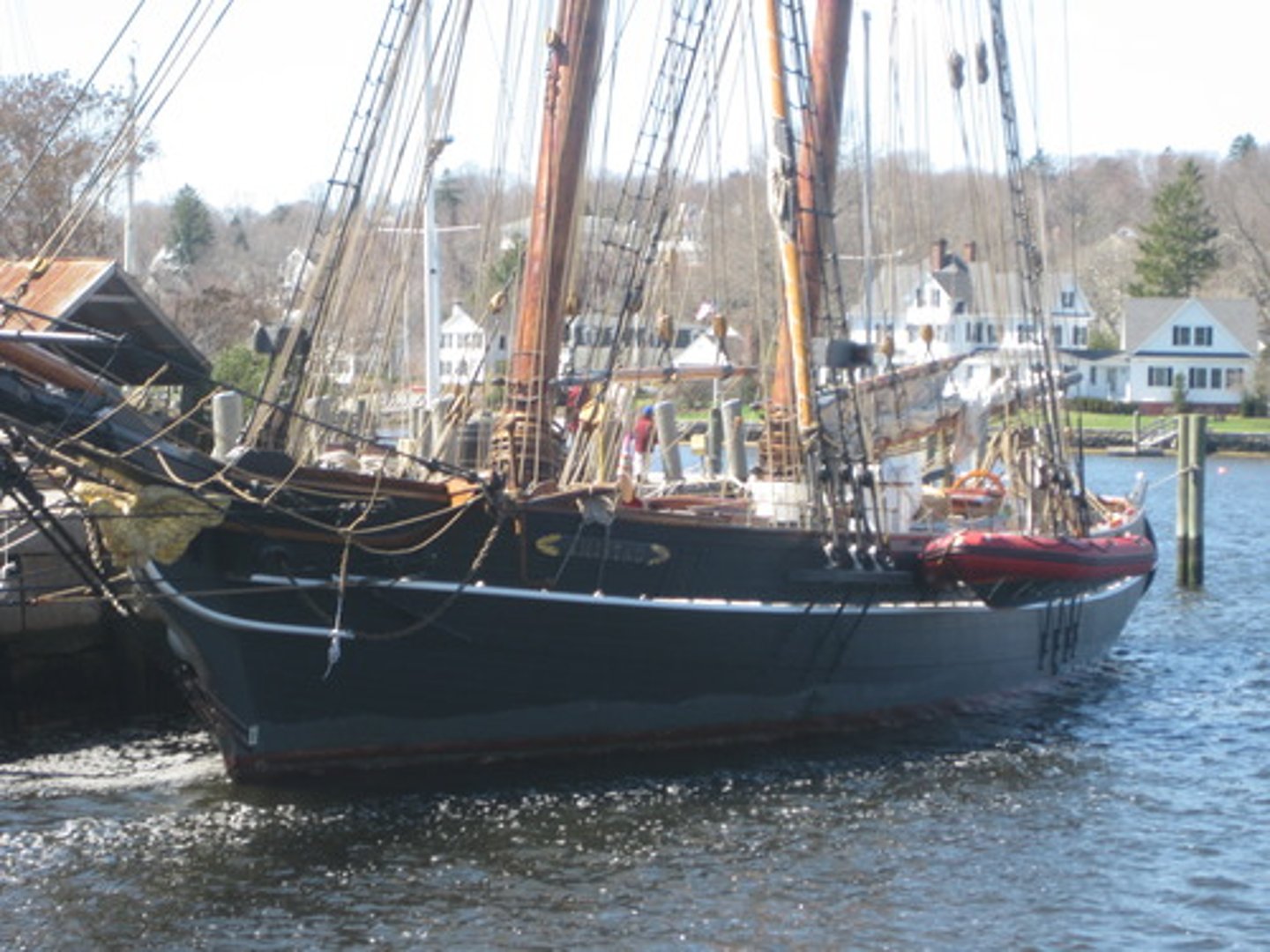
Anti-Jackson Party
A short-lived political party that came about in the final days of the "Era of Good Feelings" during the contentious Election of 1824.
Also known as the National Republican Party (no relation to the current one started in 1854). Members of this party supported John Quincy Adams over Andrew Jackson in 1824, and after the Jackson presidency, they would merge with the Anti-Masonic Party to form the Whig Party, which would battle the Democratic Party for the next 22 years.
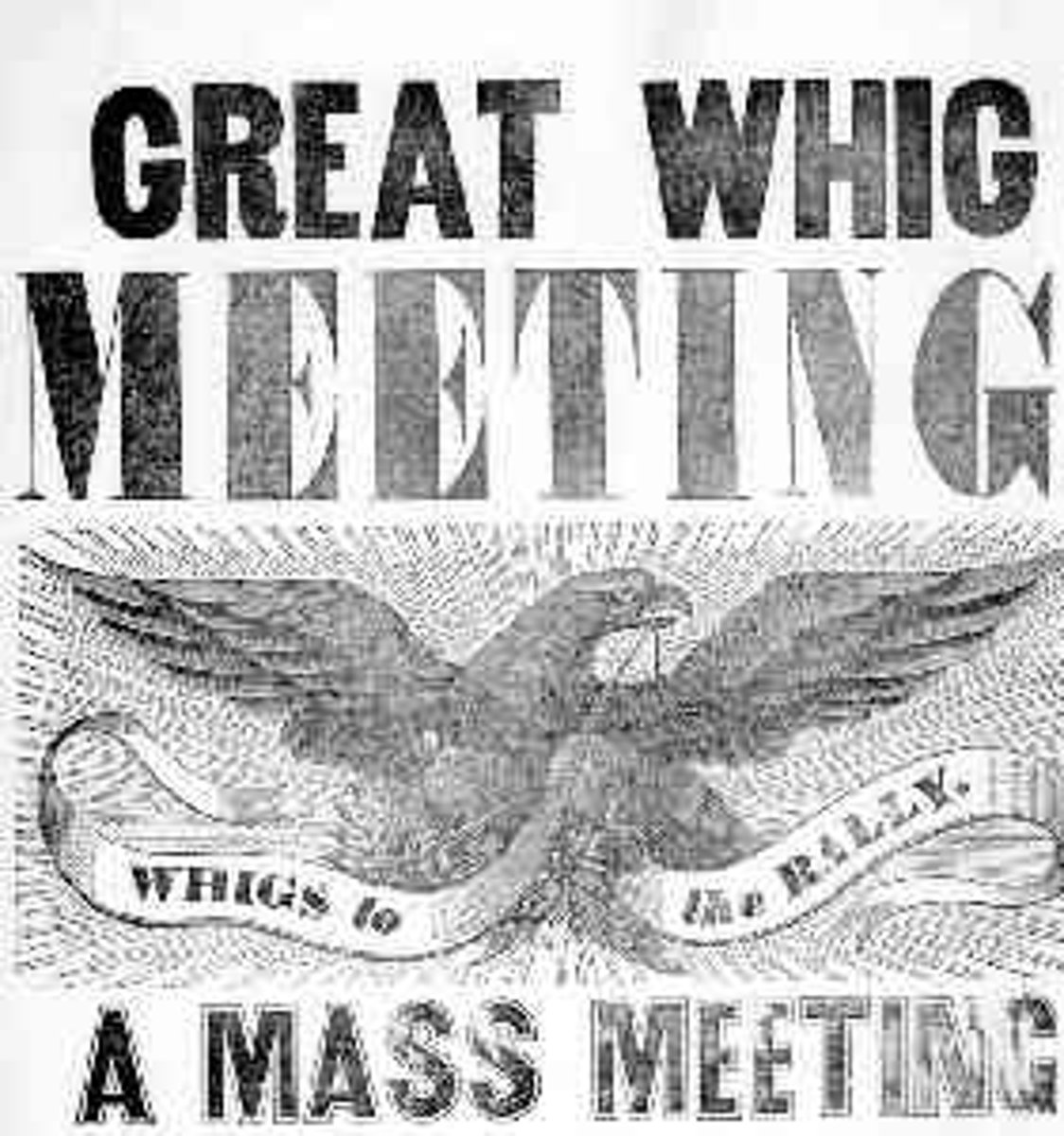
Anti-Masonic Party
The first third party in American history. Formed in 1828, it was a single-issue party that strongly opposed Freemasonry in the United States and economic and political elites in general.
The party was active especially in the Northeast and later attempted to become a major party, but would be absorbed into the Whig Party by 1838.
The party was founded following the mysterious disappearance of William Morgan, a former Mason who had become a prominent critic of the organization.
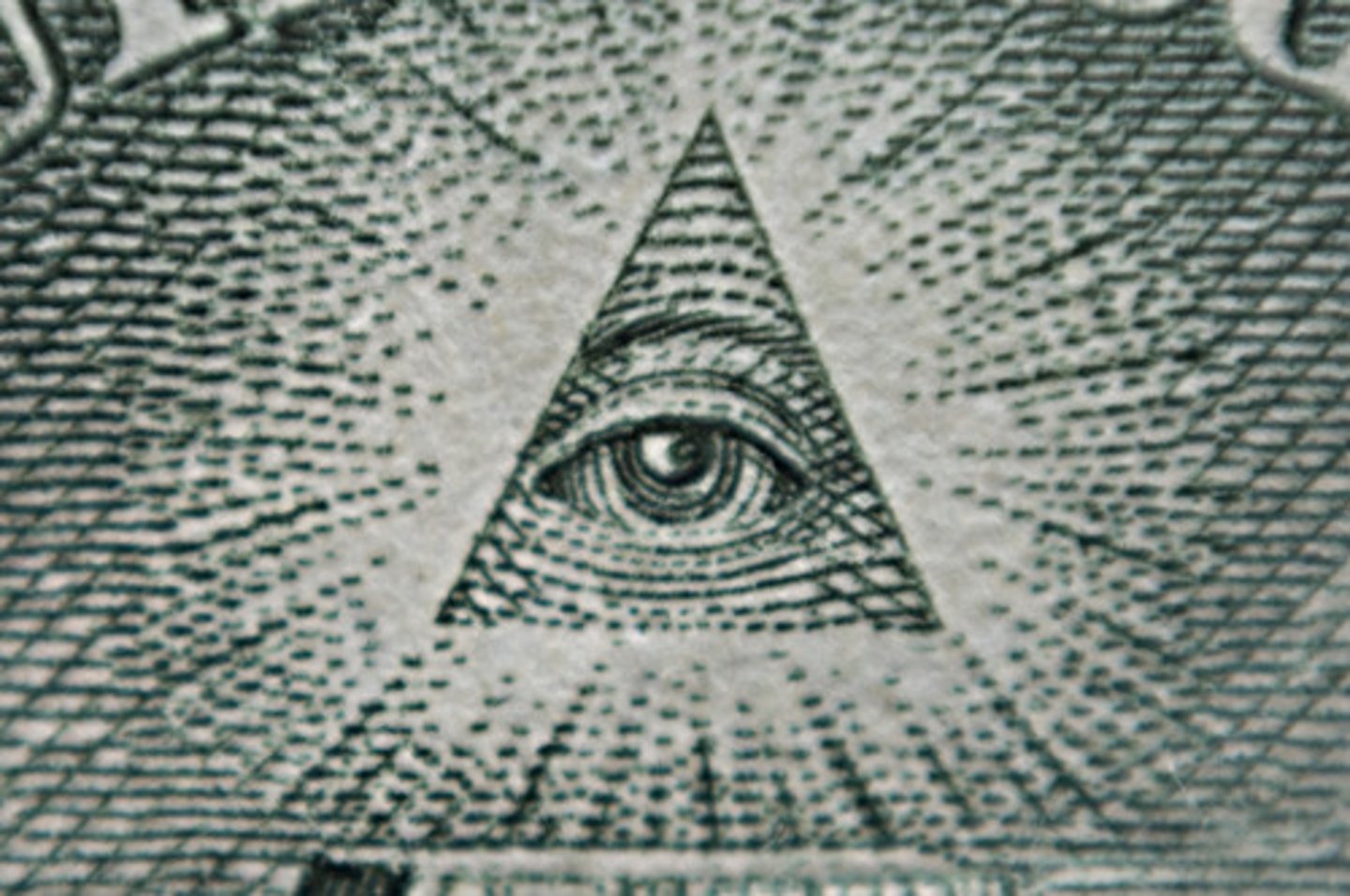
Argus of Western America
A newspaper published in Frankfort, Kentucky with Amos Kendall as its editor-in-chief.
Published from 1808 to 1830, it would originally support Henry Clay but would switch allegiances to his rival Andrew Jackson after the Election of 1824 and the Democratic Party rose in popularity.
Assumption Plan
Known as the Funding Act of 1790 during President Washington's administration, this plan led by Secretary of Treasury Alexander Hamilton allowed the the national government to assume the debts that states had left over from the Revolutionary War and was a part of his financial strategy which included a tariff and excise tax.
This plan included a compromise of relocating the national capital to the south in present-day Washington, D.C.
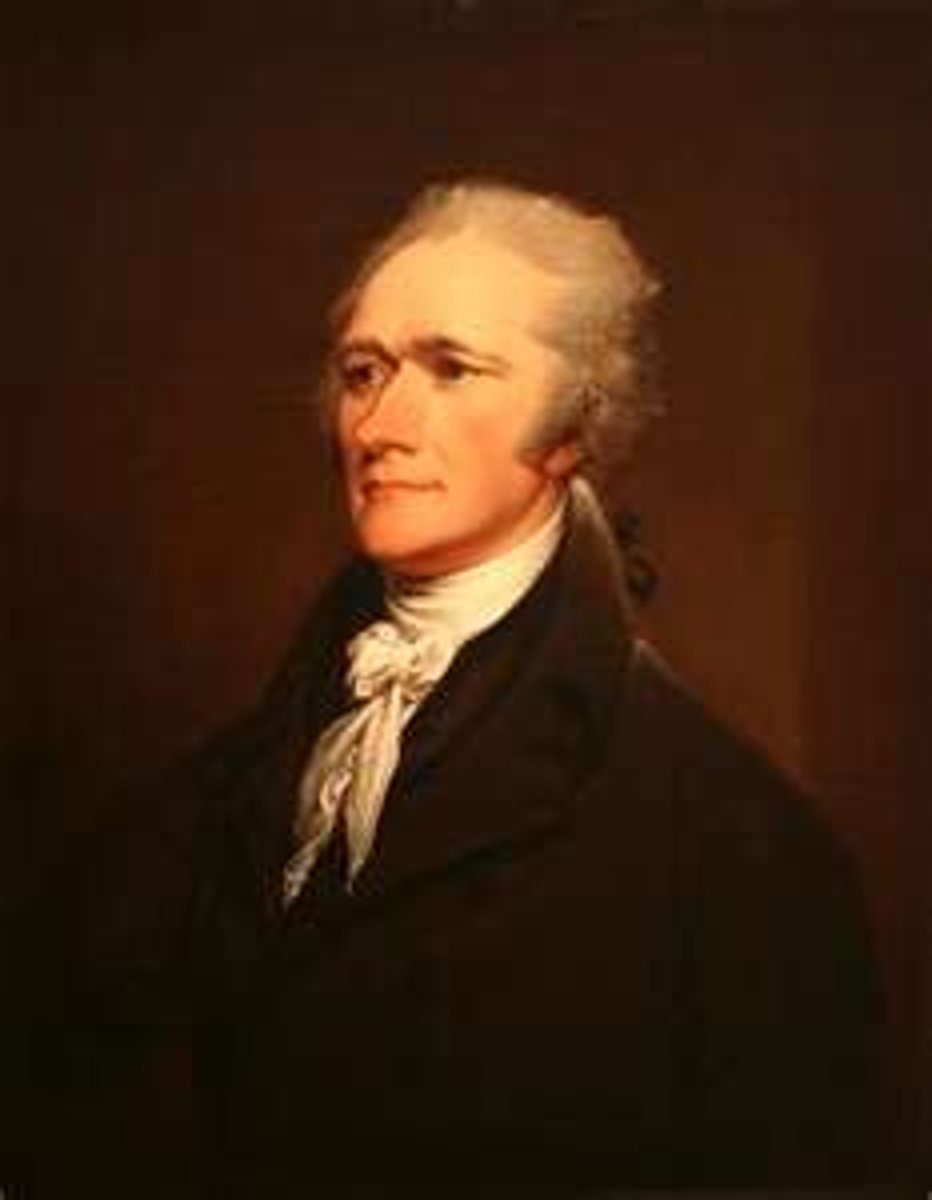
Aurora General Advertiser
A newspaper published in Philadelphia, Pennsylvania, from 1789 to 1824.
The paper was founded by Benjamin Franklin Bache. After his death, it became a leading mouthpiece for the Democratic-Republican Party and Jeffersonian ideals and was used as a weapon against the Federalist Party.
Both Bache and future editor William Duane would be arrested for libel against the Adams administration under the Alien and Sedition Acts.
Bank Democrats
8 members of the Democratic Party in the U.S. Senate that joined with Whigs and Anti-Masons in passing a renewed charter for the 2nd Bank of the United States, opposing the head of their party, President Andrew Jackson, who would veto the recharter.
Bank Veto
Official statement from President Andrew Jackson issued on July 10, 1832, that would kill the recharter of the 2nd Bank of the United States.
The statement pitted "the planters, the farmers, the mechanic and the laborer" against the "monied interest." This would make the 2nd Bank of the United States the main issue in the Election of 1832 and solidify the 2nd Party System (Democrats vs. Whigs).
Bank War
A political struggle that developed over the issue of rechartering the 2nd Bank of the United States during the presidency of Andrew Jackson.
The conflict resulted in the shutdown of the bank and its replacement by a variety of state banks.
Whigs supported the Bank as a good that would stabilize the economy and the national currency. However, Democrats viewed the Bank as corrupt and that it favored merchants and speculators at the expense of working-class Americans.
Bank president Nicholas Biddle with support from Whig congressmen Henry Clay and Daniel Webster pushed the recharter through Congress but would see it vetoed by Jackson.
Jackson would shut down the Bank when Congress wasn't in session and had most of the funds moved to various state/pet banks across the nation.
Bluffton Movement
A political initiative born during a political rally held under the "Secession Oak" in South Carolina on July 31, 1844.
The movement was an attempt to kick of "separate state action" against the Tariff of 1842 after John C. Calhoun failed to secure the presidential nomination and the tariff was left intact.
Many men advocated for disunion, yet their leader Robert Barnwell Rhett called for reform and not secssion and ultimately Calhoun would disavow the movment.

Boston Brahmins
Members of Boston's historic upper class. From the late 19th century through the mid-20th century, they were often associated with a cultivated New England accent, Harvard University, and the Church of England.
Descendants of the earliest English colonists are typically considered to be the most representative of this group. Also considered WASPs (White Anglo-Saxon Protestants).
Bucktail Republicans
A faction within the Democratic-Republican Party in New York state opposed to Governor DeWitt Clinton.
It was influenced and led by the Tammany Society under the leadership of Martin Van Buren and the name of the group is from Tammany's logo, a deer's tail worn on a hat.
Van Buren would make this anti-Clinton coalition the first statewide political machine in U.S. history, controlled the Albany Argus, and used the spoils system to put their supporters in place.

Buffalo Anti-Slavery meeting
The 1843 National Convention of Colored Citizens in upstate New York was an assembly for African-American citizens to discuss the organized efforts of the anti-slavery movement. It witnessed the address by abolitonist Henry Highland Garnet to encourage slaves to rise against their masters whereas Frederick Douglass advocated for peaceful methods
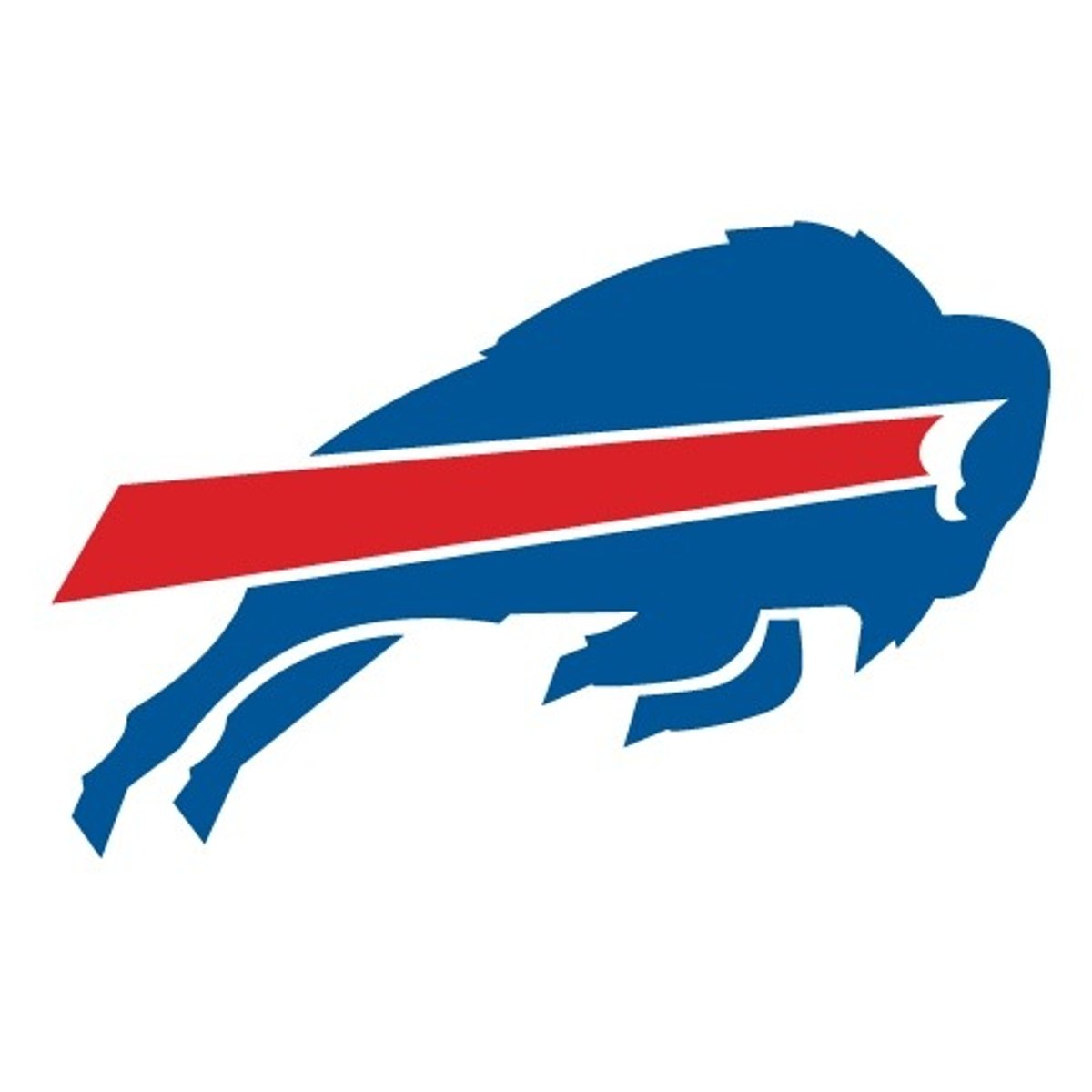
Burr Conspiracy/Trial
A plot where the sitting vice-president allegedly attempted to use his international connections and support among a cabal of American planters, politicians, and army officers to establish his own country in the American southwest, parts of Mexico, and Florida.
The vice-president was arrested in February 1807 on President Thomas Jefferson's orders and indicted for treason.
The VP was ultimately acquitted due to lack of evidence but it killed his political career and effigies of his likeness were burned throughout the country. He fled into exile in Europe.
Chesapeake-Leopard Affair
A naval engagement off the coast of Norfolk, Virginia, on June 22, 1807, between British and American ships.
The British vessel pursued and attacked the American vessel looking for deserters of the Royal Navy. 4 crew members were removed from the American ship and impressed and tried for desertion, with one eventually being hanged.
This event created an uproar and contributed to anti-British sentiment leading up to the War of 1812. Jefferson would ultimately respond with economic warfare in the form of the Embargo Act of 1807.
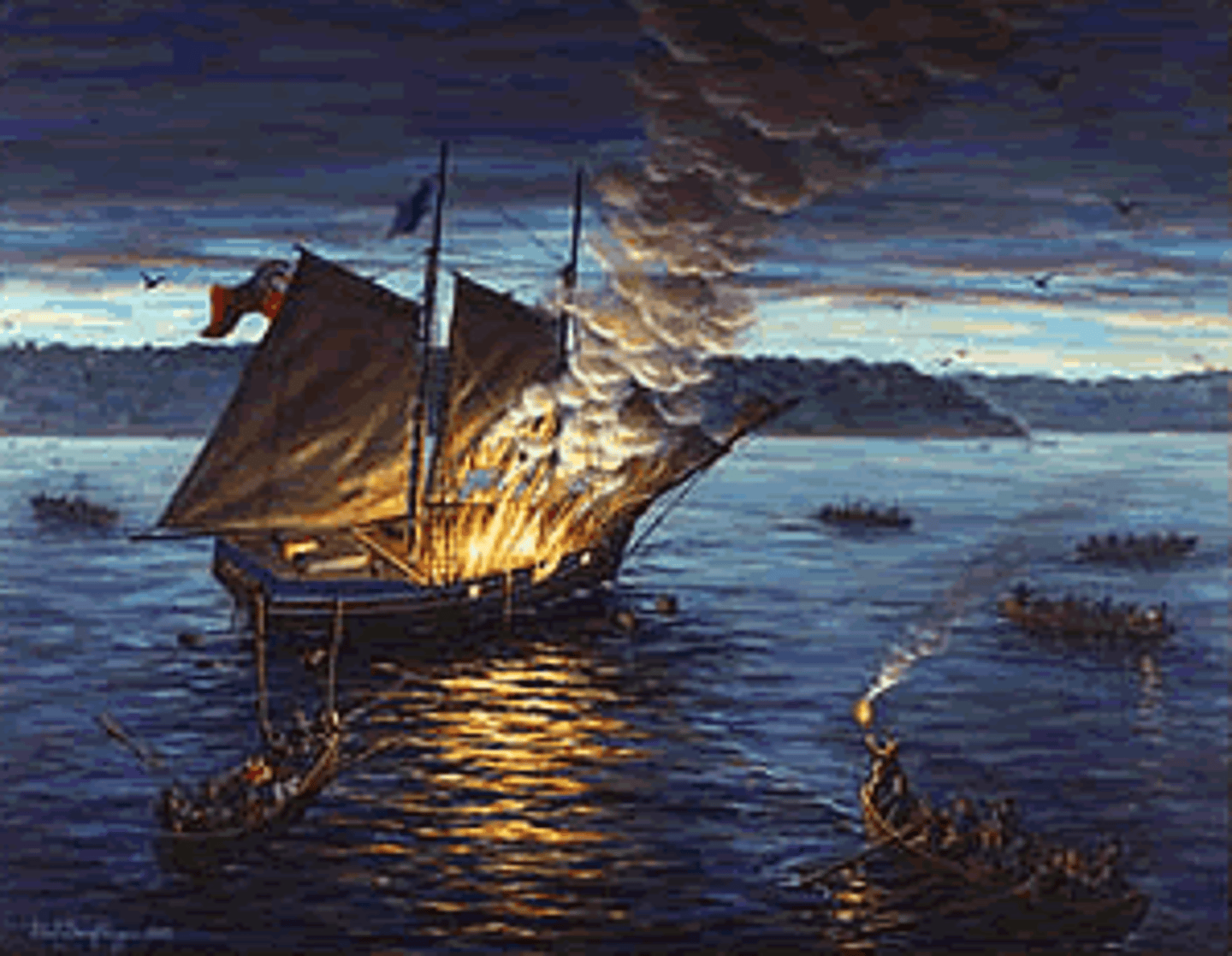
Clay's statement on Texas Annexation
Known as the "Raleigh Letter," this 1844 letter to a political newspaper by a Whig Party candidate for president encouraged Congress NOT to annex Texas so as to not 1) trigger a war with an enraged Mexico, and 2) prevent the disruptive effects the annexation would have on the slavery debate and the nation's political unity.
This would ultimately contribute to this perennial presidential candidate to lose his last attempt at the White House, losing to Manifest Destiny candidate James K. Polk, a Democrat from Tennessee.
come-outer
A term originating during the 2nd Great Awakening. It was used to describe anyone who withdrew membership from their church if said church was neutral about or pro-slavery in stance.
Grew more and more common with the increasing popularity of abolitionism.
Committee of Fifteen (1819)
The Alabama state government selected a committee of members to draft a new progressive and more democratic state constitution.
They and the new state constitution would place restrictions on banking, term limits for governors who were elected by the people, and included enslaved people's rights to food, clothing, and fair treatment.
compact theory
A theory promoted by John C. Calhoun during his Nullification Crisis that rejected that the people were the ultimate sovereign in accepting and interpreting the Constitution.
The theory stipulates that the states themselves are the final authority on powers of the federal government.
Compromise of 1850
A set of five legislative bill that collecetively are known by this much more famous name.
They included:
- California's entry as a free state
- A stronger fugitive slave law
- Established the territories of New Mexico and Utah with no restrictions on slavery
- Defining the border of Texas
- Banning the slave trade in Washington, D.C.
These bills were highly debated for several months which displayed the major divisions between North and South.
Henry Clay (W-KY) helped to propose the bills and Stephen Douglas (D-IL) helped to secure their passage.

Conscience Whigs
A faction within the Whig Party that was centered in Massachusetts, they opposed the Mexican-American War and the annexation of Texas, viewing both as a blatant attempt to expand slavery and the power of slave oligarchy.
In 1846, the Whig Party split over the Wilmot Provisio and the Mexican-American War, leading to this faction's creation.

Corrupt Bargain
A nickname for the proposed secret agreement during the presidential election of 1824 between Andrew Jackson, Henry Clay, John Quincy Adams, and William Crawford.
There was not a majority in the Electoral College votes, therefore, the election was decided in the House of Representatives who voted for Adams.
The name itself refers to how Henry Clay turned his support to Adams and was named Secretary of State in Adams's cabinet. Jackson had the plurality of the Electoral College and the leader in the popular vote, and his supporters attacked the outcome as anti-democratic.

Cotton Whigs
In 1846, after the Wilmot Proviso, the Whig Party split over the issue of slavery along regional lines. This mostly southern and pro-slavery faction of the Whig Party was led by Edward Everett and focused mostly on supporting the cotton industry as opposed to slavery itself.

Deism
A philosophical movement that was popular amongst those schooled on the tenants of the Enlightenment which rejects divine knowledge and intervention in the world and relies on reason and observation.
Followers believe there is a God but not necessarily a specific religious God, instead existence of the being is revealed through nature.
Popular practioners include Thomas Jefferson, Thomas Paine, and Benjamin Franklin.
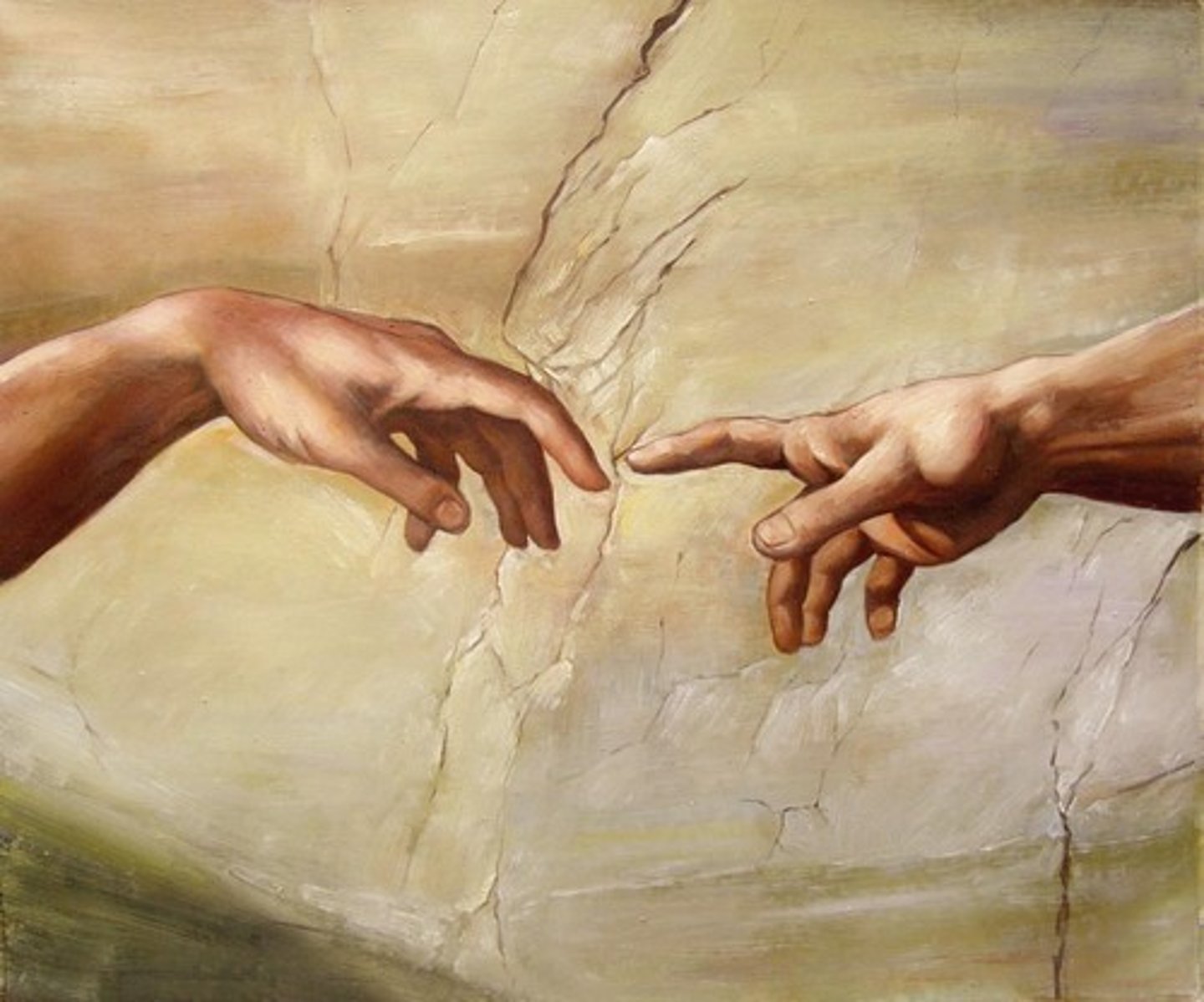
democracy
A system of government based on the will of the people in which laws and leadership of the country are decided directly or indirectly by its population.
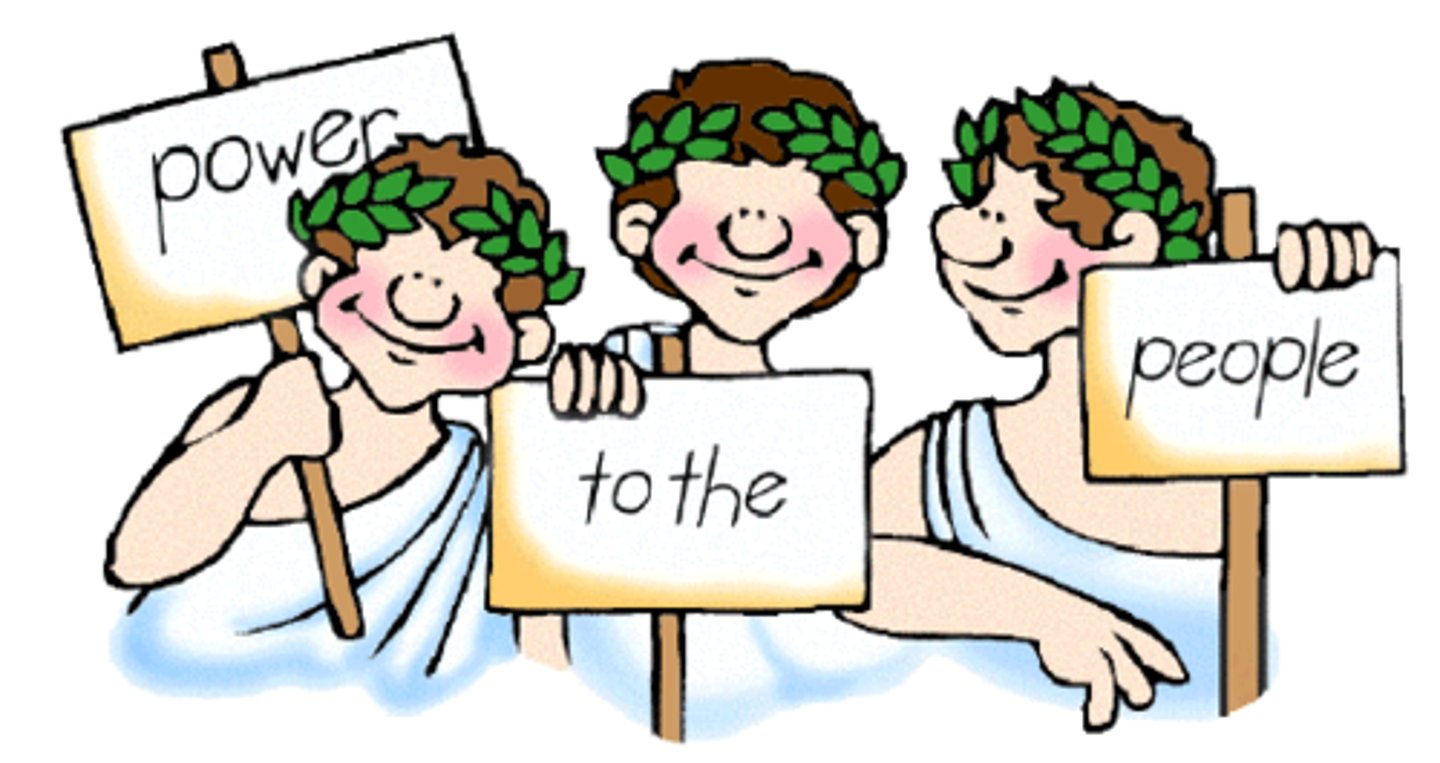
Democratic Party Convention of 1832
The first presidential nominating convention held by a major political party.
Held in Baltimore, Maryland for the presidential election of 1832, it was organized by Andrew Jackson's Democratic Party and his "kitchen cabinet" to help determine a running mate for Jackson's reelection.
The convention selected Martin Van Buren.
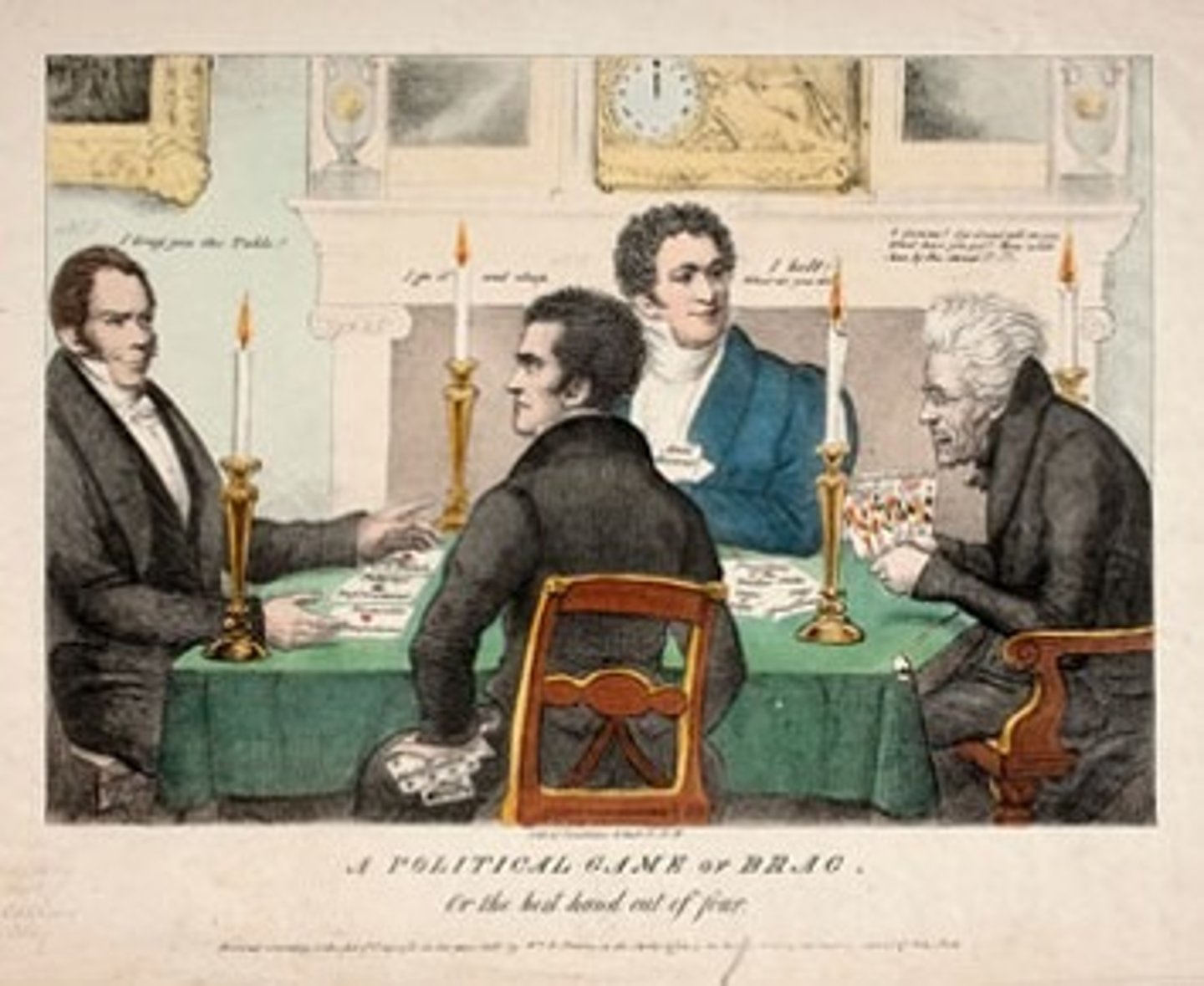
Democratic Party Convention on 1844
The political party nominating convention that met in Baltimore, Maryland, to decide the candidates for the Election of 1844 and unite the party.
Martin Van Buren began as the leading candidate at the beginning of the convention, however, the delegates selected James K. Polk, the "dark horse" candidate, after the 9th ballot, and he went on to win the Election of 1844 with his running mate George Dallas.
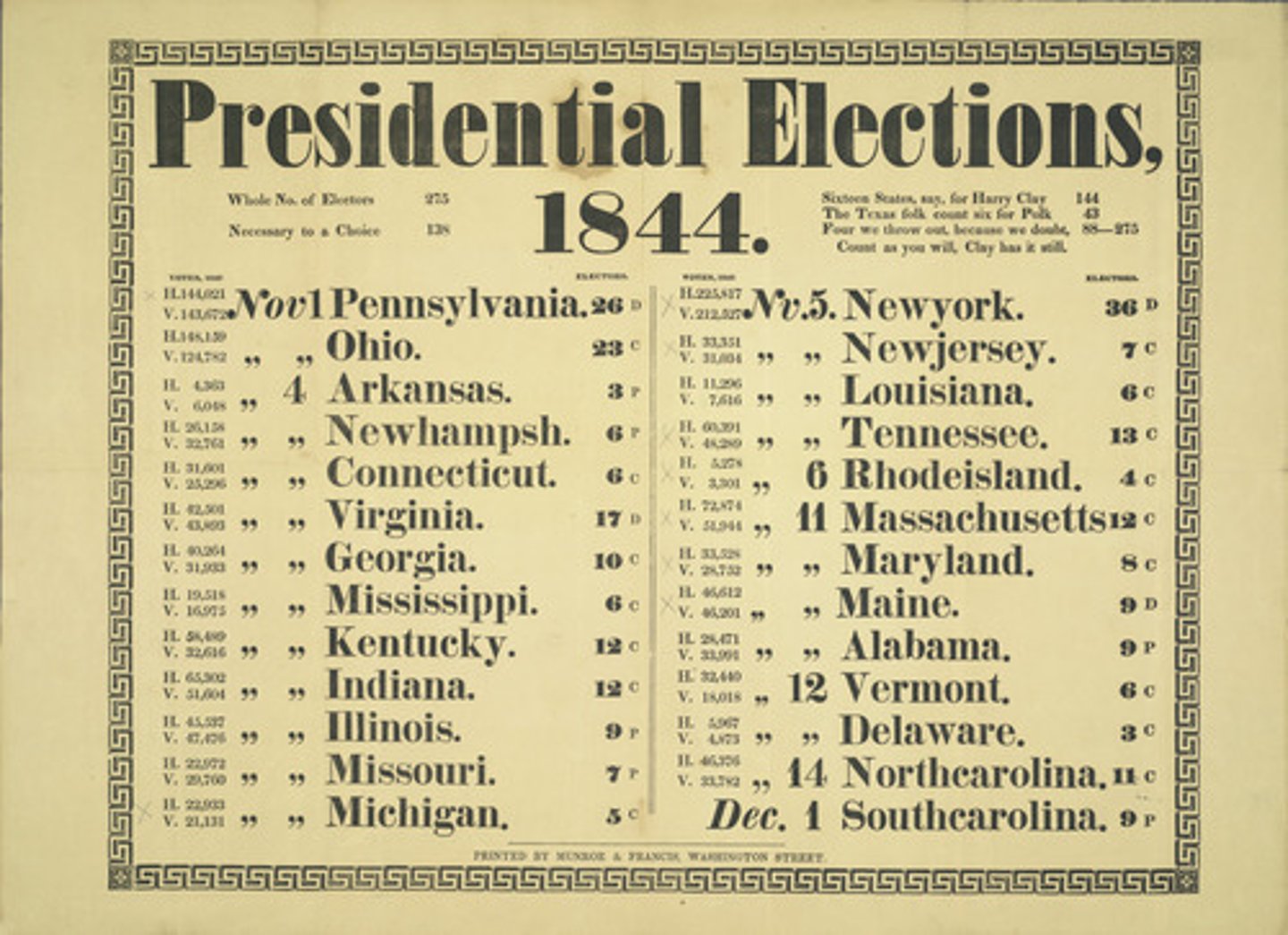
Democratic-Republican Societies
Local political organizations that met and discussed independently how to promote democracy against aristocracy in 1793 and 1794.
Many of the leaders of the organizations went on to support Thomas Jefferson's candidacy and presidency.
They opposed British support and excise taxes on whiskey.
Dorr Rebellion
A short-lived political uprising in Rhode Island from 1841-42 to expand democracy and voting rights in state elections.
Led by its namesake after the state's governor did not introduce the new state constitution which eliminated property qualificatios for voting. The leader and his supporters attempted to arm themselves and begin a rebelliion but were unsuccessful.
However, Rhode Island did ratify a new constitution that expanded voting rights, thus easing tensions.
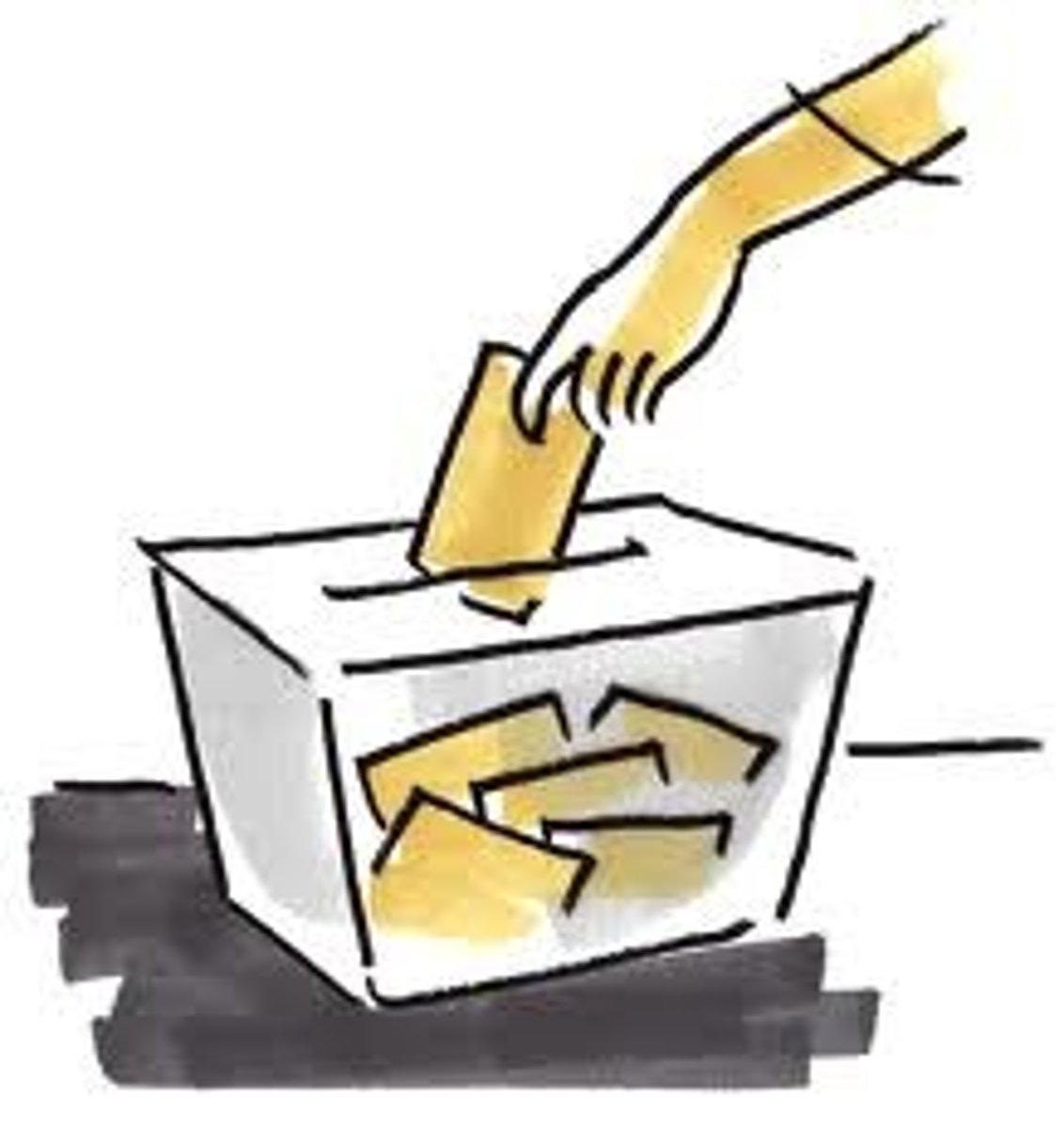
doughface
A slang term referring to northerners that favored southern politics and slavery, often associated with the Democratic Party in the antebellum period.
Coined by John Randolph of Virginia during debates surrounding the Missouri Compromise vote in Congress.

Era of Good Feelings
A brief 8-year period (1816-1824) where there was only one major poltiical party: the Democratic-Republicans.
Often associated with the two-term presidency of James Monroe, this marked the end of the First Party System after the War of 1812.
Major political events during this time of "relative" calm and agreement included the Missouri Compromise, the Panic of 1819, the Adams-Onis Treaty, and the Monroe Doctrine.
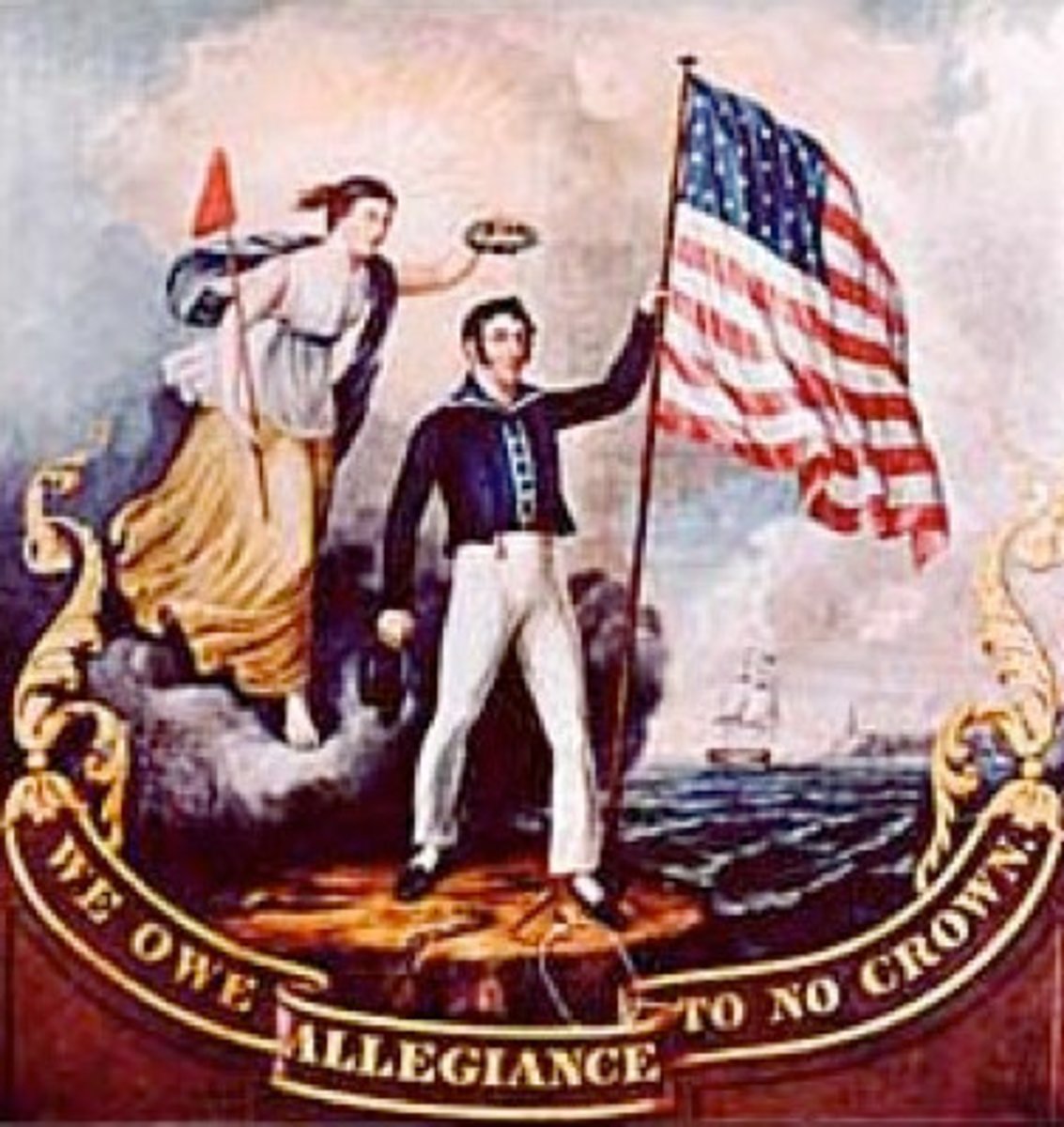
Erie Canal
A man-made waterway that runs east to west between the Hudson River and Lake Erie, connecting the Great Lakes with the Atlantic Ocean, vastly reducing the costs of transporting people and goods across the Appalachian Mountains.
Called "The Nation's First Superhighway," it was the lovechild of Governor DeWitt Clinton and the tolls paid for the system's construction after just one year of operation.
It gave New York City a strong advantage over all other Atlanitc port cities and led cities like Albany, Utica, Syracuse, Rochester, and Buffalo to explode in population.
A stellar example of the political debate over Henry Clay's American System.
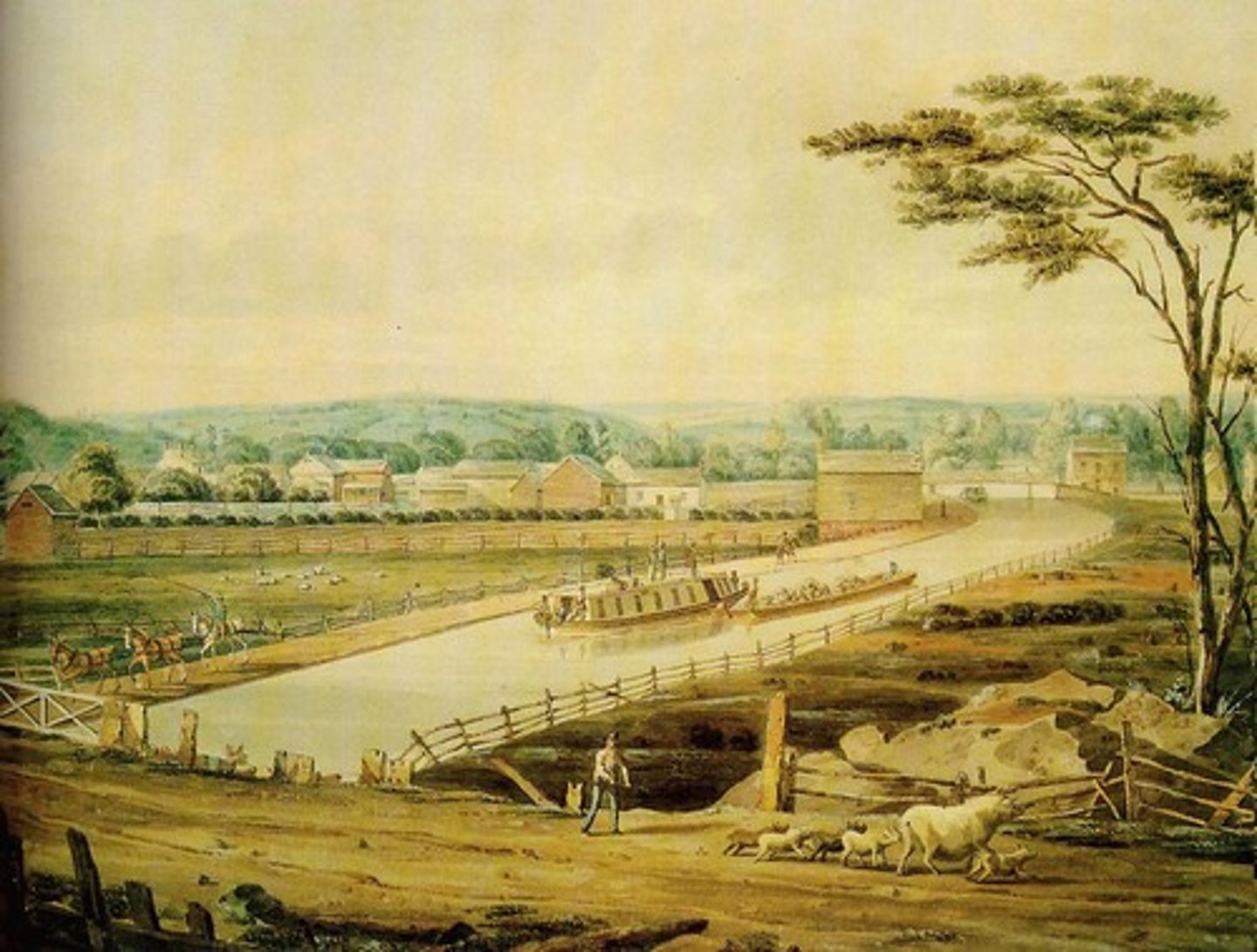
Electoral College
A group of people that are chosen by their respective political party to vote for the president and vice president.
Popular vote in a state now determines which political party sends their electors to vote, but it was previously determined by state legislatures.
It recently has been under target to be abolished or reformed.
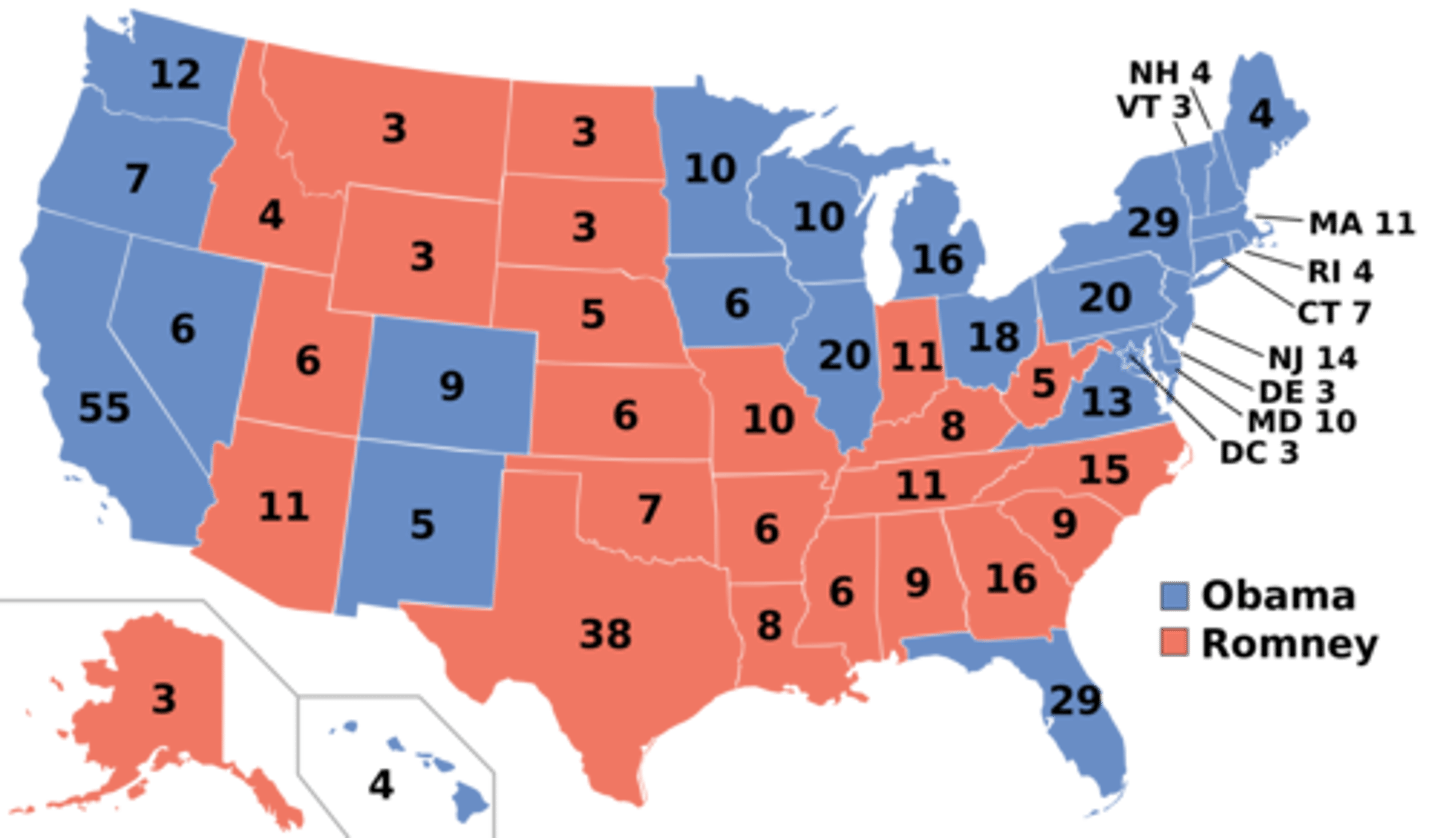
Essex Junto
A faction within the Federalist Party in Massachusetts started during the Constitutional Convention in 1787. Members included Fisher Ames, Theophilus Parsons, and Timothy Pickering among others.
They supported Alexander Hamilton and Federalist ideals against Jeffersonian Democratic-Republicans. They often suggested New England should secede from the Union. They would ultimately support the Hartford Convention's failed efforts to end the War of 1812.

federal debt
The amount of money the country owes its creditors or has borrowed to cover its balances.
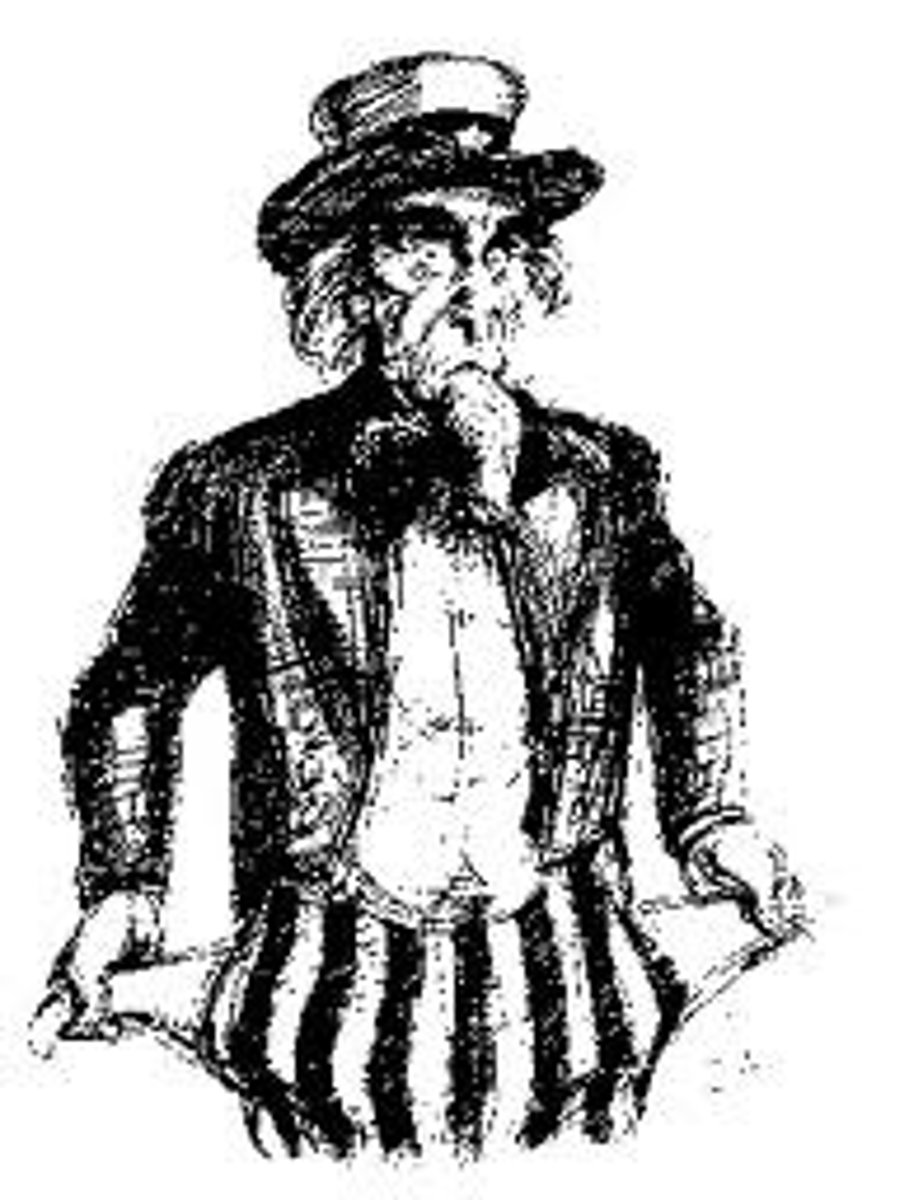
federalism
A type of government that has levels of power separated at the national and state/local level.
It is a key principle in the Constitution that is described in Article IV and the X Amendment of the Bill of Rights.
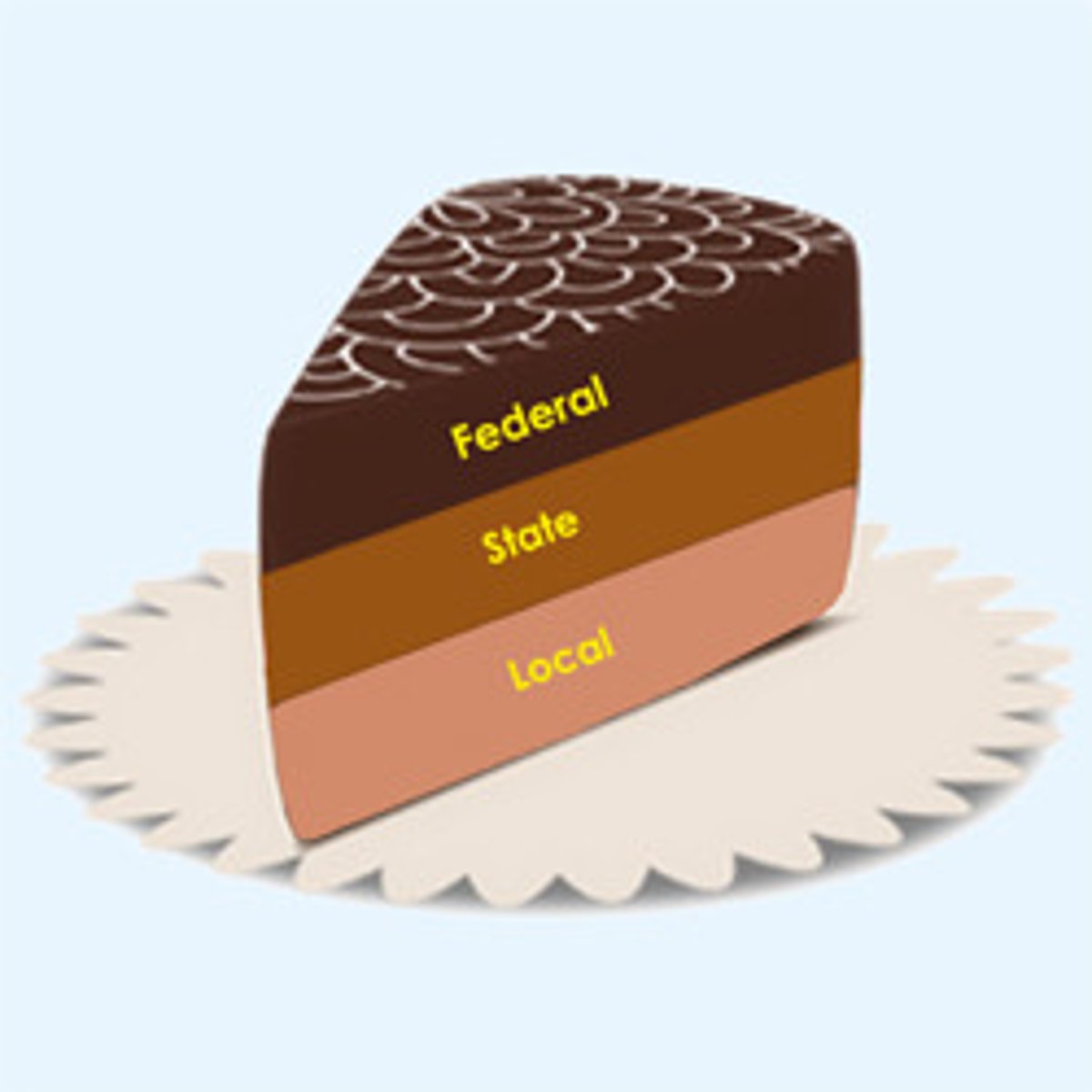
Federalist Party
A political group/party that initially formed to help draft and ratify the U.S. Constitution in 1787.
They supported a strong national government, loose interpretation of the Constitution, and eventually supported an alliance with Britain over France.
Their main leaders were Alexander Hamilton, John Adams, John Jay, Fisher Ames, and Theodore Sedgwick.
They lost support after a gathering called the Hartford Convention during the War of 1812 which objected to America's presence in the war, thus leaving them looking anti-patriotic.
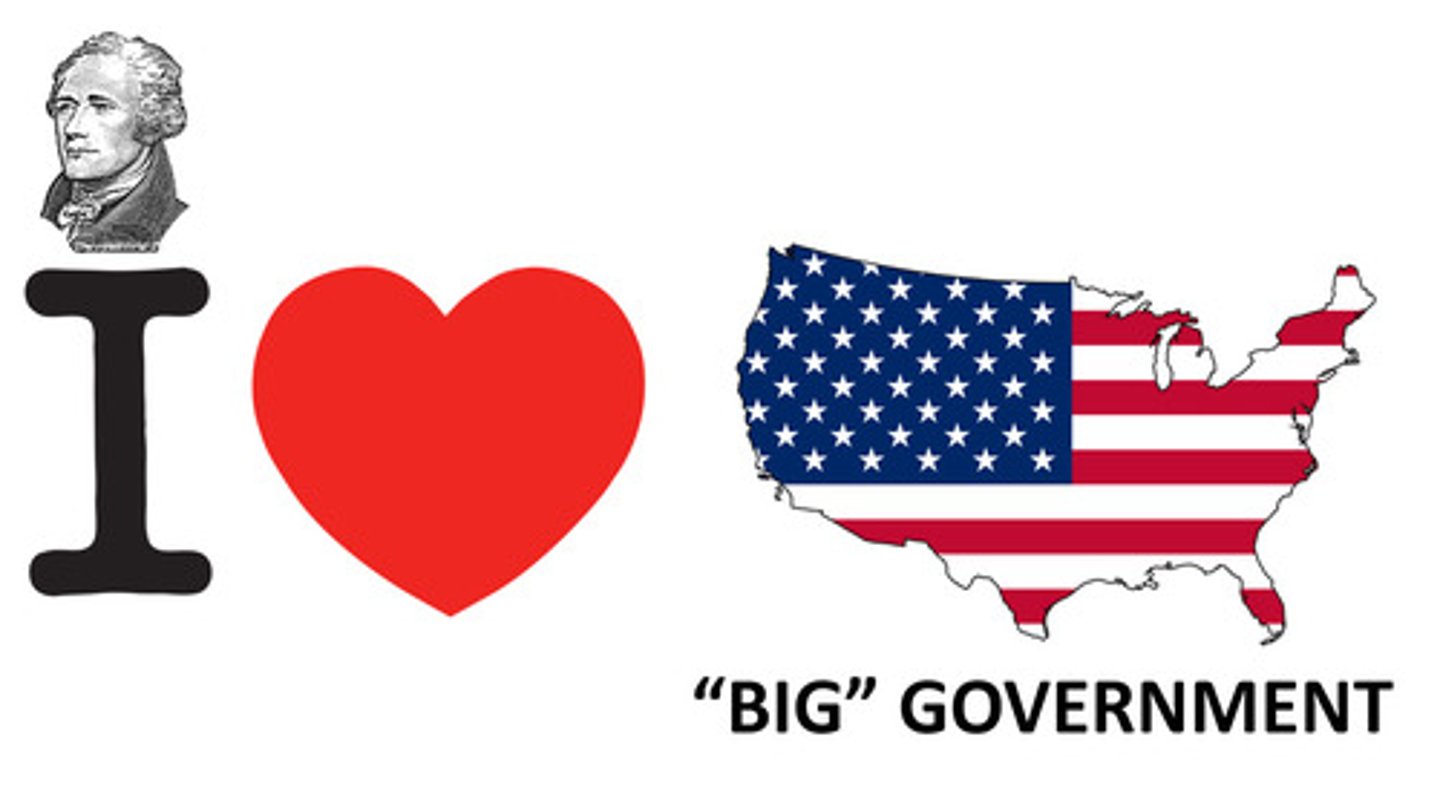
Federalist Paper No. 10
An "anonymous" newspaper letter published in November 1787 in New York that advocates for the ratification of the Constitution.
This essay focuses on the corrosive effects of factions/political parties. Written by James Madison, in it he argues that political parties and their negative effects will be neutralized in America because of its large and diverse and growing population as well as its representative democratic form of government.
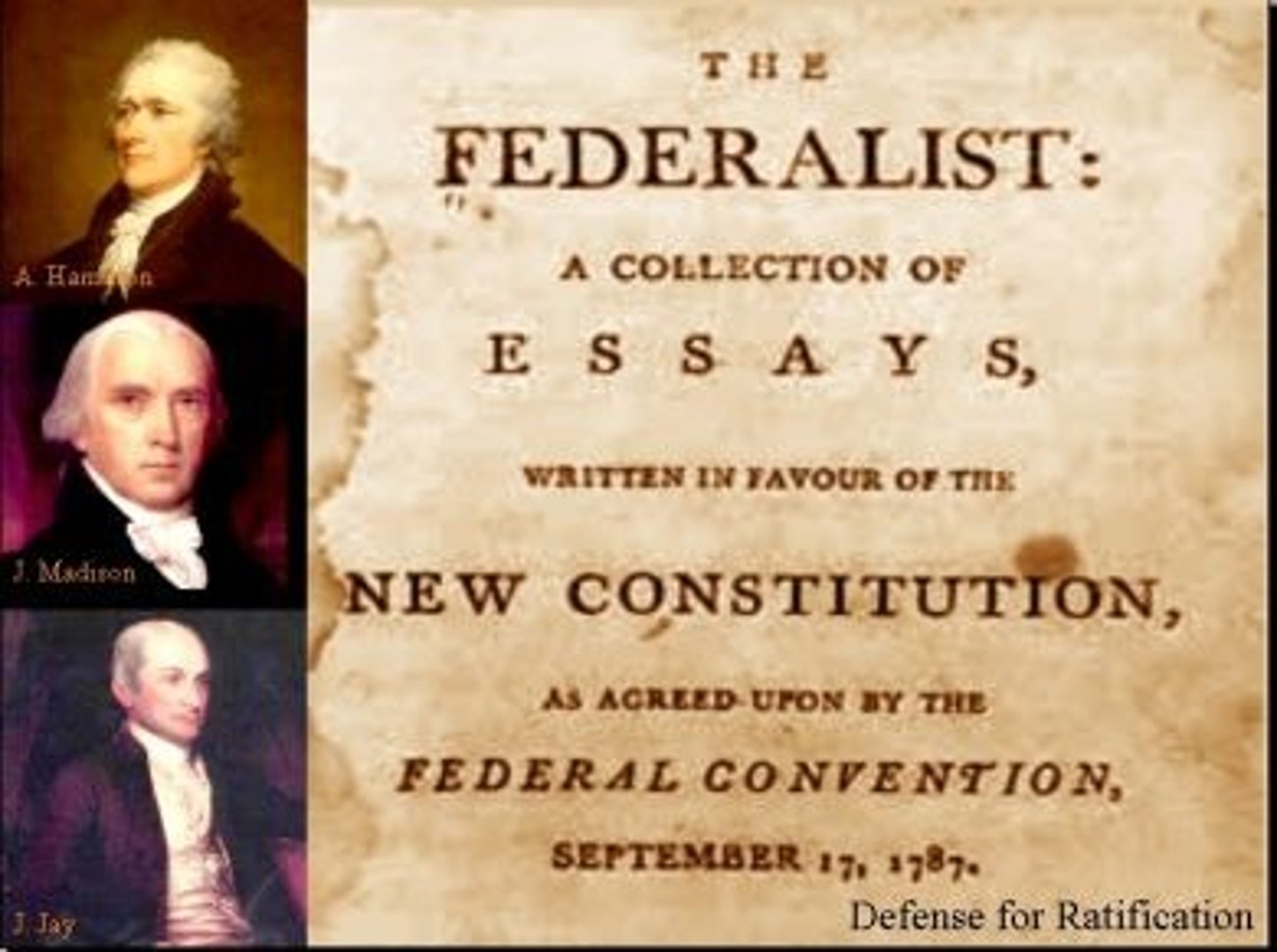
First Bank of the United States
A national bank that was first created in 1791 after a long debate between George Washington's cabinet, specifically Alexander Hamilton and Thomas Jefferson, on the legality of the bank based on the Constitution and congressional power.
The bank was on a 20-year charter and was allowed to lapse before the War of 1812. It was created to stabilize the nation's credit and improve the finances of the new country.
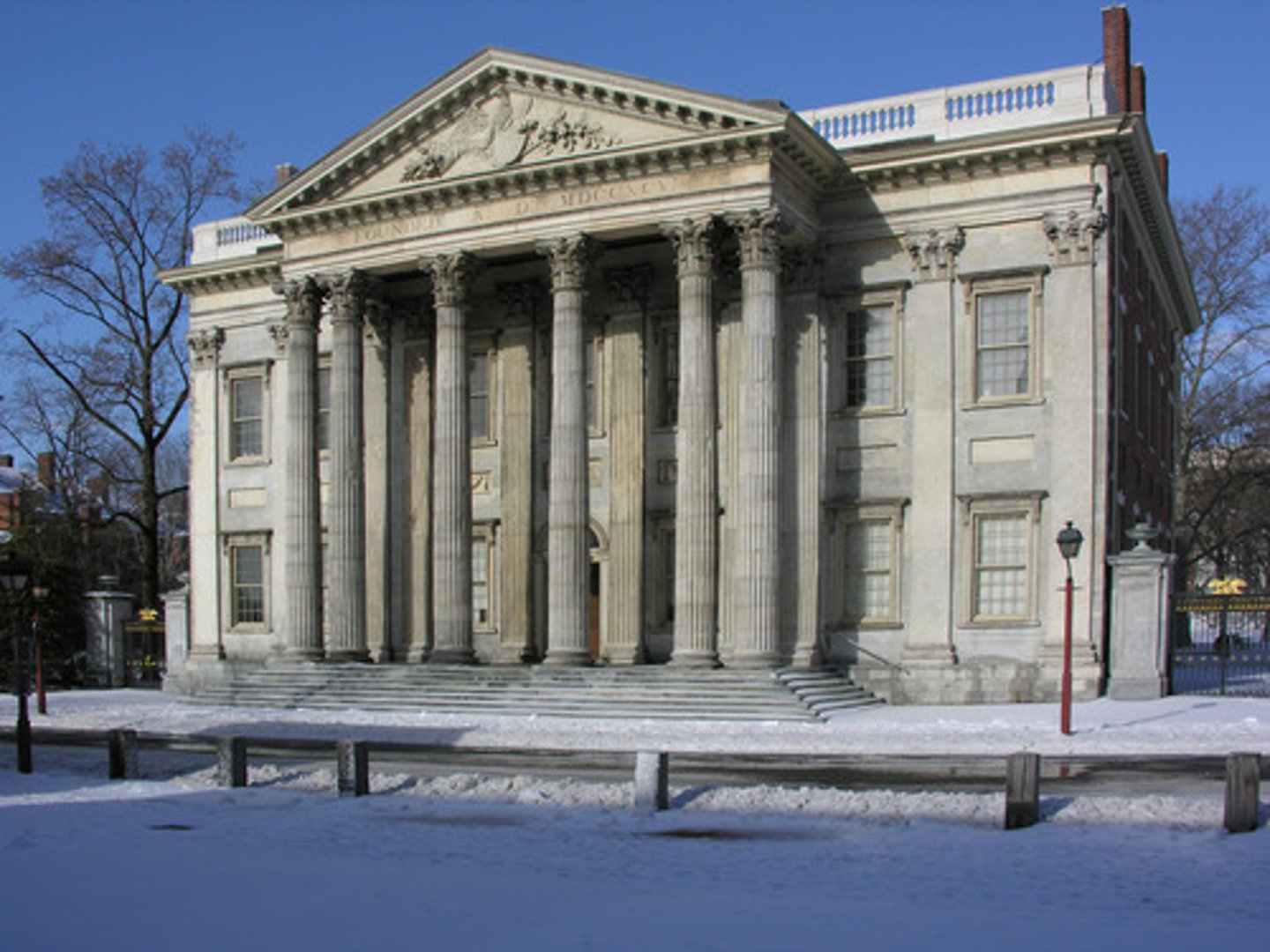
First Party System
The political party system in the United States between 1792 and 1824 with the rivalry between the Federalist Party and the Democratic-Republican Party.
Their political ideology differed in every way in domestic and foreign policies (where they backed the British and French, respectively), and they often competed over control in the federal and state governments.
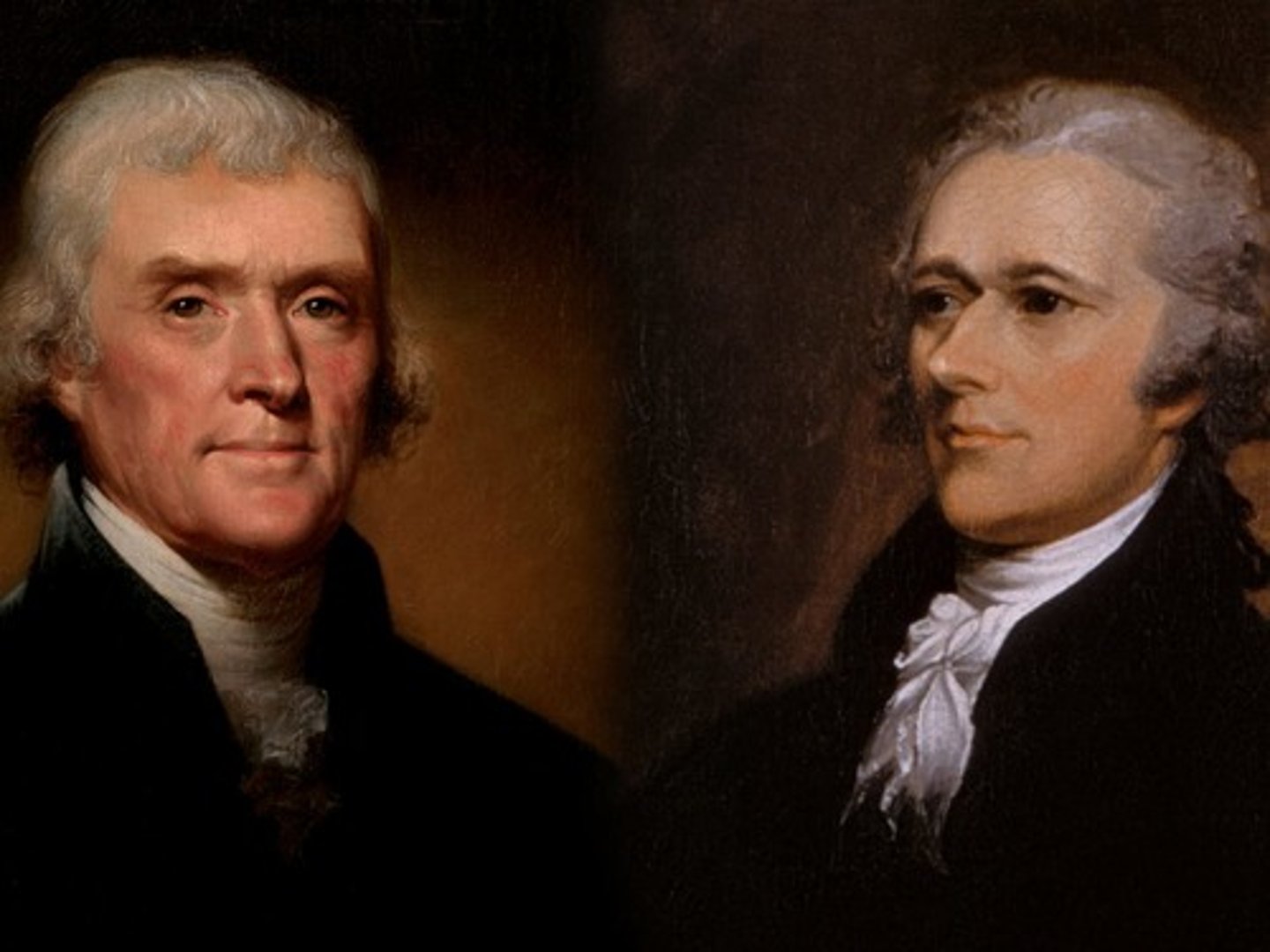
Force Bill
During the Nullification Crisis in 1833, President Andrew Jackson and Congress responded to South Carolina's nullification of the Tariff of 1828 with this law, which allowed the president to use military force to collect tariffs and other taxes.
At the time of its passage, Congress, led by Henry Clay, also lowered the price of the national tariff, which caused South Carolina to reverse its nullification and pay their taxes.
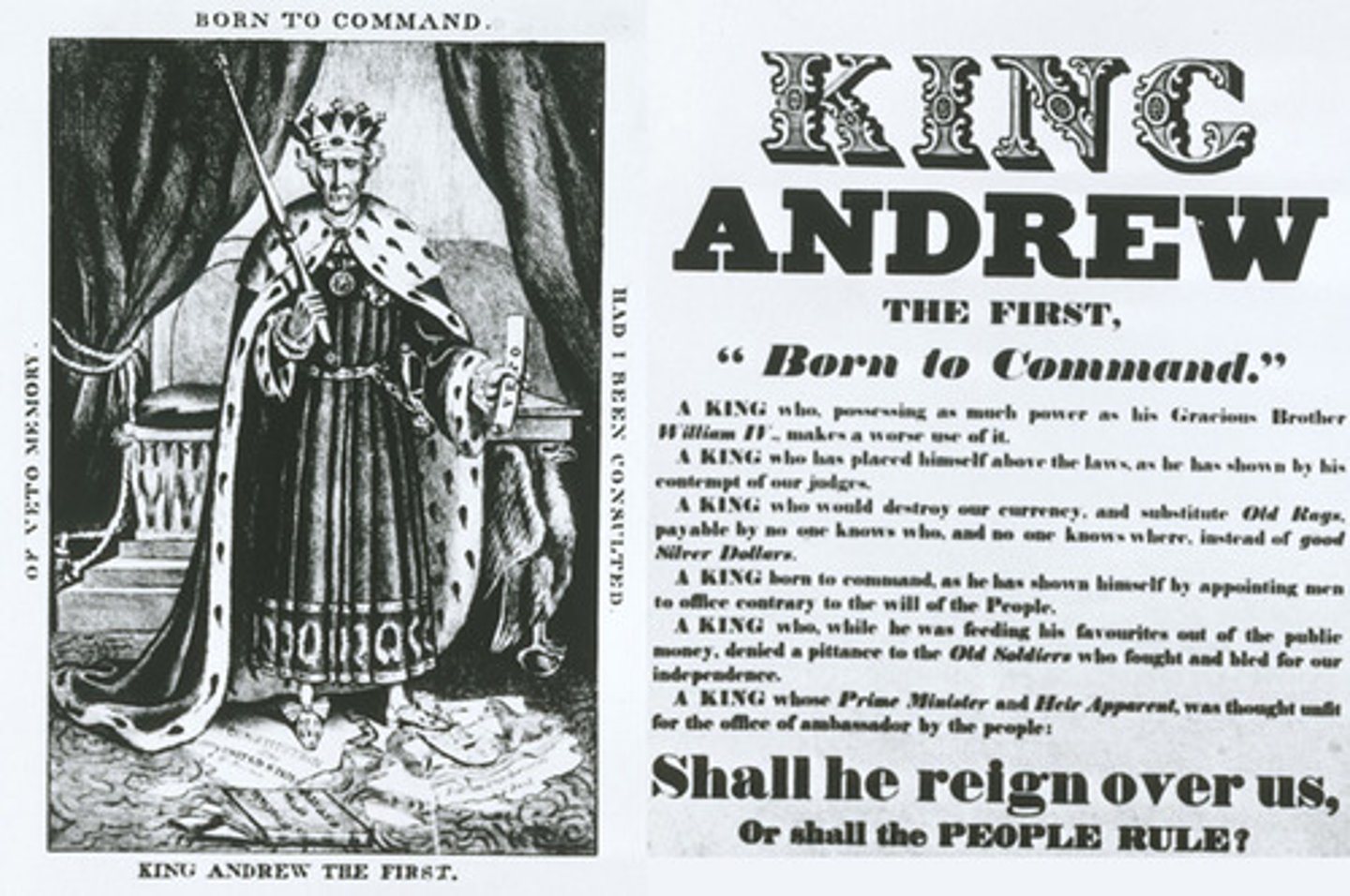
Free Soil Party
A 3rd political party operating from 1848 to 1854.
It opposed the expansion of slavery into the newly acquired territory won from the Mexican-American War.
It combined members from the Conscience Whigs, Liberty Party, and Barnburners. This party in turn would be absorbed the fast-growing Republican Party in 1854.
The party's slogan was: "free soil, free speech, free labor, and free men." Contrary to its name, it was not inherently abolitionist, the party wanted to just stop slavery from spreading to other parts of the nation.
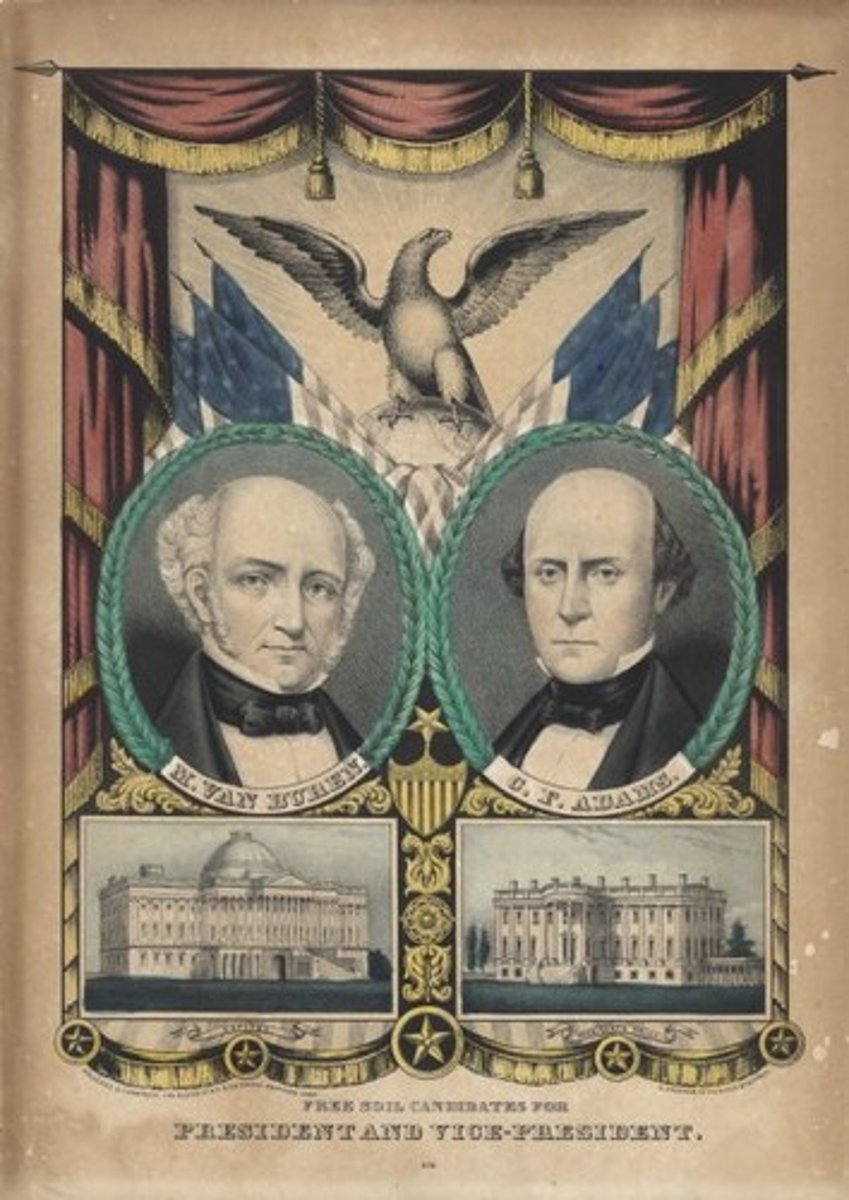
French Revolution
A European revolution against the monarchy, aristocracy, and clergy that began in 1789 with the common people wanting political, economic, and social change.
It began with historic reforms of the nation's constitution that then created a republic, but suffered through a violent Reign of Terror and over 20-plus years of war with other European nations.
It ended with a military coup led by Napoleon Bonaparte in 1799.
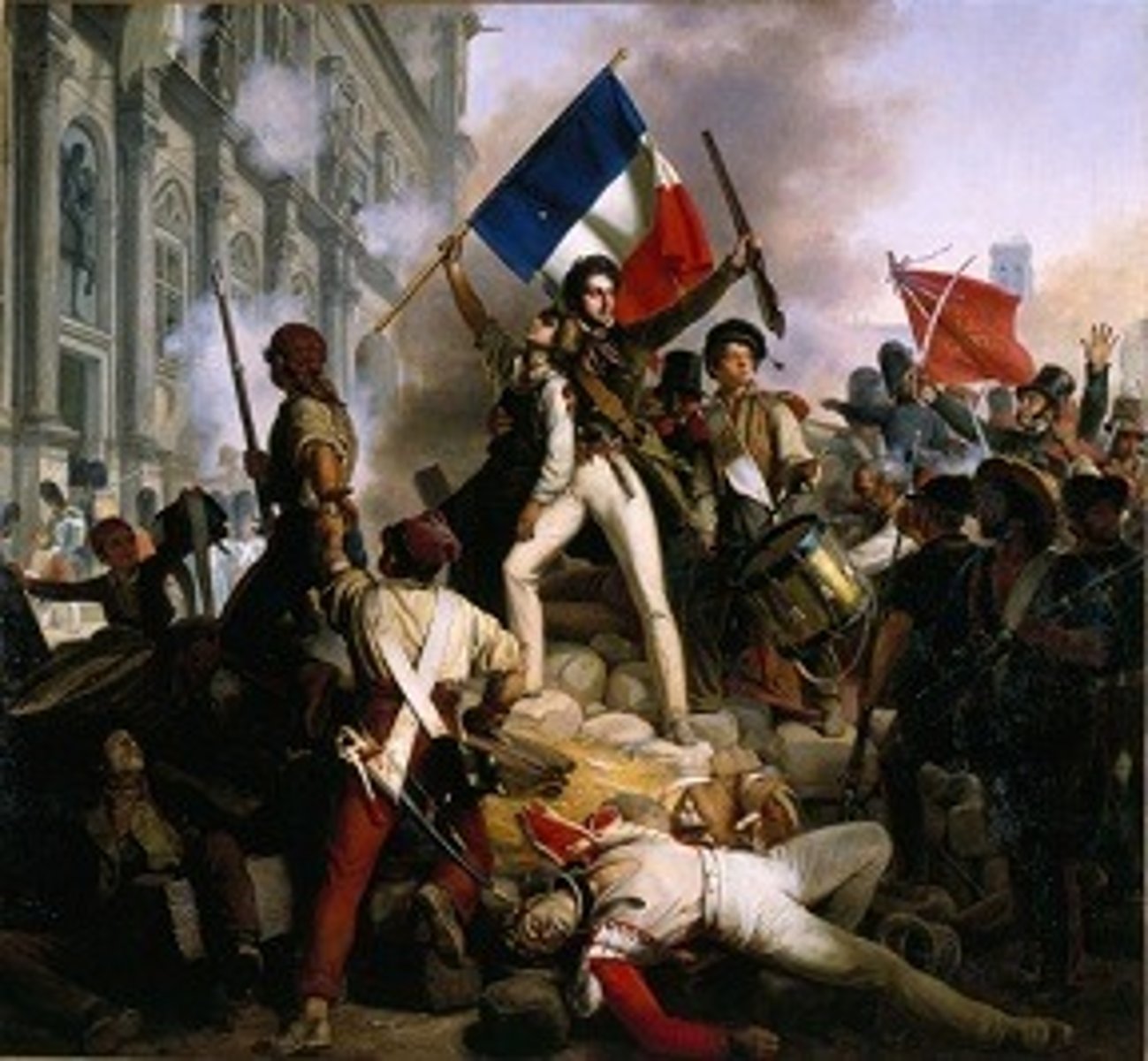
Fries' Rebellion
A rebellion in Pennsylvania between 1799 and 1800 led by Pennsylvania Dutch (aka German) farmers against tax collectors.
It is similar to the other tax-related uprisings of the era including Shays' Rebellion and the Whiskey Rebellion.
Rebelling against a direct tax on property (including houses, land, and enslaved people). Federalists demanded the death penalty for treason against the tax dodgers. President John Adams would issue a general amnesty order against the leaders of the uprising.
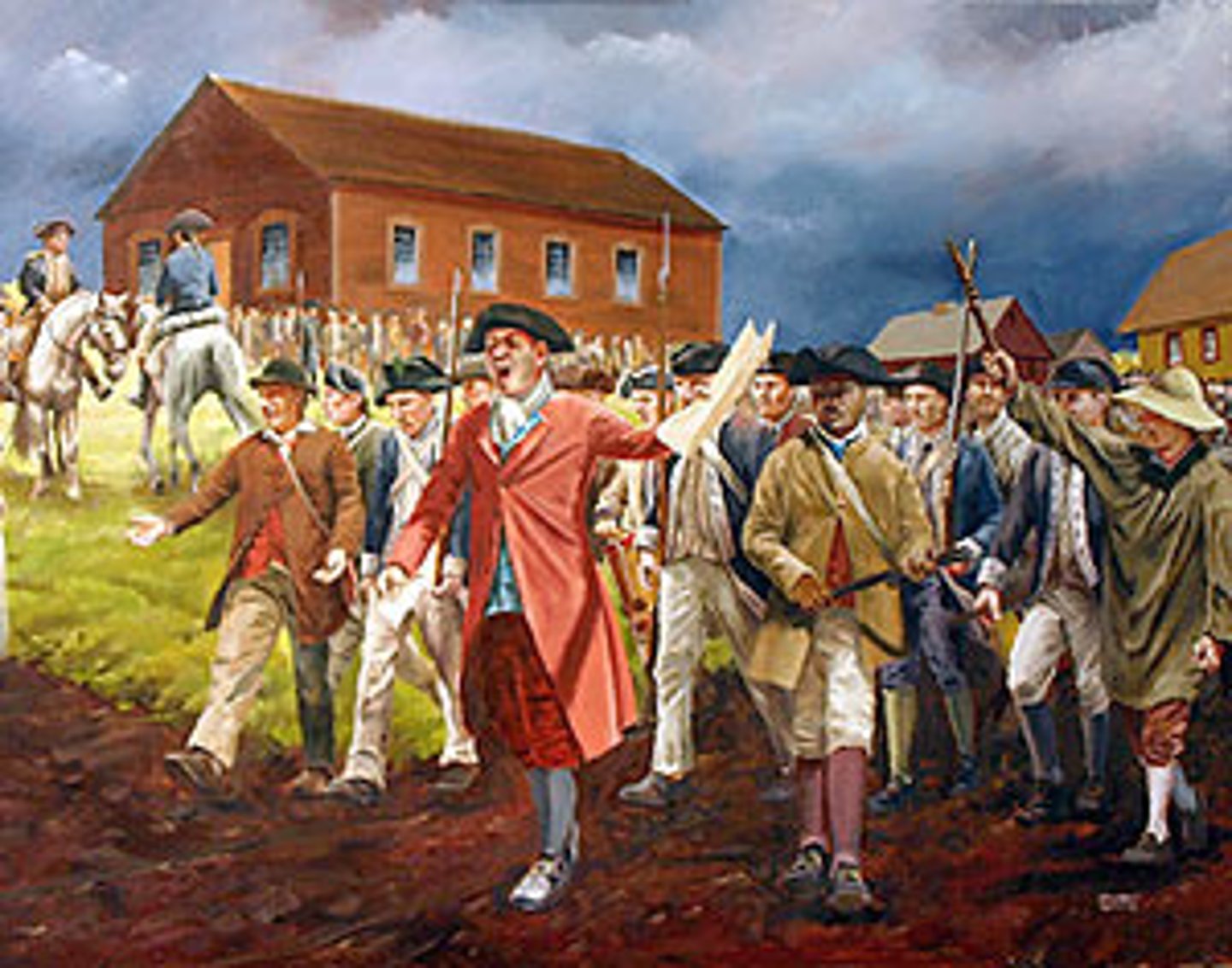
Gabriel's Rebellion
A slave rebellion in Virginia in 1800 that was halted before it began.
An enslaved blacksmith planned the event alongside over 20 followers; they were all captured and hanged.
This led Virginia and the wider slave-based South to pass more restrictive laws on the behavior and actions of free and enslaved Black people.
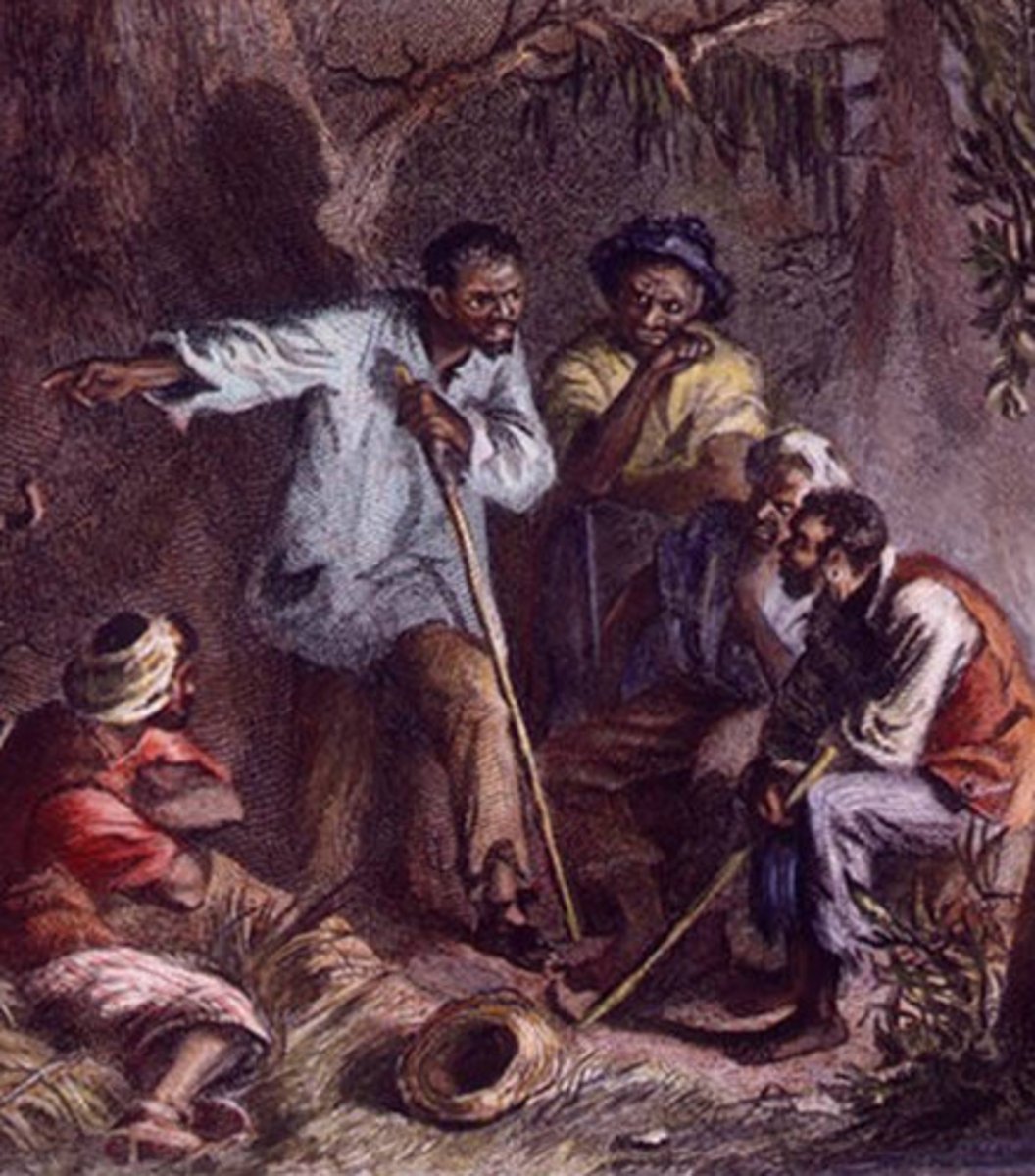
gag rule
Rules made in Congress for the explicit prohibition of openly discussing slavery on the floor of Congress.
In effect from 1836 to 1844, this limited the discussion and petitions on slavery in order to limit conflict and was fought against and defeated by members of Congress, most notably former president John Quincy Adams.

Gazette of the United States
A newspaper that started publication in 1789 in New York City, but soon moved with the capital to Philadelphia. Founded by John Fenno, it was a pro-Federalist Party newspaper that often praised George Washington and John Adams and their administrations and policies.
Its influence as a partisan paper led to the rise of pro-Democratic-Republican papers such as National Gazette and the Philadelphia Aurora.

General Survey Act
A law passed in 1824 authorizing the president to have studies of land and topography produced in order to build more internal improvements and infrastructure such as roads and canals.
Military and commercial transportation improvements were the main reason it was passed along with the ruling from Gibbons v. Ogden which established federal authortiy over interstate commerce.

German Republican Society
A faction of the Democratic-Republican Societies that emerged in the 1790s in the national capital of Philadelphia.
Led by Peter Muhlenberg and Michael Lieb, they would organize Pennsylvania Dutch (aka Germans) population politically and criticize the Federalist Party administration and protect what they saw as republican virtues.
Many of the society's letters were published in Democratic-Republican-leaning newspapers.

Graves-Cilley Duel
A duel between two congressmen in 1838 over the Panic of 1837.
The Whig congressman of Kentucky challenged the Democratic congressman from Maine to a duel after the latter spoke on the House floor attacking the New York Courier and Enquirer newspaper and James Watson Webb, the editor, for publishing articles against President Andrew Jackson and the veto of the Second Bank of the United States.
The congressman asked the other to represent Webb, the editor, to a duel. The Whig congressman challenged the Democrat on Webb's behalf. The Democrat was shot on the third round of the duel and died minutes later.
Griswold and Lyon Fight
On February 15, 1798, a Federalist congressman from Connecticut approached and attacked a Democratic-Republican congressman from Vermont over the continual insults and verbal attacks between the two men that were started after President John Adams began his Quasi-War with France.
One man hit his opponent with a walking stick and the other responded with fireplace tongs.
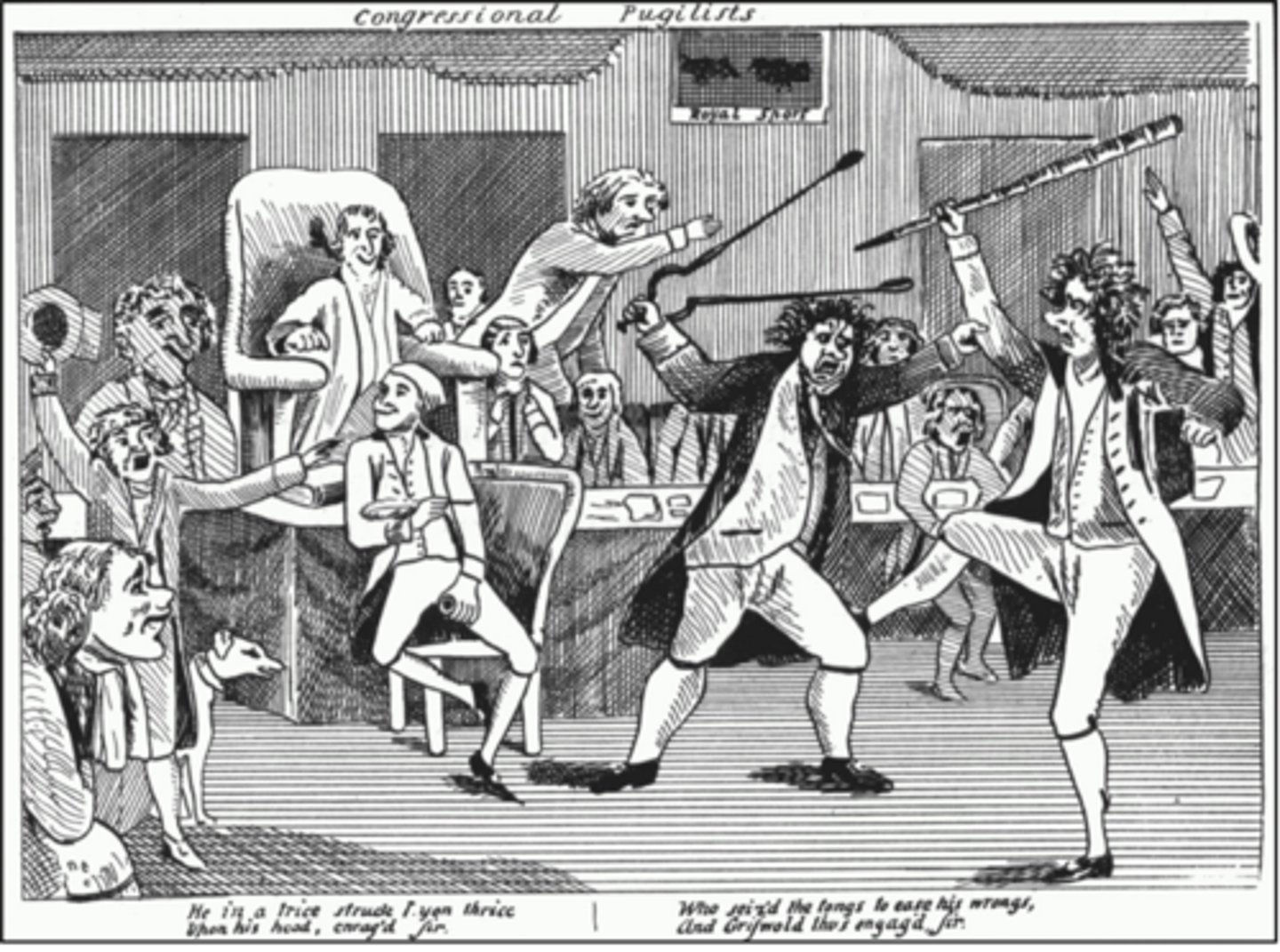
Hammett Letter
In April 1844, Martin Van Buren wrote a letter to this Democratic representative from Mississippi, discussing his opinions and opposition to the annexation of Texas. Van Buren believed it would lead to war with Mexico.
The letter was published and led to him losing the nomination at the Democratic National Convention in 1844 to James K. Polk.

Hartford Convention
A series of meetings from December 1814 to January 1815 of Federalists Party leaders in Connecticut.
The meetings were held at the end of the War of 1812 as the Treaty of Ghent was being negotiated and signed.
The meeting discussed grievances with the James Madison administration, the Democratic-Republican Party, policy, and war effort and changes to the Constitution.
The convention made the Federalist Party seem unpatriotic and anti-American and their list of demands and the threat of New England seceeding led to the dissolution of the Federalists.
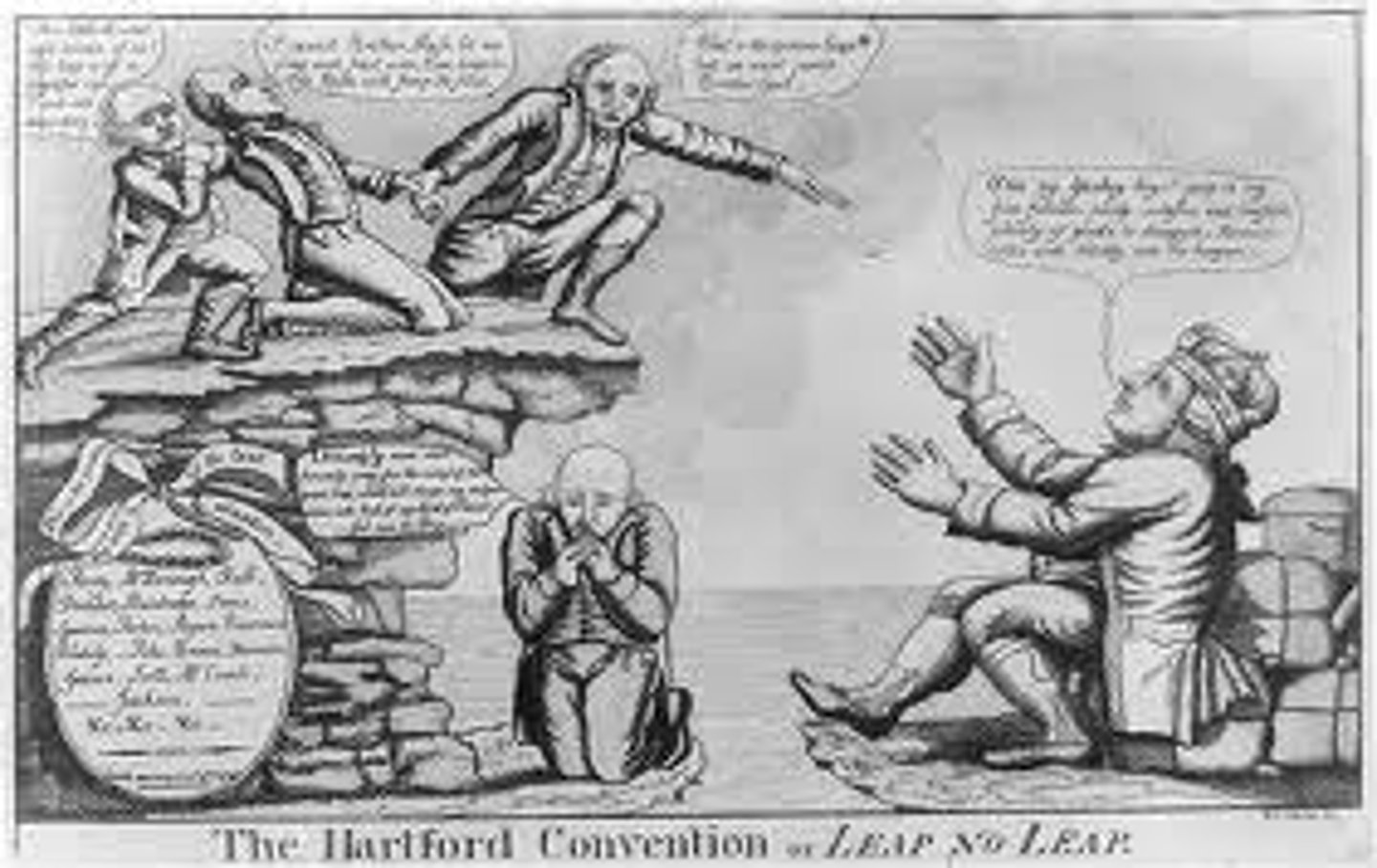
Henry Papers/Henry-Craig Plot
A written correspondence between adventurer John Henry and Governor General of Canada, Sir James Craig in 1809.
The letters documented Henry's efforts to mine interest in having the New England, Federalists-controlled states secede the Union and rejoin the British Empire and Canada.
The letters falsely displayed the Federalists as overly sympathetic to the British Empire. President Madison bought the letters for $50,000 and added to division amongst Federalists and Democratic-Republicans.

High Federalists
A faction within the Federalist Party that solely supported Alexander Hamilton's policies and ideas and opposed John Adams's policies such as Timothy Pickering and James McHenry.
They eventually split the Federalist Party with the onset of Adams's cabinet purge, helping Thomas Jefferson win the Election fo 1800.
Independent Treasury
A system for managing the money supply within the U.S. federal government. free of the national banking and financial systems.
The idea was purposed durign President Martin Van Buren's term in order to control inflation and restrict the printing of paper money.
It would be eliminated by the Whig Party in the next term, but would eventually return as the primary option for controlling federal funds until the creation of the Federal Reserve in 1913. The U.S. Treasury Department would serve an ever-growing list of functions of a central bank.
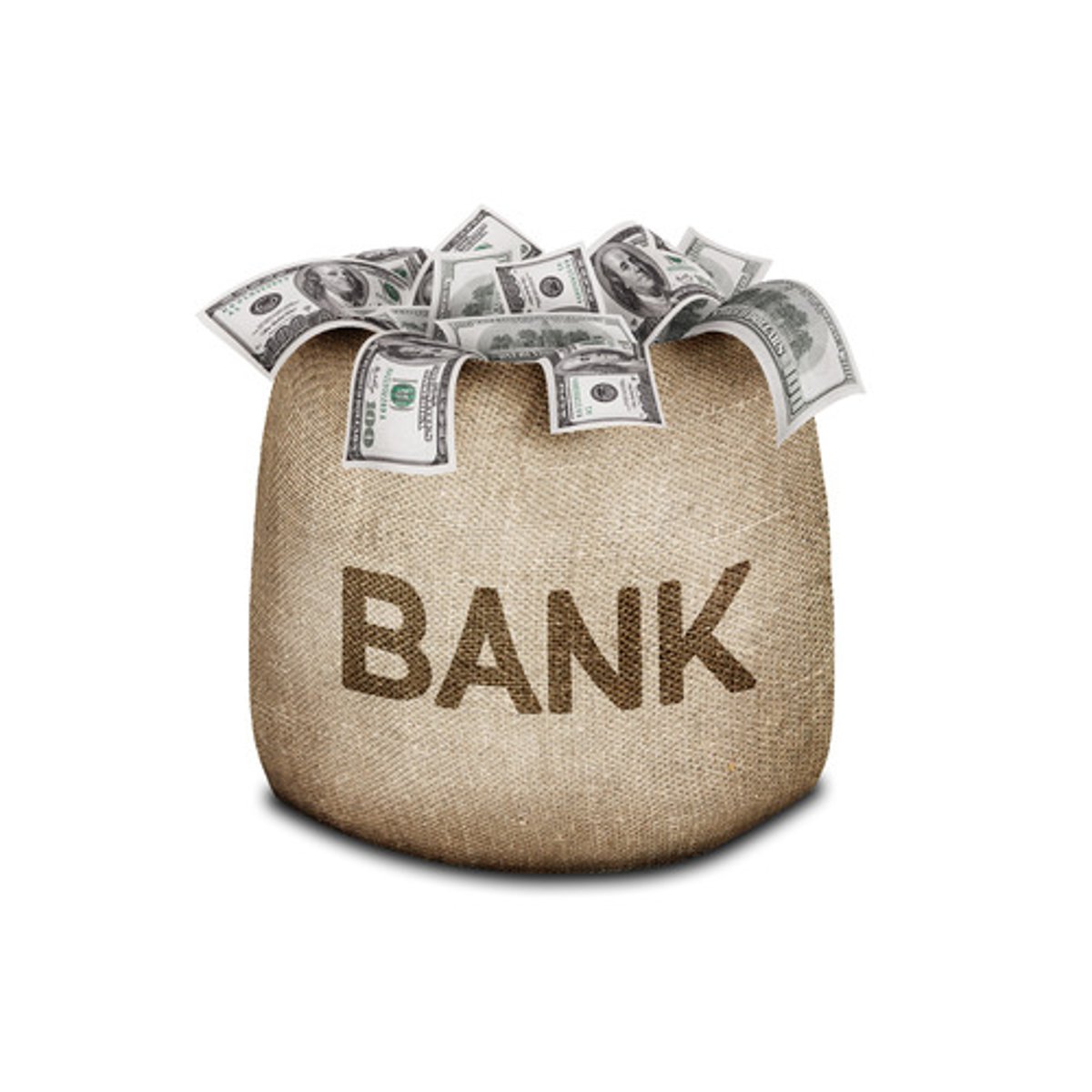
Independent Treasury Act (1840)
A law passed by Congress in 1840 to manage the money supply of the federal government.
It lasted one year before it was repealed.
In 1845, President James K. Polk pushed for its reinstatement and was passed again in 1846. It would remain the chief system of monetary policy until the creation of the Federal Reserve in 1913.
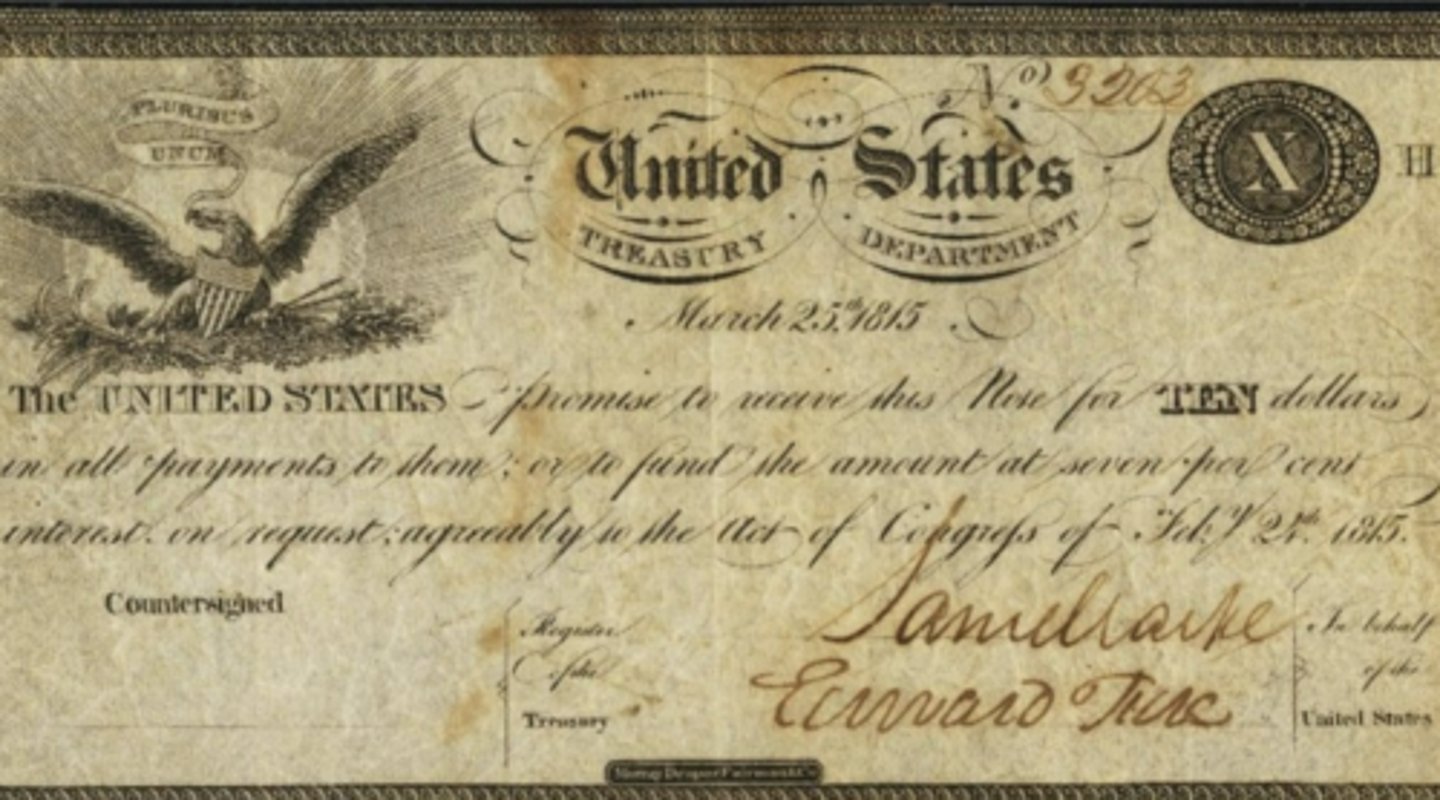
Indian Removal Act/Process
A congressional law passed in 1830 during President Jackson's first term.
It forcefully relocated the Native American tribes east of the Mississippi River to its western shores.
The law was challenged in the courts and overturned by the Cherokee Nation and a ruling by Chief Justice John Marshall.
President Jackson famously ignored the ruling and initiated the policy anyway with the infamous and deadly "Trail of Tears" in 1837.
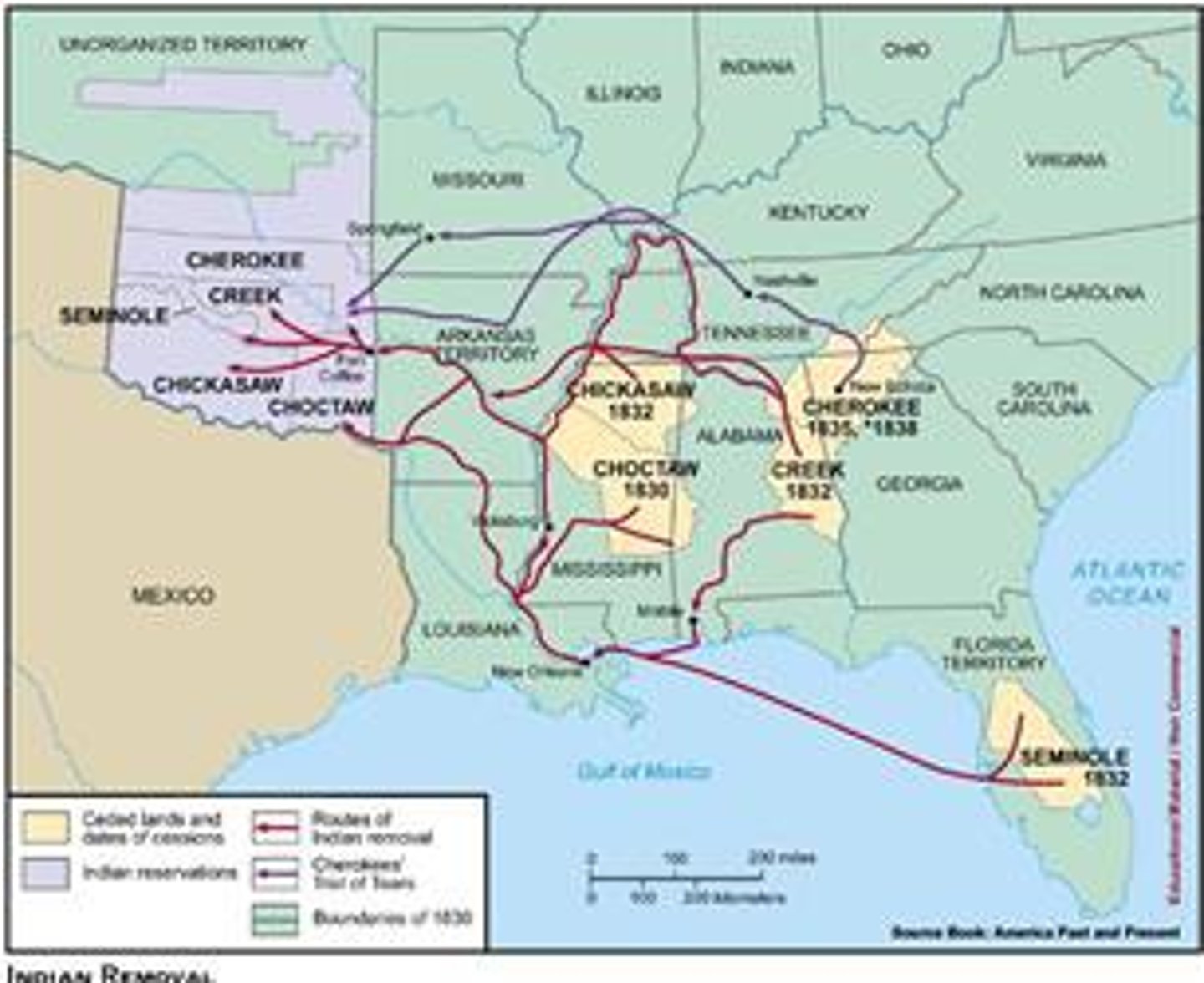
Inquiry into the Principles and Policy of the Government of the United States by John Taylor
An essay published by John Taylor, a Democratic-Republican from Virginia, that described the principles and policies of government in 1814 as a rebuttal to John Adams's "Defense of the Constitution."
The essays naturally advocated for strong states' rights and opposed centralization of power in the federal government.
internal improvements
A general term used to describe improvements in infrastructure including roads, turnpikes, and canals.
They were typically supported by nationalists within the Federalist and Whig parties that wanted them funded, partially or entirely, by the federal government as part of Henry Clay's American System.

Jackson assassination attempt by Richard Lawrence
In 1835, this British-American house painter attempted to assassinate the 7th President of the United States in Washington, D.C., during a funeral in the U.S. Capitol.
The would-be assassin fired two shots from two different pistols, both misfiring, before the president used his cane to beat him.
The assassin is the first person to attempt to murder a president and was found not guilty by reason for insanity. He spent the remainder of his life in insane asylums.
Jackson-Benton Duel
In 1813, Andrew Jackson fought in an event that turned into a brawl with Thomas Benton in Nashville, Tennessee, during the War of 1812.
Jackson was shot in the arm and the bullet remained there until his presidency.
The two friends and allies in the war until Benton's brother was pulled into a duel and was wounded while Jackson did nothing to help.
After the fight between Benton and Jackson, the two would become cordial again.
Jacksonian Democracy
A 19th-century political movement in the United States that supported to expand suffrage to include all white men over the age of 21 without property restrictions or other qualifications.
This movement was centered around the popularity of the 7th President of the United States and his role as a hero for the common man and the growth of the Democratic Party as a whole.
The movement believed in expanded suffrage, the spoils system, and support for the common white man, not elites, and focus on a smaller federal government that generally supported states' rights.
Henry Clay and John Quincy Adams were in opposition to this movement and created the Whig Party to challenge it in the 2nd Party System.
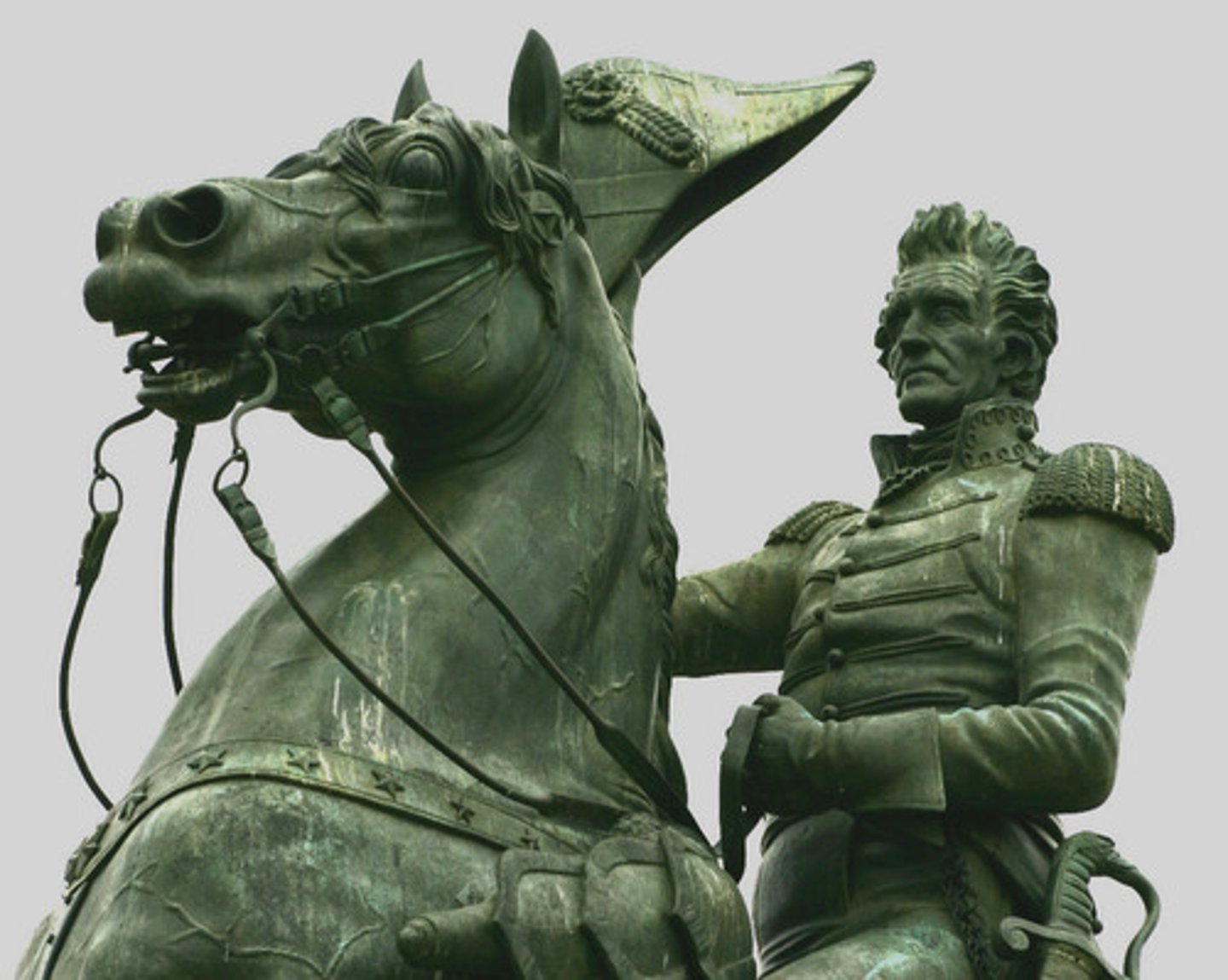
Jay's Treaty
A 1794 treaty between the United States and Great Britain that averted war, resolved issues with the earlier Treaty of Paris (1783), and facilitated 10 years of peaceful trade between Americans and the British.
Designed by Alexander Hamilton, negotiated by John Jay, and supported by President George Washington, this treaty would enrage Democratic-Republicans as being too pro-British and did nothing to address the ongoing onslaught of impressment of American sailors.
Democratic-Republicans feared that closer American economic and political ties with Britain would strengthen the Federalist Party, promote aristocracy, and undercut republicanism.
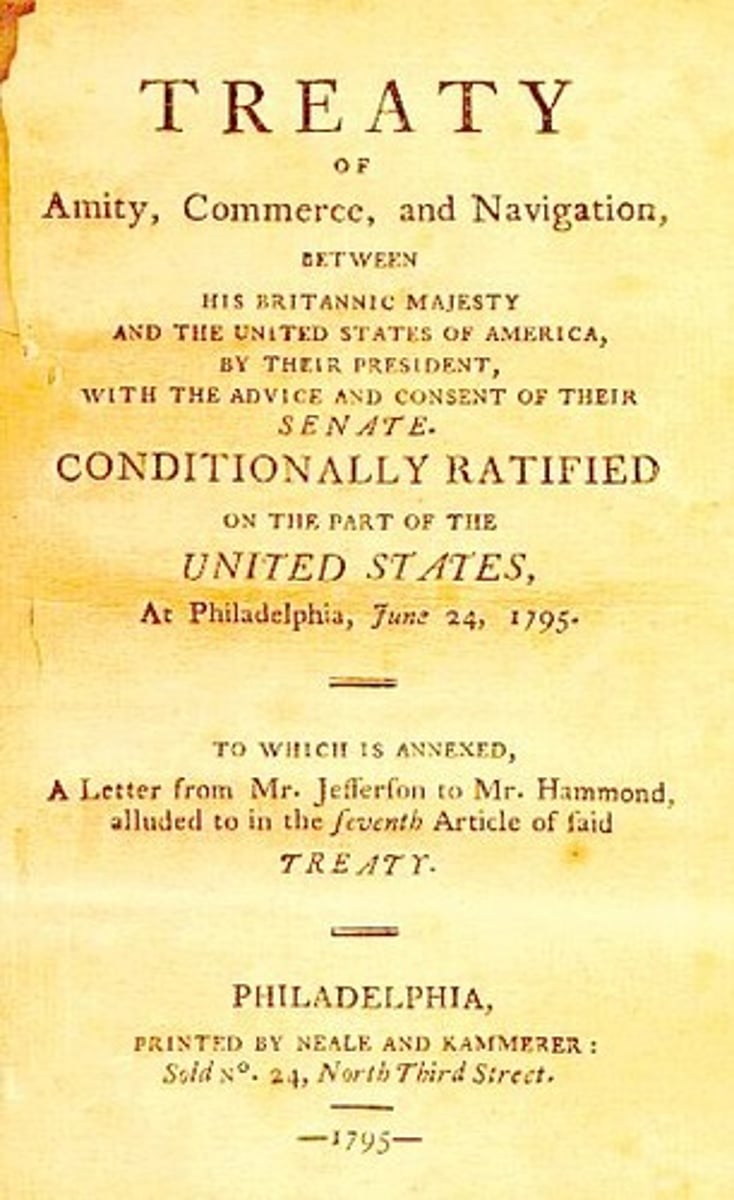
Jeffersonian Republicans
The other name for the political party established and led by Thomas Jefferson and James Madison that began in the early 1790s to oppose the Federalist Party.
Often referred to as Democratic-Republicans by historians, they would come to dominate national politics in the early 1800s.
The party supported individual liberty, republicanism, decentralization, strict interpretation of the Constitution, free trade, states' rights, and France.
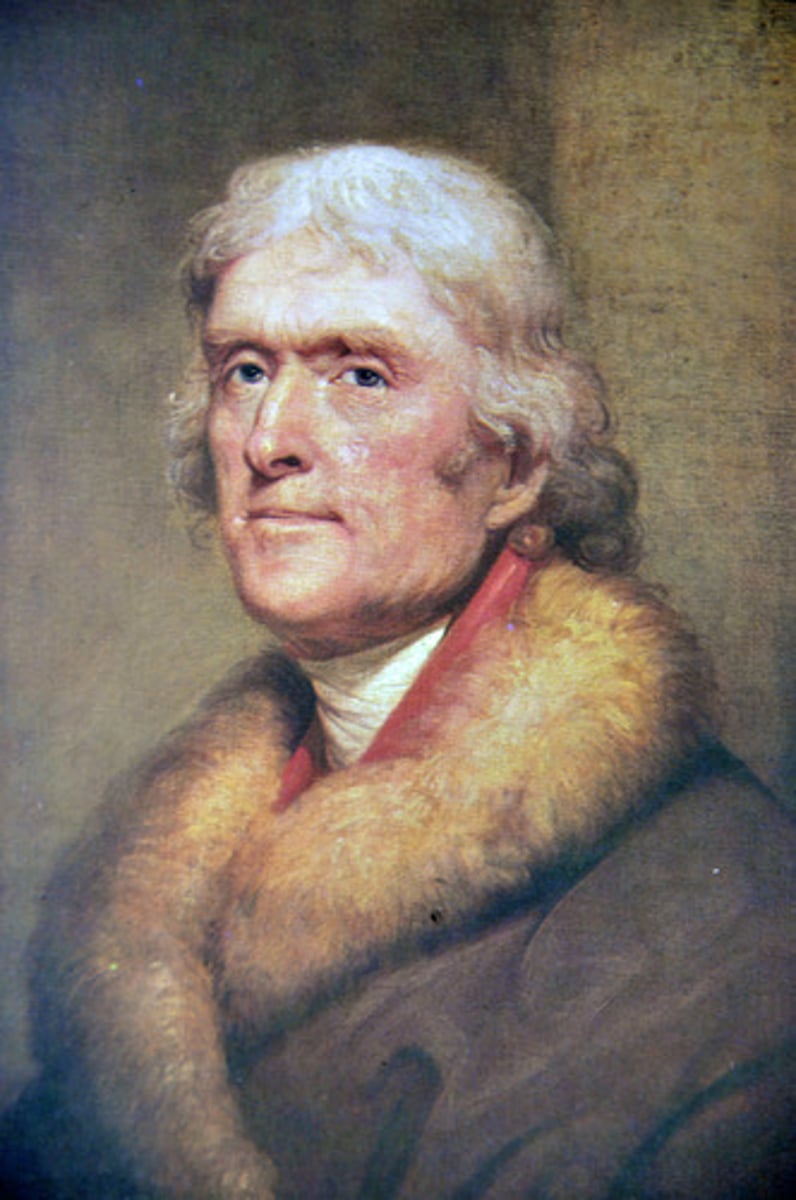
Judiciary Act of 1801
This law, signed by a Federalist-controlled Congress and President John Adams during the last weeks of his presidency, expanded the federal judiciary of the United States.
It recognized the federal judiciary and created the first circuit courts. It allowed Adams to appoint Federalist judges to these new positions in order to continue promoting Federalist ideology.
The judges were known as "midnight judges" and their appointments led to the famous Marbury v. Madison case in 1803, which established judicial review and strengthened the power of the Supreme Court under Chief Justice John Marshall.
Kentucky Resolution
The resolution passed in the state legislature in 1799 to oppose and nullify the Alien and Sedition Acts passed by the Adams administration.
The resolution was primarily written (anonymously) by Thomas Jefferson and established the ability for a state to nullify a federal law.
Specifically, it argued that the Constitution should be strictly interpreted and each individual state has the power to determine if a law is unconstitutional and nullify it if necessary.
Would form the political ideological basis for John C. Calhoun's nullification theories and secession.
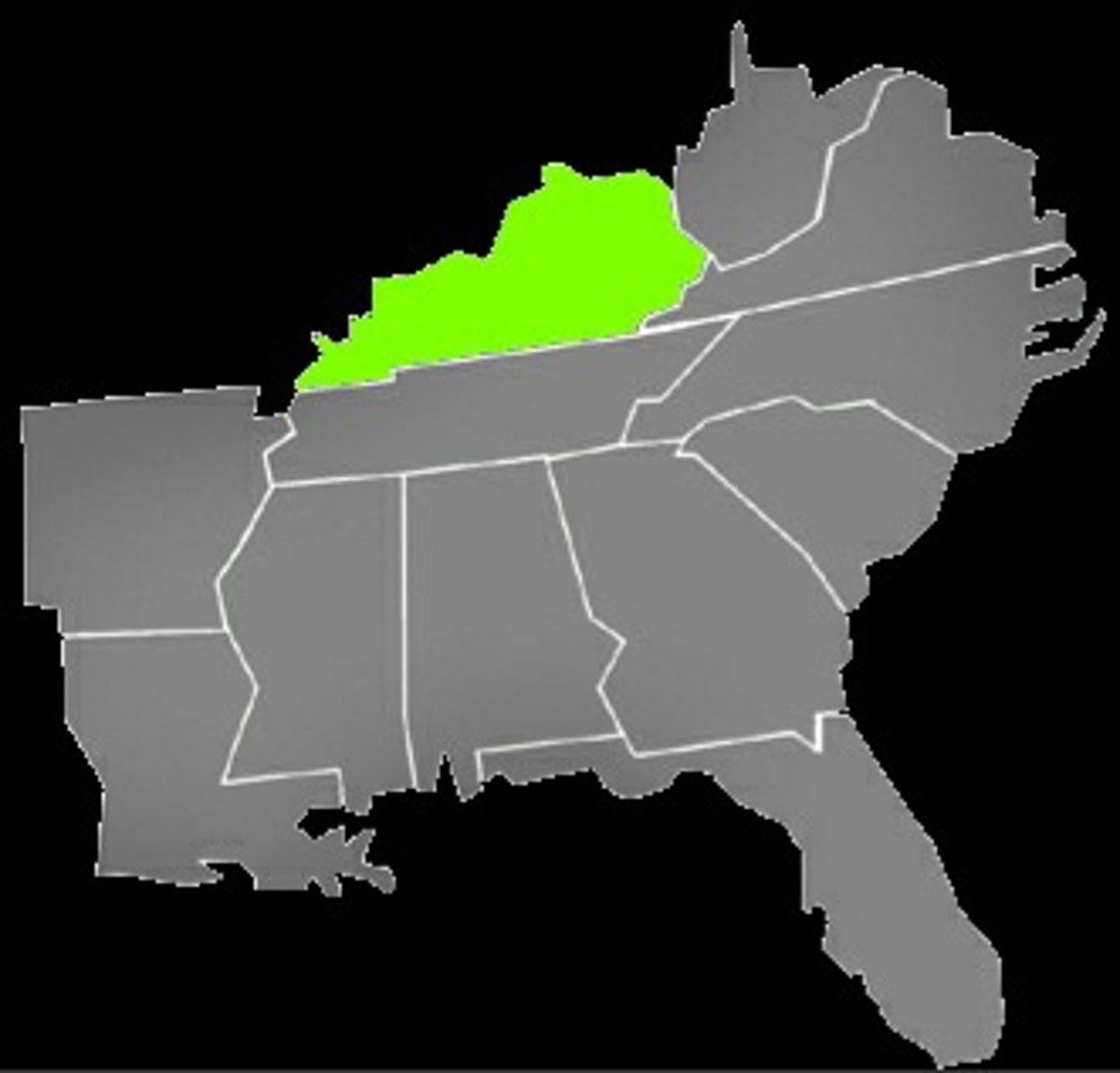
Know-Nothing Party
A nativist political movement in the United States in the 1840s and 1850s. Officially known as the Native American Party and afterwards simply as the American Party, members of this anti-immigrant political party were required to say "I know nothing" whenever they were asked specifics about the political party by outsiders.
They nominated former president Millard Fillmore as their presidential candidate in 1856. They would be absorbed by the ascendant Republican Party on the eve of the Civil War.
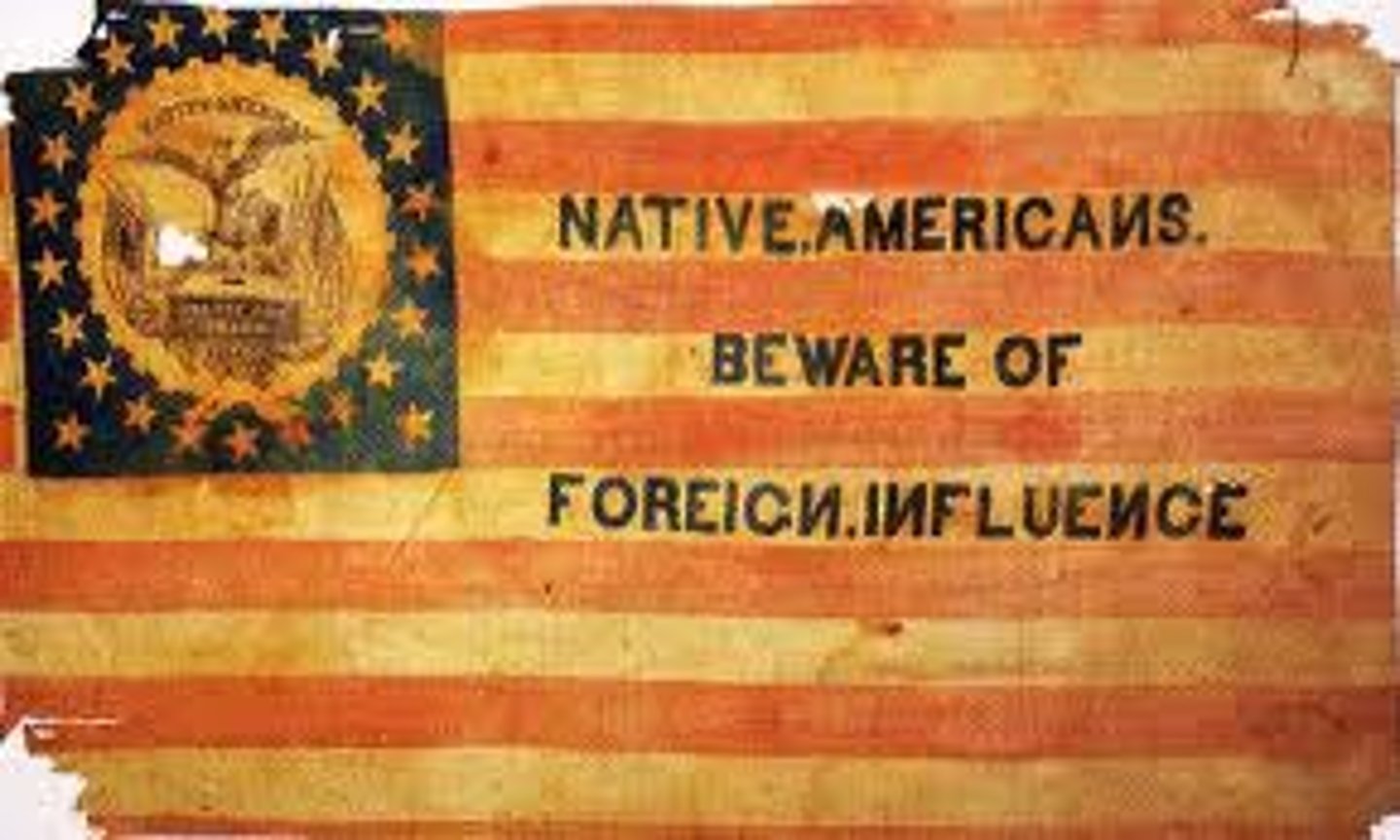
The Liberator
A weekly abolitionist newspaper that ran from 1831 to 1865 and was printed and published in Boston, Masschusetts, by William Lloyd Garrison.
It appealed to the moral conscience of its readers, urging them to demand immediate aboliton of slavery. It also promoted women's rights.
It frequently printed or reprinted letters, reports, sermons, and news stories relating to American slavery, becoming the community bulletin board for the abolition movement.
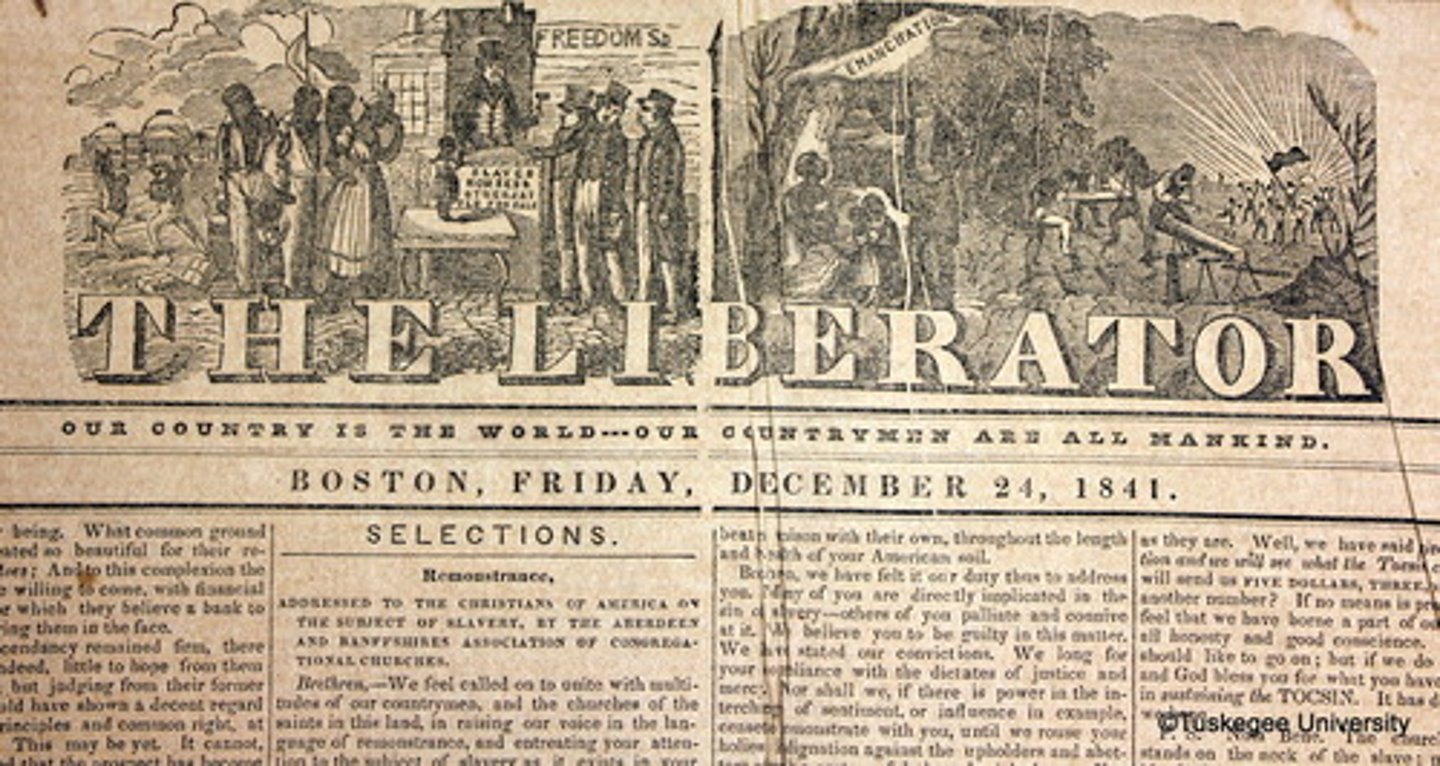
Locofocos Party
A faction within the Democratic Party that operated from 1835 to the mid-1840s.
Founded in New York City, it operated in reaction and in response to the growing strength and corruption of New York City's Tammany Hall political machine.
It opposed state banks, monopolies, and tariffs. It was originally named the Equal Rights Pary and contained labor union veterans. They supported the Independent Treasury Act to separate government and banking.
Their name is derived from a brand of friction matches that they used to light candles to continue a poltiical meeting after Tammany men turned off the gaslights in the meeting hall.

Louisiana Purchase constitutionality debate
This parcel of land was purchased from France in 1803 by the United States for $15 million. However, President Thomas Jefferson, up to that point, had been a strict constructionist, and acted hypocrtically as the Constitution doesn't explicitly state that the president can purchase land.
Instead, Jefferson signed a treaty to purchase the land then Congress allocated the funding for it.
After heavy debates, the treaty was approved by Congress and the land was purchased, even with Federalist Party objections.
Jefferson considered asking for an amendment giving him unquestioned authority, but decided to act without it.
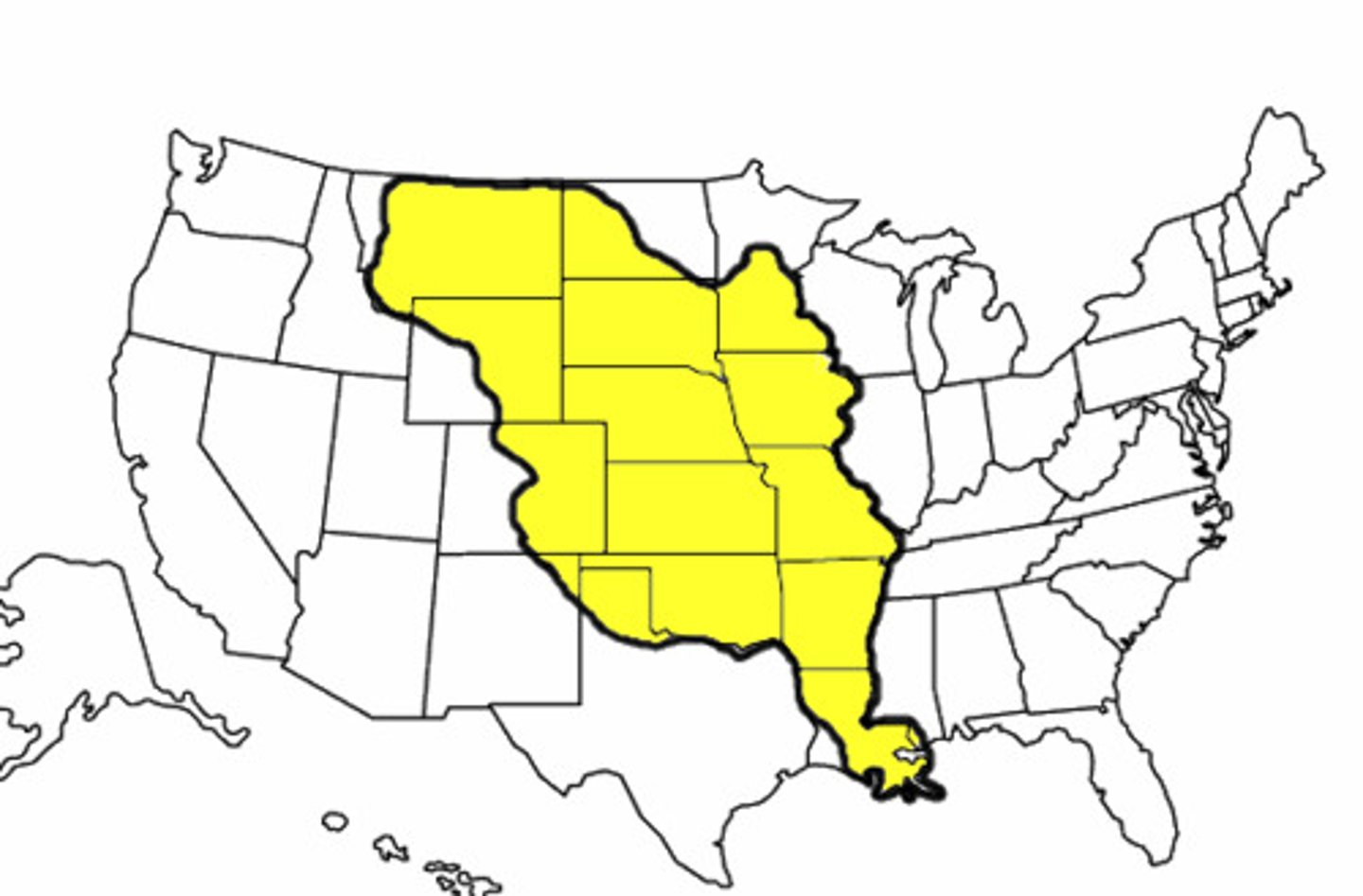
Missouri Compromise
A congressional law passed in 1820 after being highly debated between pro and anti-slavery advocates during the otherwise peaceful "Era of Good Feelings."
Henry Clay proposed this compromise which allowed Missouri to join as a slave state and Maine to join at the same time as a free state, which kept the free/slave state balance in the U.S. Senate.
The law also forbade additional slavery north of the 36°30′ latitude line within the Louisiana Territory.
The debates were a precursor to debates in the 1850s on the expansion of slavery after the Mexican-American War.
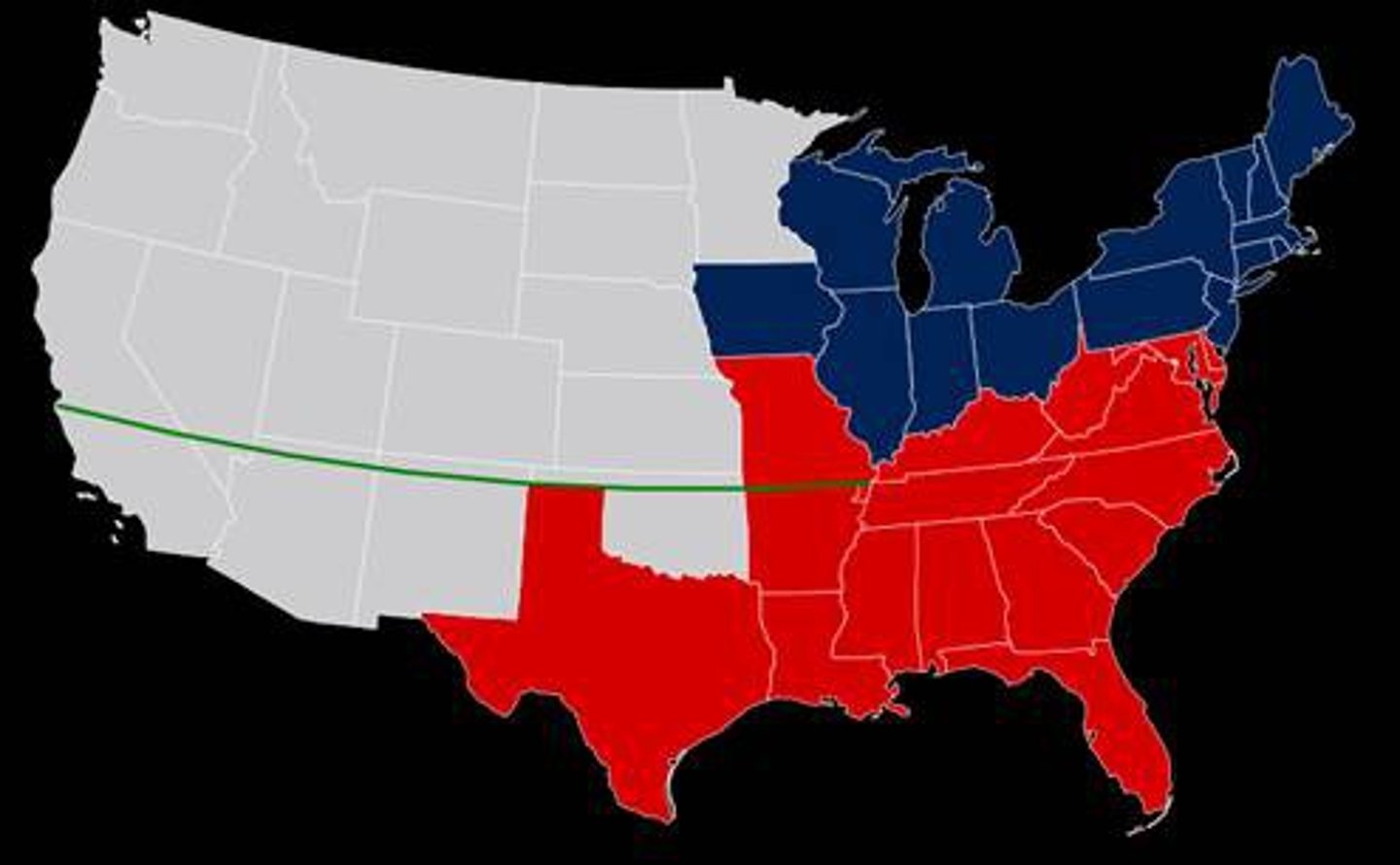
Monroe Tour of New England (1817)
The 5th president of the United States embarked on a 16-week-long tour throughout the New England area in order to spread national unity and gain political support.
His tour initiated the "Era of Good Feelings" by embracing patriotism and nationalism and helping to rebuild the economy and country after the War of 1812.
It also helped shore up political support for the Democratic-Republican Party after the disintegration of the Federalist Party and its vocal opposition to the war.
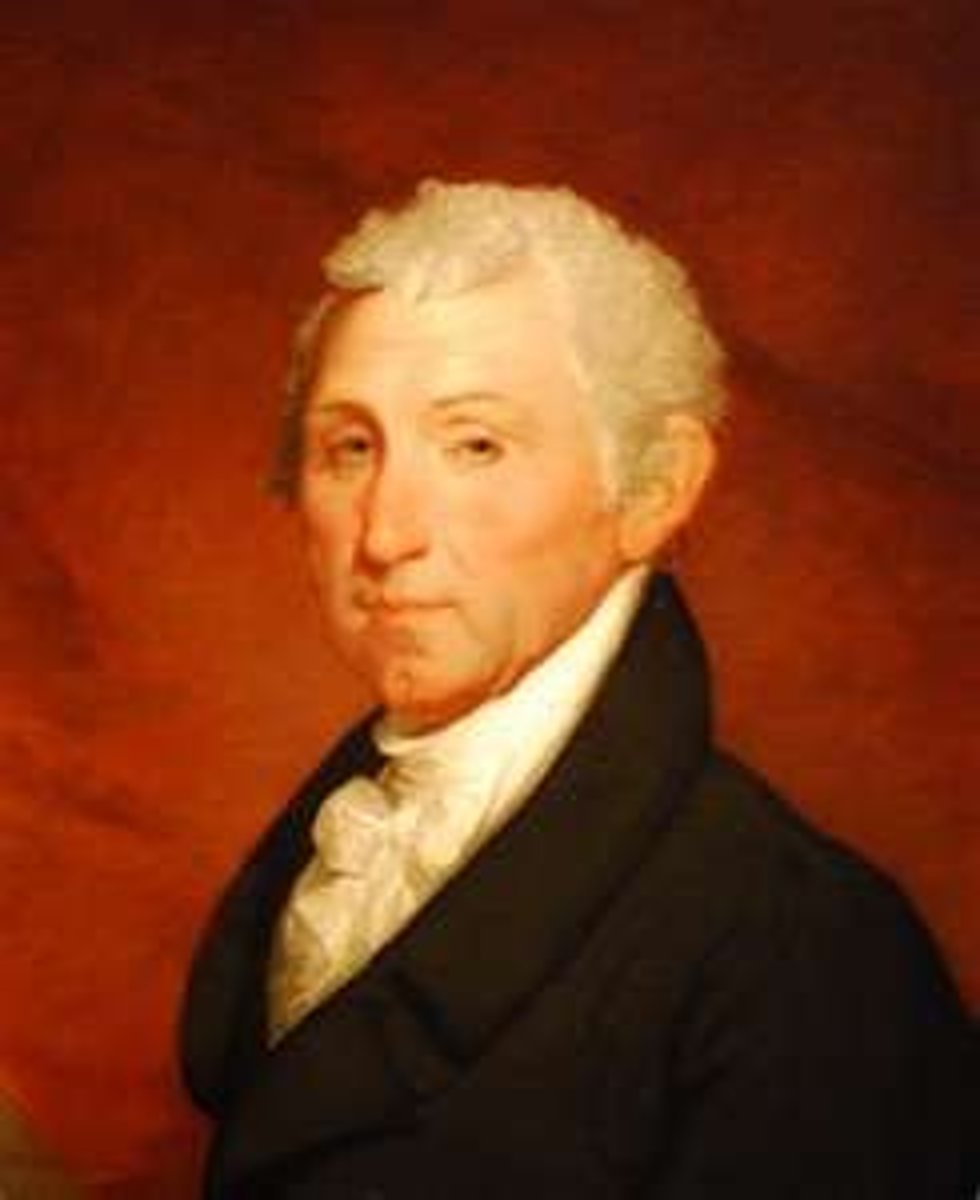
Nashville Convention
A meeting in June 1850 in the capital of Tennessee amongst 176 southern politicians from 9 slave states to discuss the possibility of seceding from the Union if slavery was banned in the newly acquired territory of the Mexican Cession.
The meeting adjourned without the body taking any action against the Union, but the men did sign a resolution to protect slavery. There was a previous meeting in Mississippi the year before in 1849.
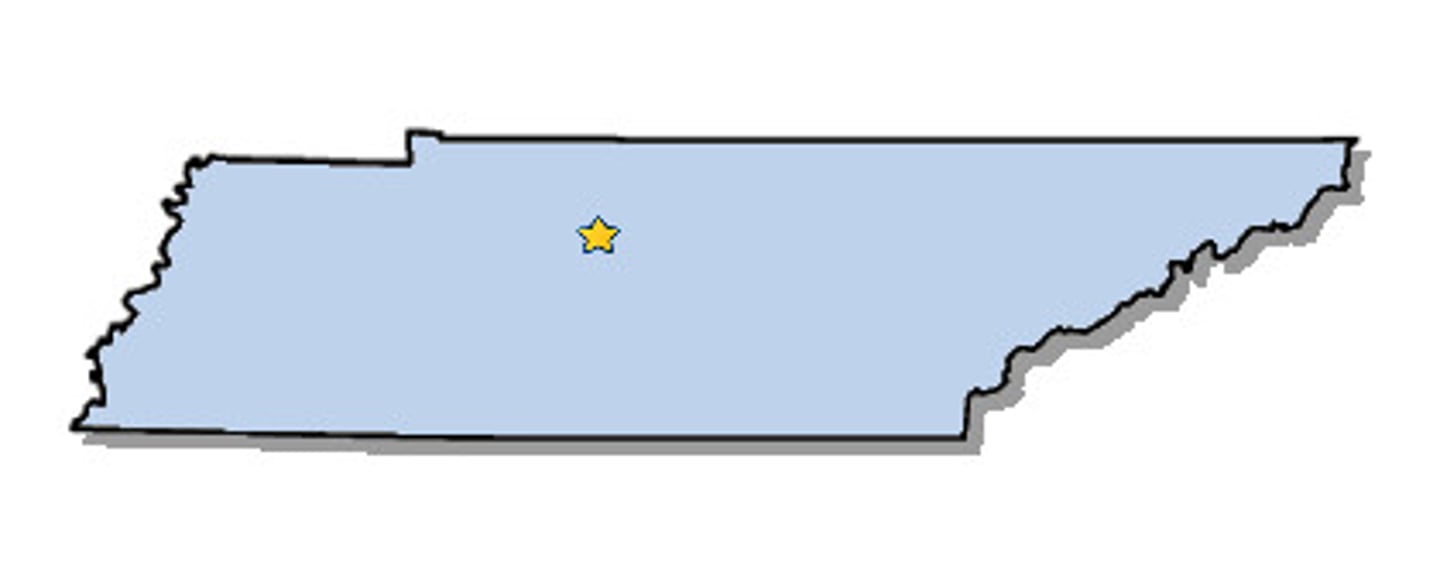
Nat Turner Insurrection
This was a slave rebellion that took place in Southampton County, Virginia, in August 1831.
Led by its namesake who was a local preacher, he and his rebels killed between 55 to 65 white people, making it the deadliest slave revolt for white people in American history.
It created mass hysteria among White people in the South with militia and mobs killing more than 120 slaves and free African-Americans in retaliation.
After the leaders and participants were caughta and tried, 56 slaves were executed, including its leader.
Because the leader was educated and literate, souther states subsequently passed laws prohibiting the education of slaves and free Black people, restricting the right to assembly without white supervision.
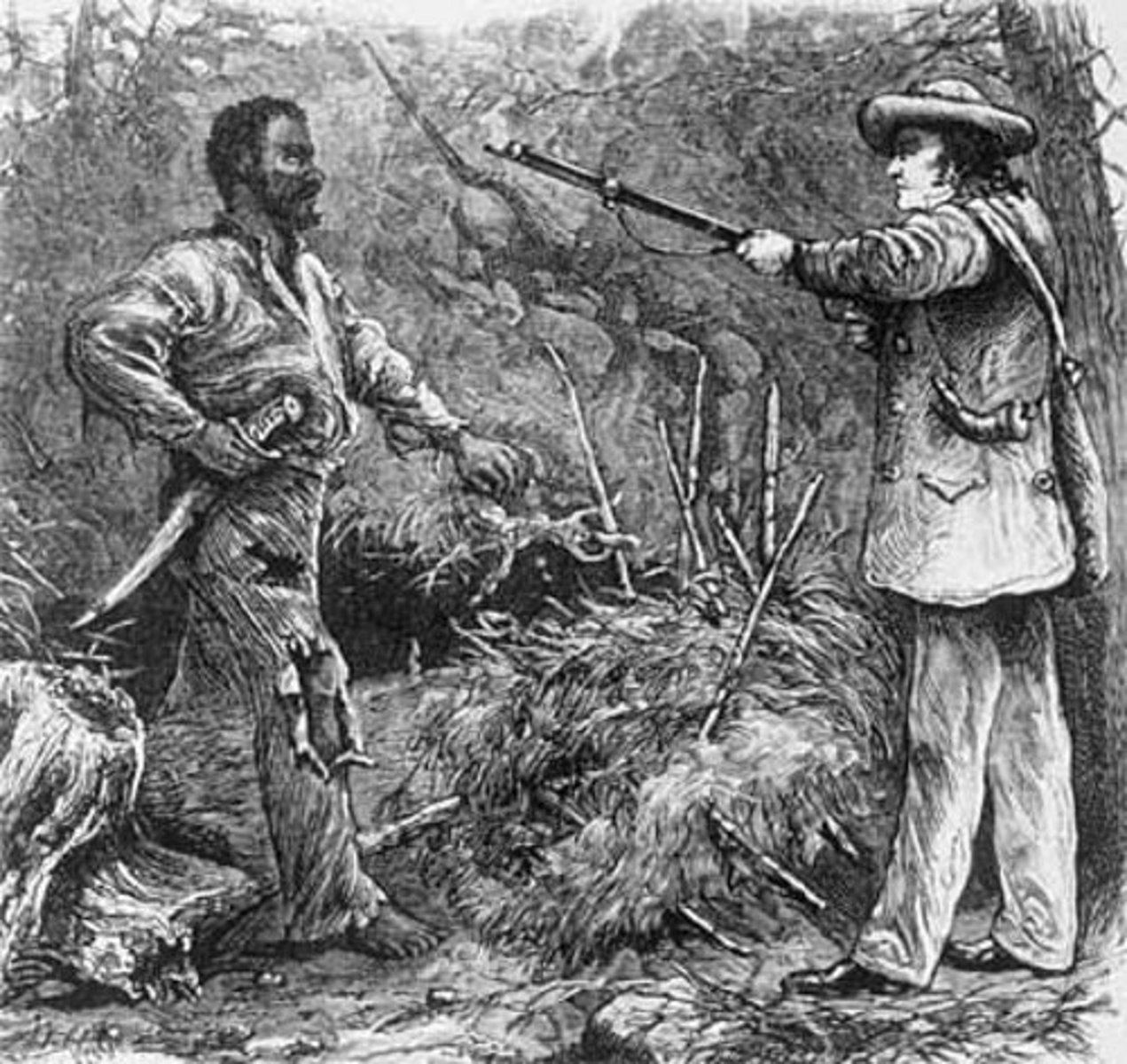
National Gazette
A short-lived Democratic-Republican newspaper published in Philadelphia by Philip Freneau from 1791 to 1793.
Founded at the urging of James Madison and Thomas Jefferson, it was created to counteract the Federalist Party paper the Gazette of the United States.
It is unique in that it was substantially supported by a major player within a sitting administration (Secretary of State Thomas Jefferson). Jefferson would also hire Freneau as a State Department translator for an annual salary of $250.
The paper would die due to an outbreak of yellow fever in Philadelphia combined with dwindling subscriptions. In addition, Jefferson would leave the cabinet in 1793, thus shutting off Freneau's main leak in the White House.

National Intelligencer
The first newspaper published in Washington, D.C., this publication ran from 1800 until 1870.
Covering early debates in the U.S. Congress, the paper had a strong early bias towards Thomas Jefferson and his Democratic-Republican Party.

National Republican Convention 1831
This political convention was held in December 1831 in Baltimore, Maryland, in order to determine the presidential nominees for the Whig Party before it was formally called that.
The party nominated Senator Henry Clay of Kentucky and Rep. John Sergeant of Pennsylvania for president and vice-president, respectively.
This would be the first nominating convention for president held by a major party. This would be the only convention for the Whig Party known as their original name.
